Dine at a Viennese café, visit the Hofburg Palace and Schönbrunn Palace, have a slice of Sacher Torte, stroll along Vienna’s bustling pedestrian streets, and ride the oldest Ferris wheel in the world…these top the list of things to do in Vienna.
Vienna is the largest city and the capital of Austria. It sits on the Danube River at the foothills of the Alps. The city center is designated as a UNESCO World Heritage Site.
Vienna has the nickname the “City of Music,” since famous musicians such as Mozart, Beethoven, Mahler, Schubert, and Haydn have all called this city home. It is also referred to as the “City of Dreams” because Sigmund Freud also lived and worked here.
So far, we have visited Vienna twice. The first time was during the month of May, on a 10-day trip that included Budapest and Prague. It was one of our first trips to Europe.
More recently, we visited Vienna in December 2023. Christmas is a wonderful time to be in Vienna, with Christmas markets and festive lights located throughout the city. As you will see in some of our photos, we were also lucky enough to be here when Vienna received a few inches of snow, making it even more magical.
This guide starts off with the top 10 things to do in Vienna, perfect for those who are planning a quick visit to the city (1 to 2 days). We then go on to list more things to do in Vienna, for those with more time.
I do my best to keep the hours of operation and pricing up to date for each attraction, however, these can change at any time. I recommend getting updated hours and pricing for your dates of travel. The link to the official website is provided for each site.
Top 10 Things to Do in Vienna
This list starts with the very best things to do in Vienna. These are the essential experiences to have, particularly if it is your first visit to Vienna.
1. Vienna State Opera (Vienna Staatsoper)
One of the finest opera houses in the world, the Vienna State Opera was built between 1861 and 1869. It was the first major building on the Ringstrasse, the road that loops around the heart of Vienna. Emperor Franz Joseph I and Empress Elizabeth attended the inauguration.
On a visit to Vienna, you can tour the opera house and/or watch a performance here. They don’t schedule the same performance two nights in a row, to allow the singers to rest their voices and recover (our guide stated that an opera singer can lose up to 10 pounds in one performance!). So, if you have a few nights in Vienna, it is possible to see multiple shows at the opera house.
Tours of the Vienna State Opera
To visit the inside of the opera house and learn about its history, take a 40-minute guided tour (you are not allowed to walk through the opera house without a guide, unless you are here for a performance). The tour takes you through the spectacular foyer, to the emperor’s box for a view of the stage, and the main floor of general seating.
Book your tour time in advance because this is one of the most popular things to do in Vienna.
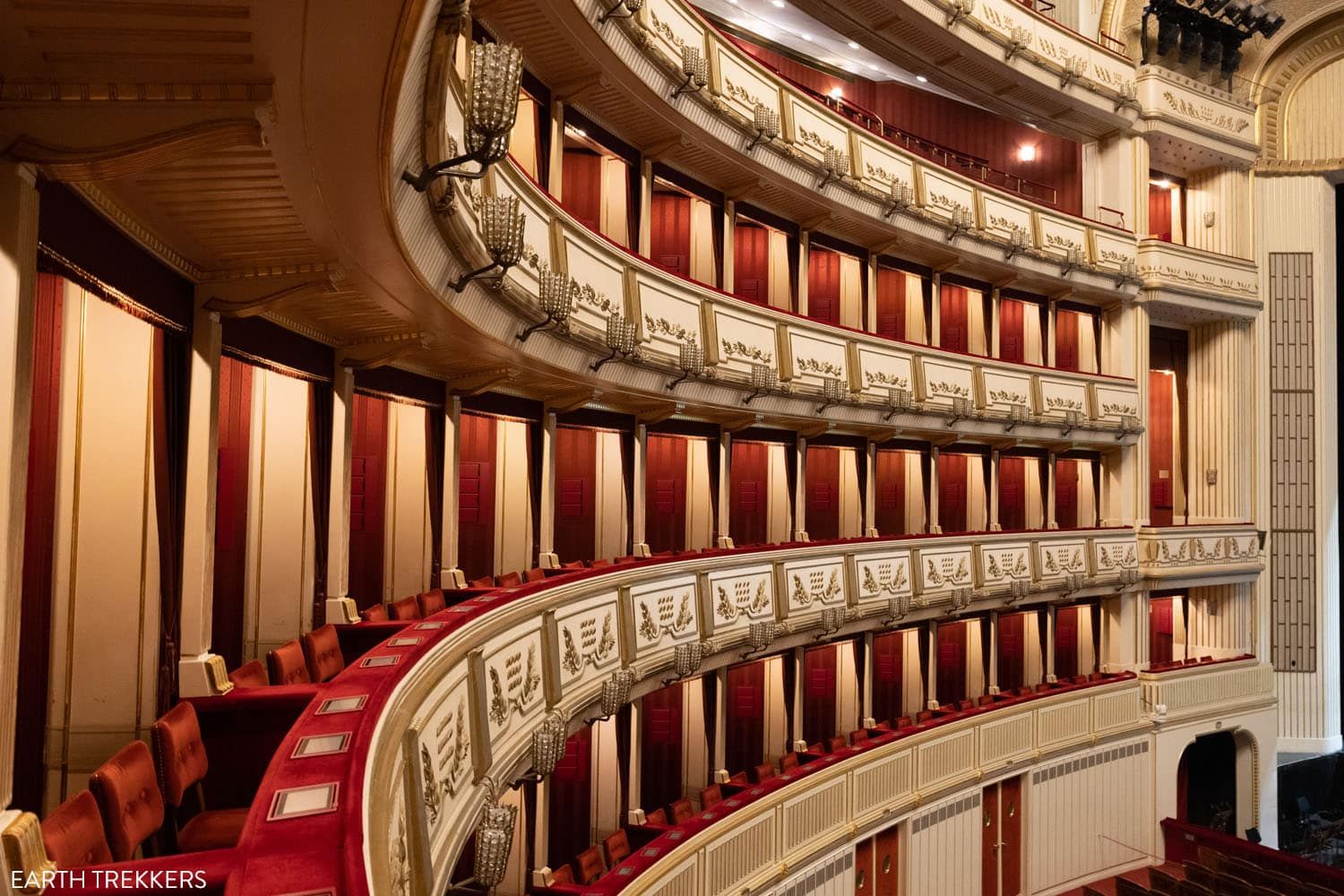
The view from the emperor’s box
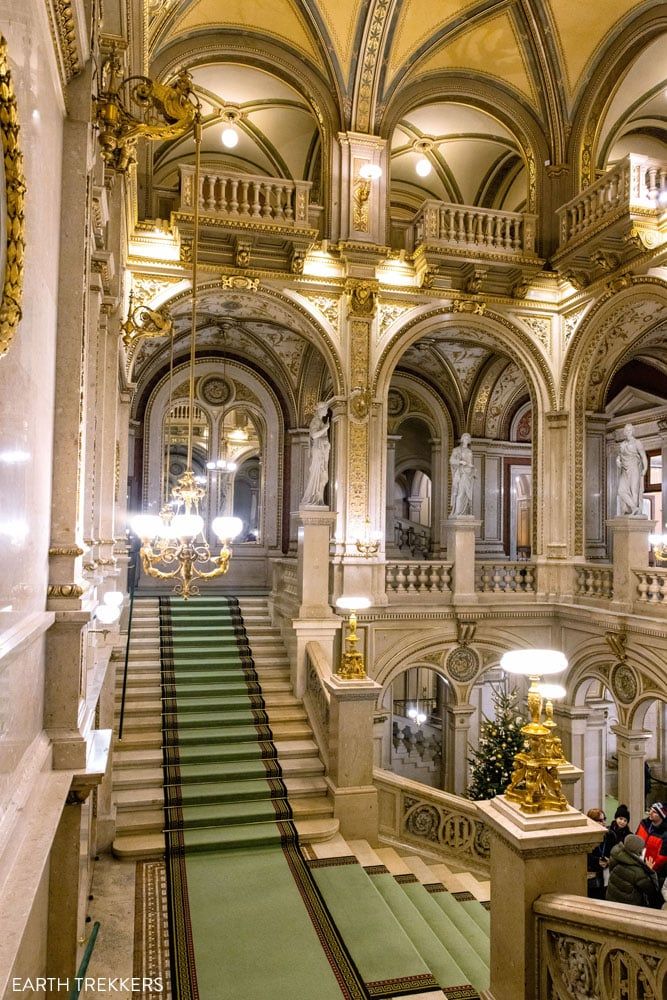
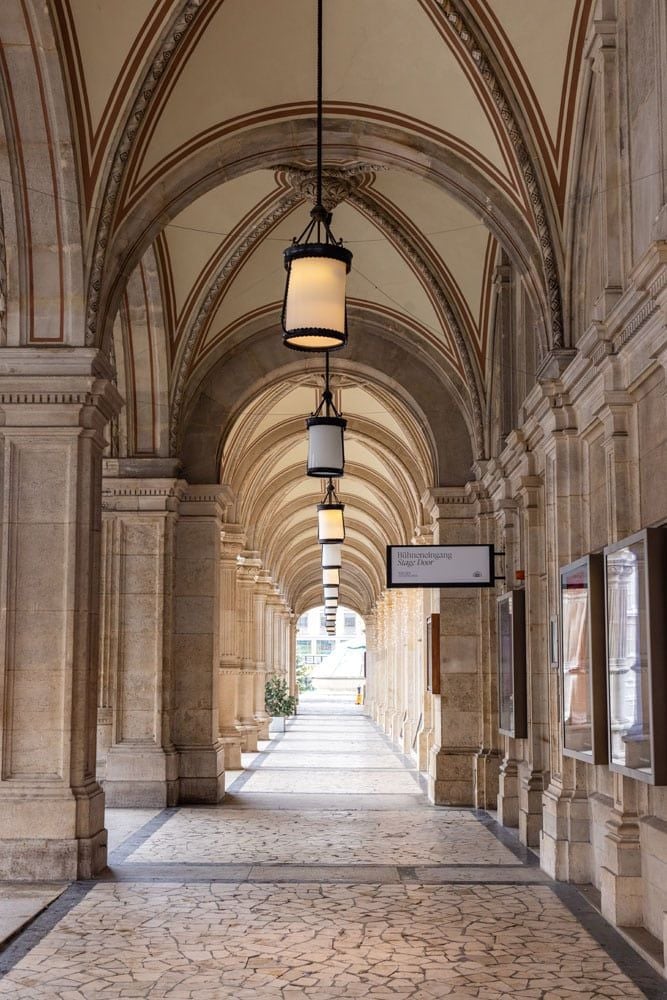
Watching a Performance
If you have tickets to watch a performance, you can walk around the opera house unguided, and then watch a show.
The cheapest way to attend a performance is to purchase standing room only tickets. To do this, purchase an Austrian Federal Theatre Card (free) and then upgrade it for €20, which allows you to purchase a standing ticket in advance. Or, purchase your ticket on the day they become available, which is at 10 am of the day of the performance (just be aware that these quantities are extremely limited and there is a chance they could all be purchased in advance). These tickets start at €13. Learn more here.
On our first visit to Vienna, we purchase standing room only tickets at 10 am. Tim and I returned in the evening, arriving about 30 minutes early, which gave us enough time to walk through the opera house and take photos.
Prices go up for general seating or box seating. You can see the full schedule on the official website.
The season runs from September through June, with a two month break in July and August.
WHAT’S BETTER: A TOUR OR A PERFORMANCE? We have done both: watched a performance and took a tour. Tim and I both preferred watching the performance, since you get the full experience and can still see the same rooms you visit on a standard tour.
2. The Historic Heart of Vienna
The city center of Vienna is a UNESCO World Heritage Site. This part of the city is bordered by the Ringstrasse and the Danube River. Strolling the pedestrian streets and visiting the historic churches top the list of things to do in Vienna.
There are several famous pedestrian streets in Vienna.
Graben is the most well-known. It runs from Stephensplatz to Kohlmarkt and is lined with shops and restaurants. The Column of Pest (Wiener Pestsäule) is a decorative column that commemorates victims of the plague and it forms the centerpiece of Graben.
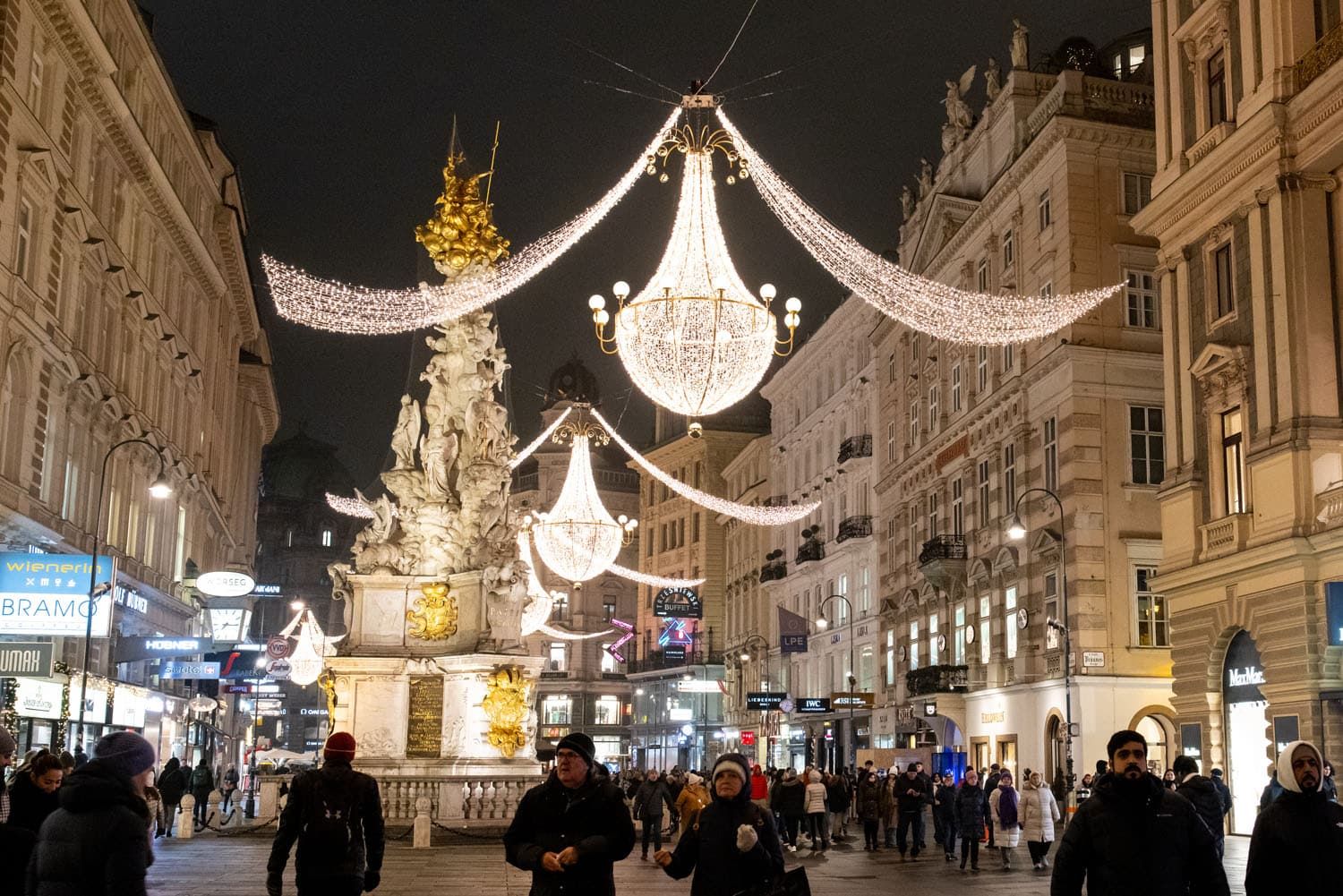
Graben in December
Kohlmarkt is an upscale shopping street, with Tiffany, Gucci, Dior, and Cartier shops lining the street. This is also where you will find Demel, one of Vienna’s most famous pastry shops.
Kärntner Straße runs from Stephensplatz to the Vienna State Opera and is another great place for shopping in Vienna.
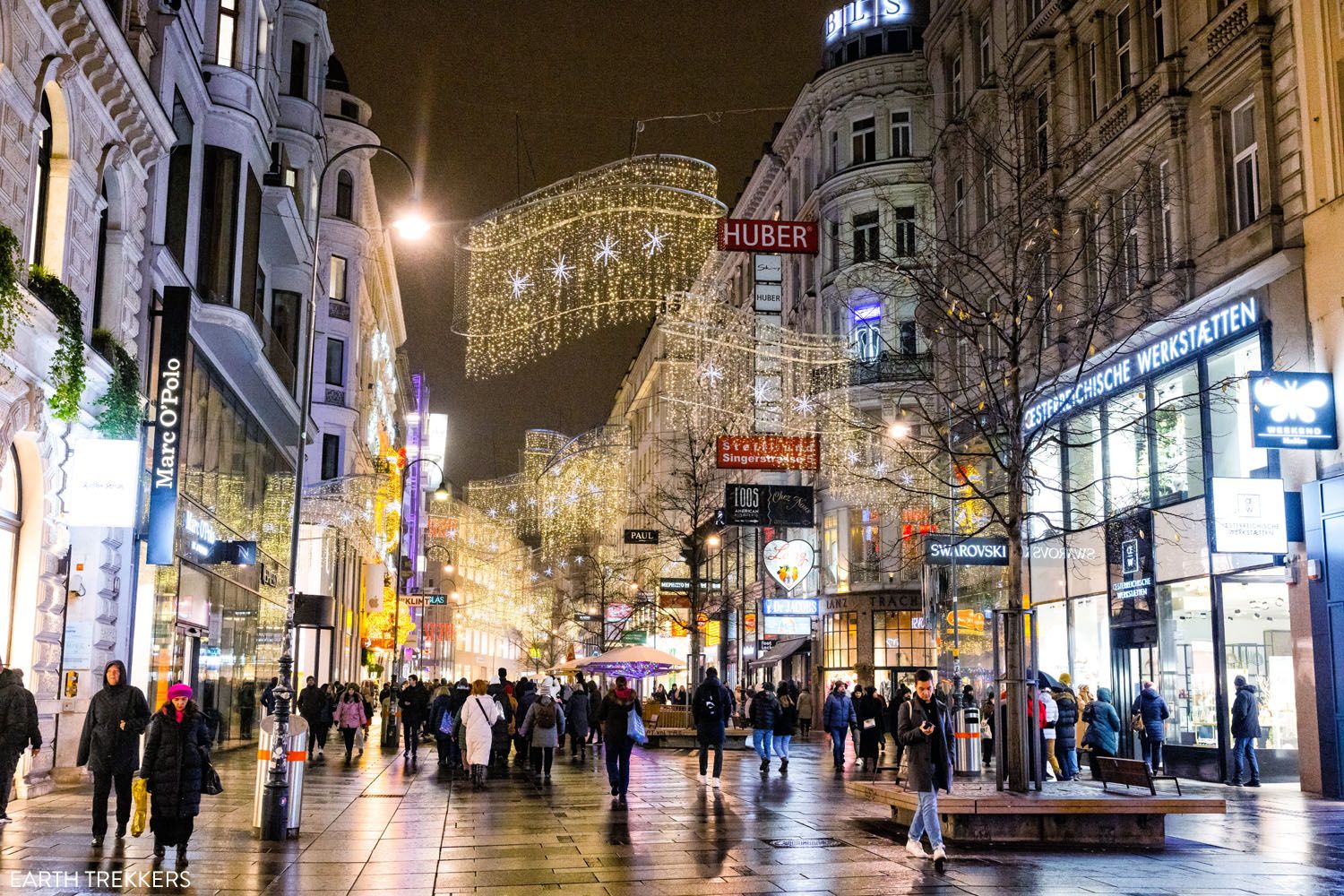
Kärntner Straße in December
3. St. Stephen’s Cathedral
St. Stephen’s Cathedral (Stephansdom) is the centerpiece of the historic heart of Vienna. It was consecrated in 1147 and has been enlarged several times.
There is a lot to do here, from viewing the nave to touring the catacombs to climbing its towers for 360° views over Vienna.
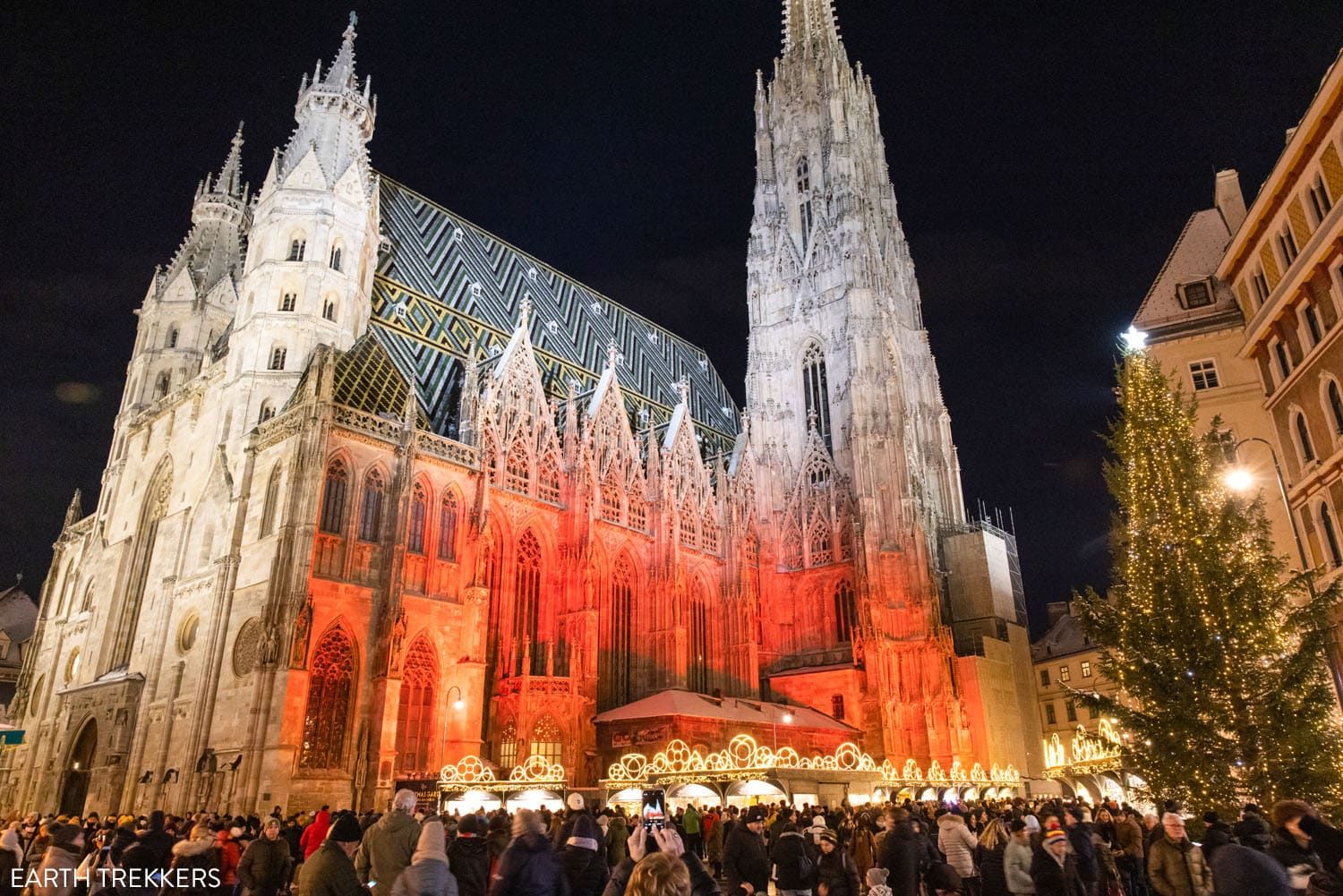
St. Stephen’s Cathedral
Views of the Nave
For free, you can enter the church and view the nave. You cannot walk down the nave for free, as there is a fence that divides the nave from the entrance lobby of the cathedral.
Anything beyond this first view of the cathedral requires some sort of ticket, of which there are a few to choose from.
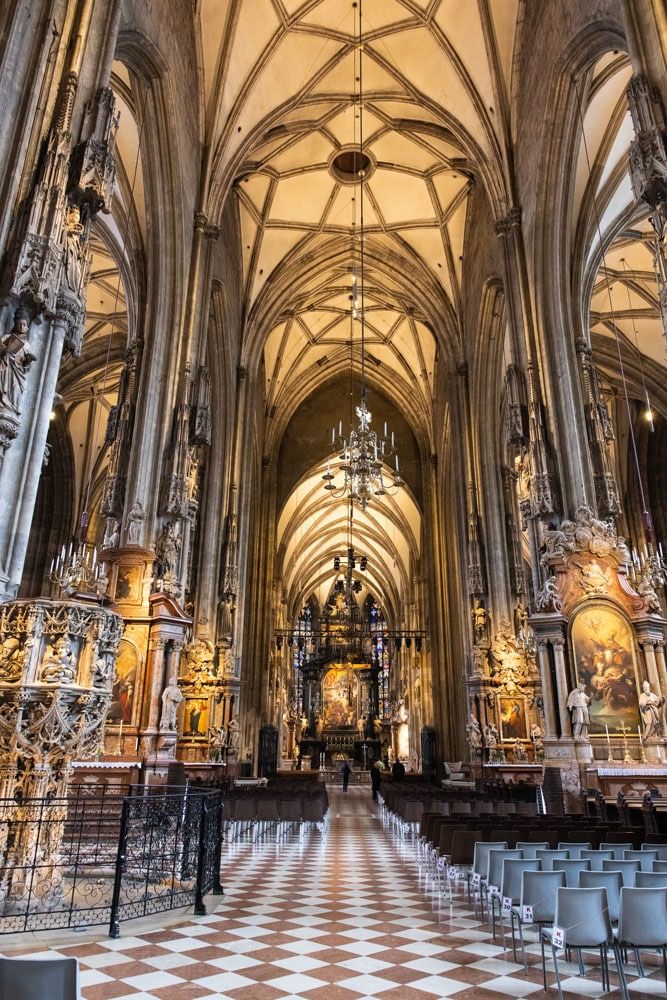
Visit the Nave, Altar and Side Chapels
Inside of St. Stephen’s Cathedral, purchase a ticket to walk down the nave, to see the altar, and to see the side chapels. It’s worth it for those who want to view St. Stephen’s Cathedral from the main floor. Not many people do this, so you get to walk around the church relatively crowd free. Tickets start at €5.
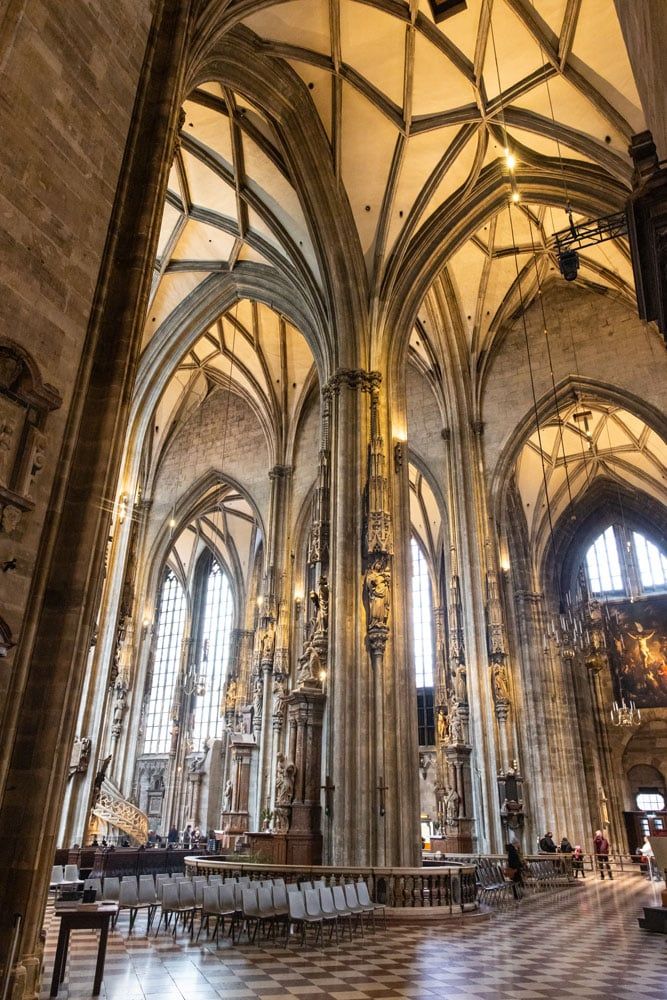
Tour of the Catacombs
The catacombs can only be visited on a guided tour, which are offered multiple times of day (get the tour times here). This tour takes about 40 minutes and photography is not allowed. You learn about the history of the burials and can see containers that hold the Habsburg’s organs. We thought the tour was just OK (it’s skippable if you have limited time).
North Tower (Pummerin)
The North Tower, also called the Eagle Tower, is 68 meters high and the shorter of the two towers you can climb. Pummerin is the largest bell in Vienna and it sits at the top of this tower.
The North Tower is the easiest tower to visit as an elevator whisks you to the very top. You’ll step out onto an open terrace. We really liked the views from here, as you get a close up look at the gorgeous tiled roof of Stephansdom and wonderful views of the city.
The elevator is located inside of the cathedral. Purchase your ticket from the ticket booth in the nave. A North Tower ticket costs €7.
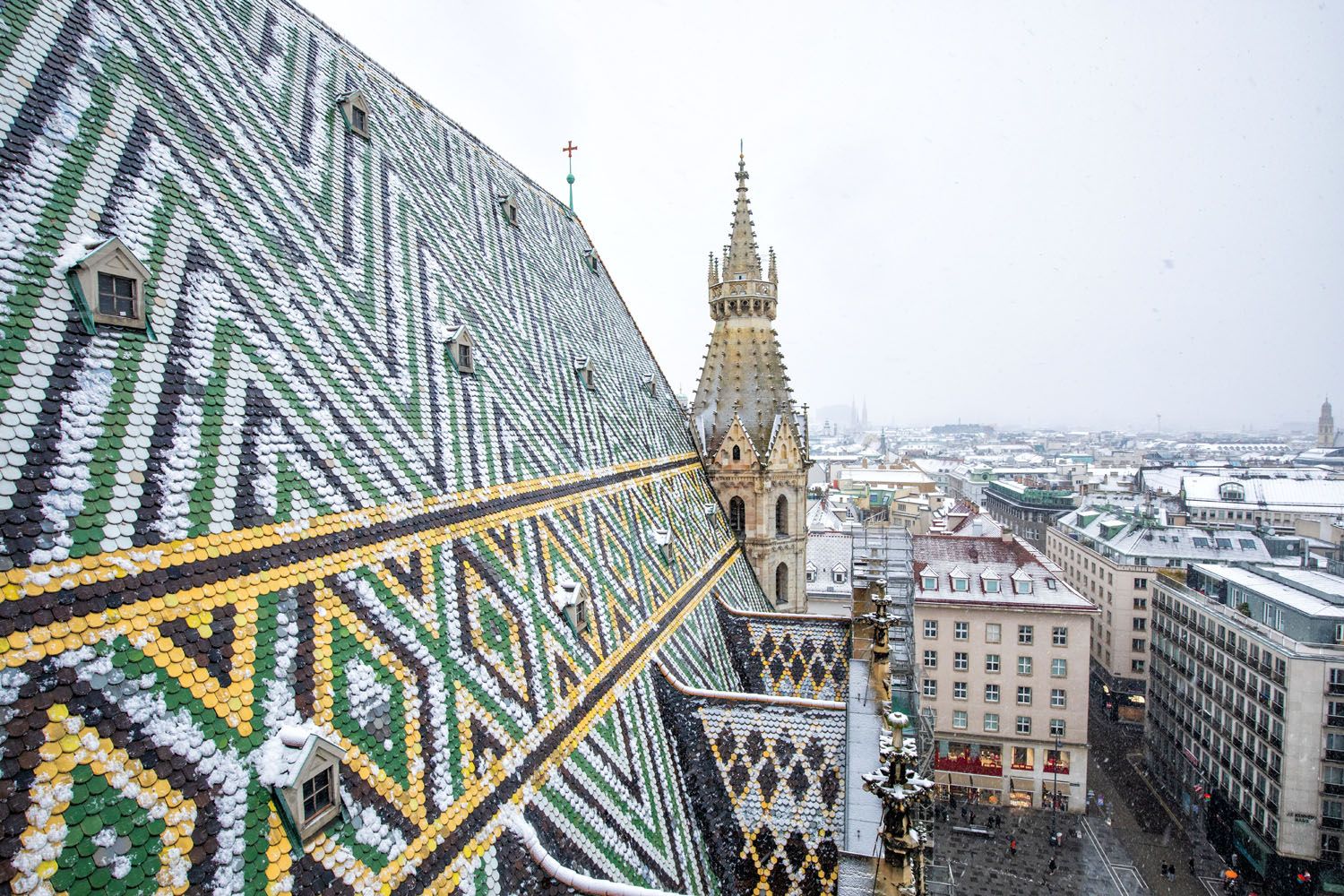
View from the North Tower
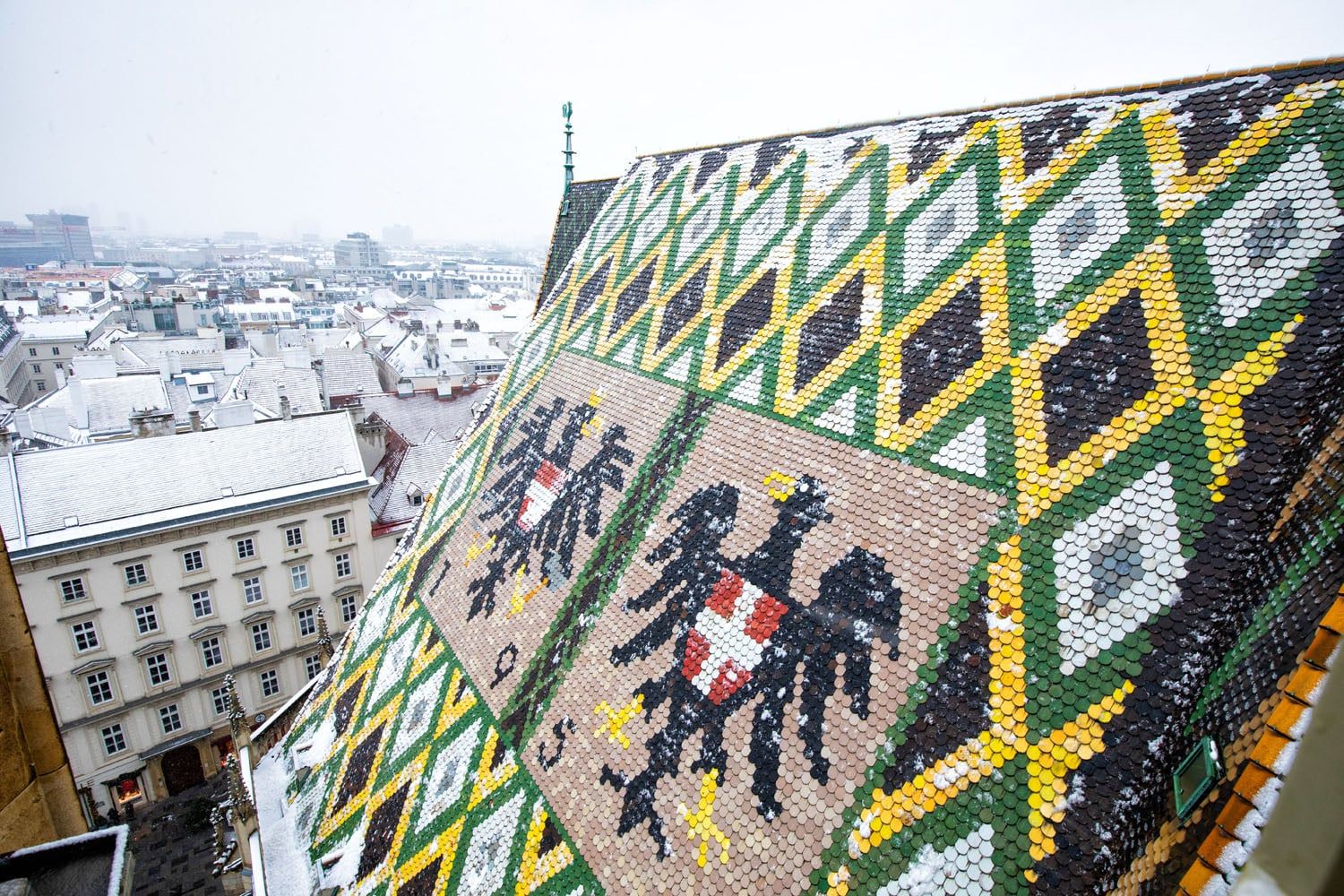
The amazing roof of St. Stephen’s Cathedral
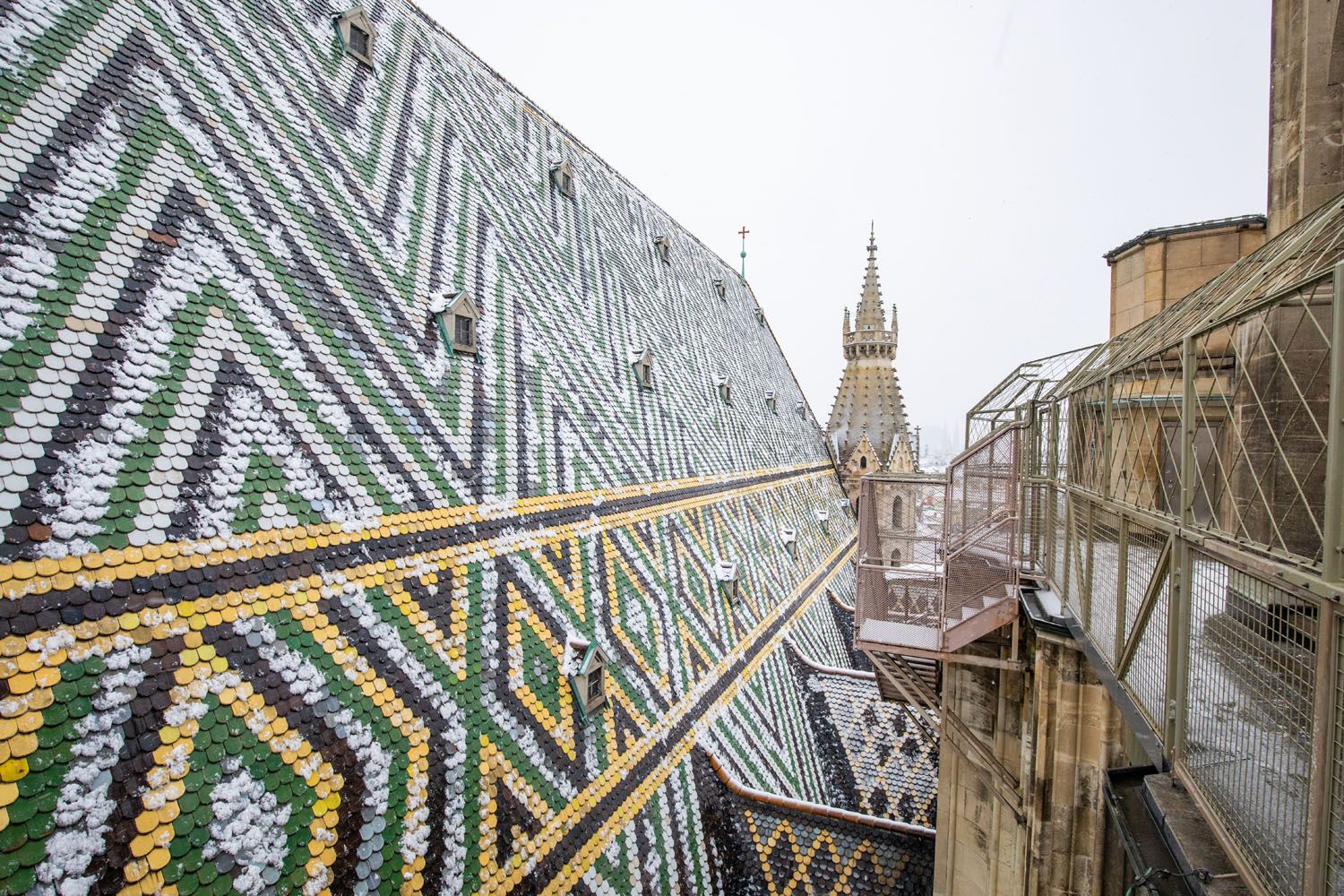
One more view from the North Tower (and you can see what the observation platform looks like)
South Tower
At 136 meters, the South Tower is the tallest tower of the cathedral. To get to the top, you’ll have to do some work. It is 343 steps to the top, most of these on a spiral staircase. These stairs end at an enclosed room where you can view Vienna from the windows.
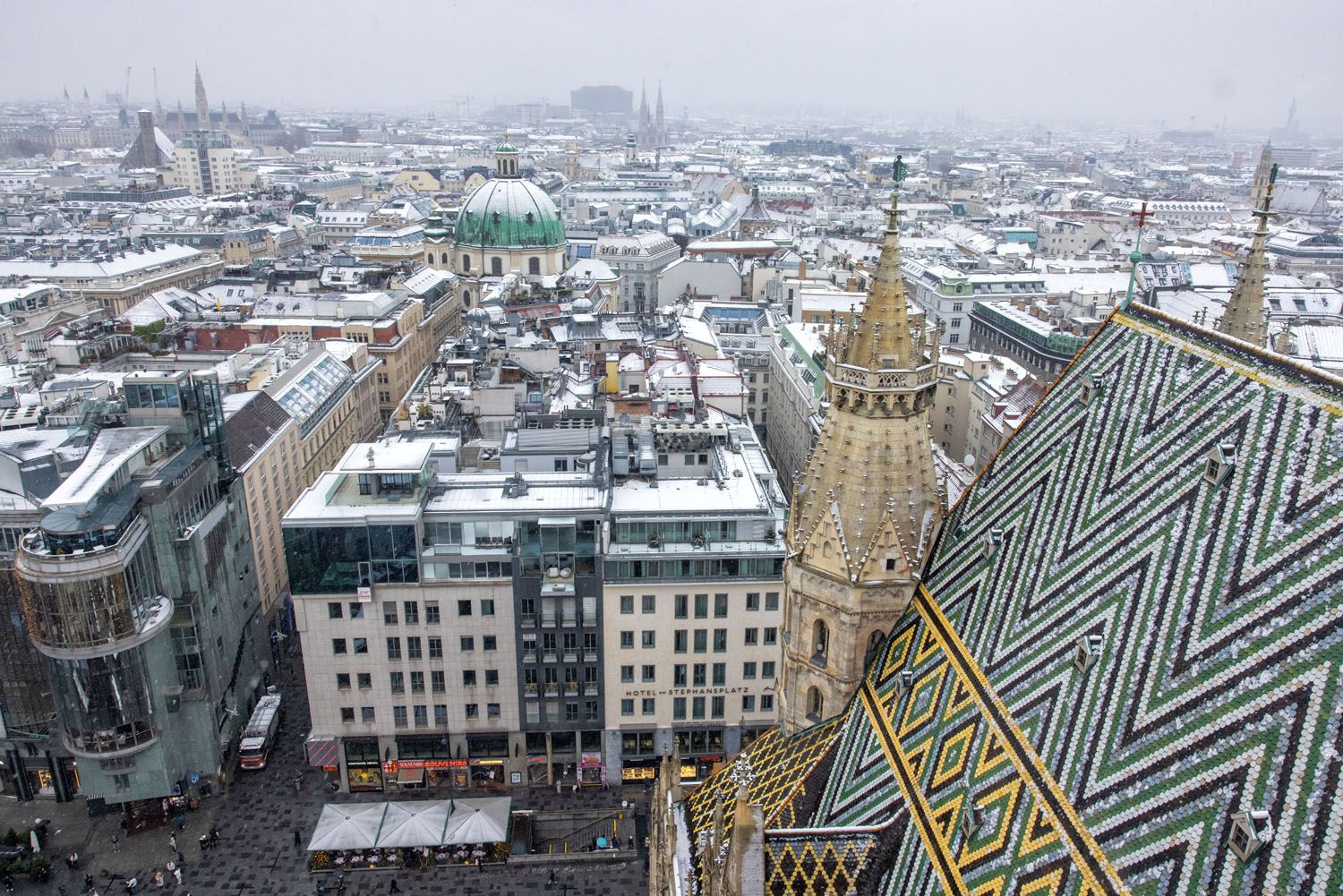
View from the South Tower
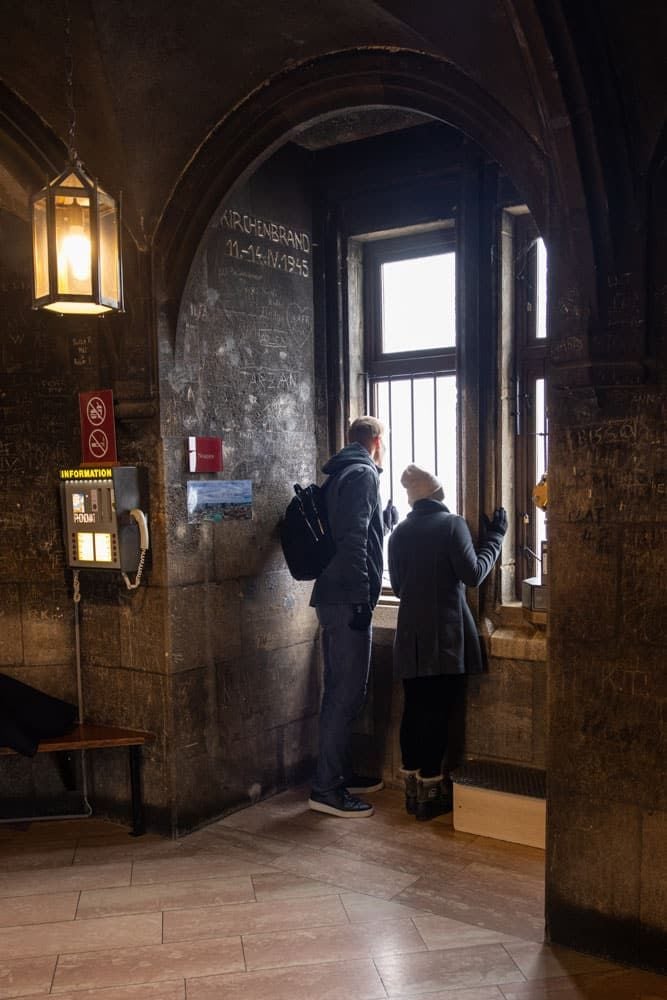
The observation room on the South Tower
The entrance to the South Tower is outside, on the south side of the cathedral. A South Tower ticket costs €6.50.
Even though you get a higher vantage point from the South Tower, we liked the views more from the North Tower. The roof of the cathedral is incredible and very unique from other churches we have visited in Europe and you get the best view of it from the north tower.
Planning Your Visit
ALL INCLUSIVE TICKET: If you want to see and do everything, purchase an all-inclusive ticket for €25.
Hours: Visiting times are Monday through Saturday from 9 am to 11:30 am and 1:00 pm to 4:30 pm; Sundays from 1:00 pm to 4:30 pm
Tickets: Currently, tickets can only be purchase at the cathedral with cash. There is no advance ticket option.
Website: Get updated hours on the official website
4. Schönbrunn Palace
Schönbrunn Palace (Schloss Schönbrunn) was the summer residence of the Habsburg family. It is a similar experience to visiting Versailles in Paris, where you can tour the interior of the palace, stroll through the gardens, and visit the Gloriette.
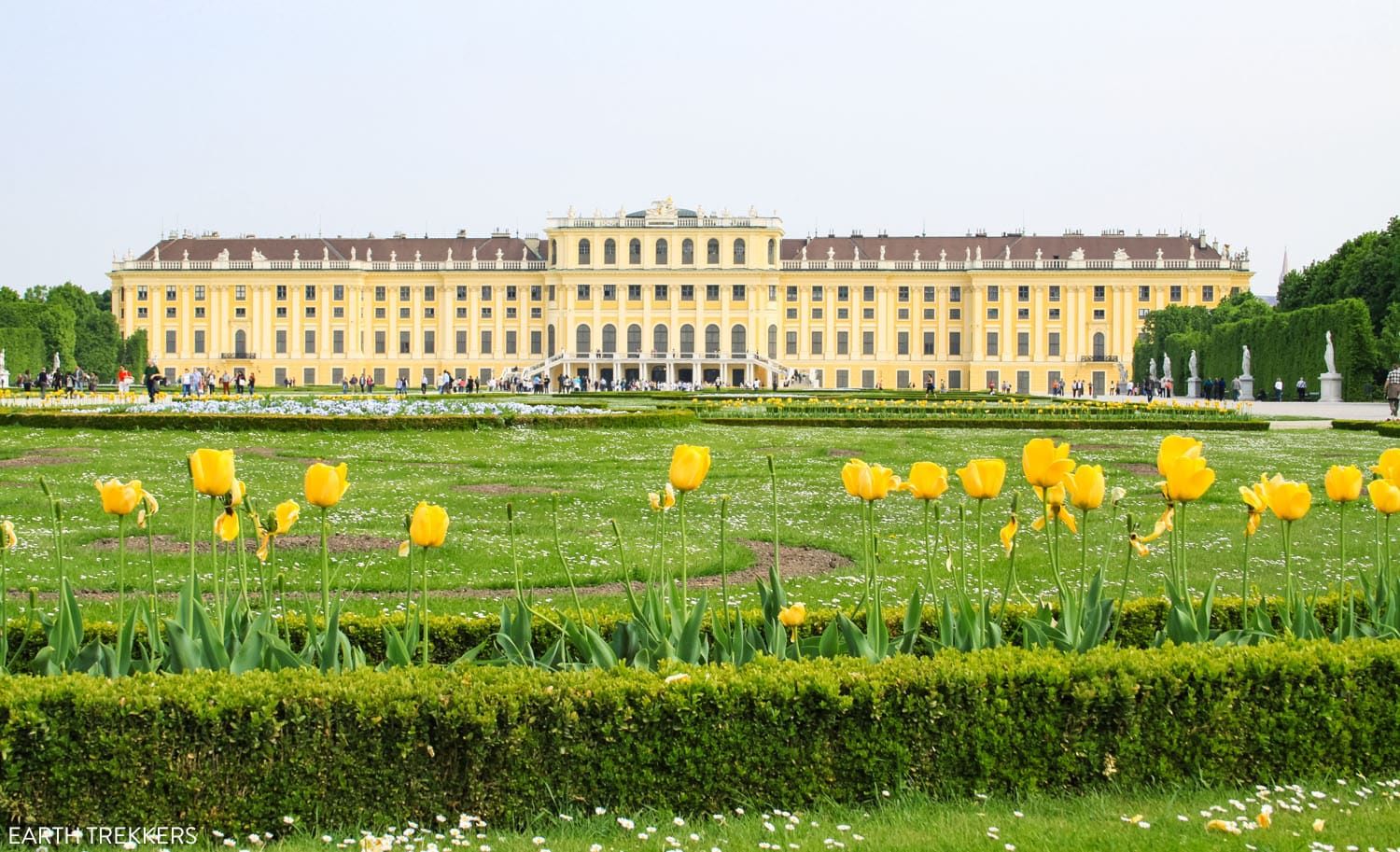
Schönbrunn Palace in May
To tour the interior of the palace, you have several options. The shortest option is to purchase a ticket to visit the State Apartments. This takes about 25 minutes (a bit faster if you move quickly) and you see a few grand halls in the palace. The Imperial Tour takes 40 minutes and includes the apartments of Franz Joseph and Elisabeth. With 60 minutes, you can do the Grand Tour, which includes the Imperial Tour plus the rooms occupied by Maria Theresa. You can also tour the palace and gardens with a guide on this skip the line tour.
We did the State Apartments and for us, this was sufficient. We don’t have photos because photography was not allowed during our visit in 2023, but photography is now allowed inside of the palace.
Our favorite part of visiting Schönbrunn is strolling through the gardens. We’ve been lucky to be here in the spring, when tulips were blooming, and the winter, when the grounds were snow covered. The gardens are free to visit but special attractions, such as the zoo, requires a ticket.
For a great view, walk up to the Gloriette, where you can view Schönbrunn Palace with Vienna as a backdrop.
Get pricing and hours on the official website. If you plan to tour the interior, book your ticket and time slot in advance.
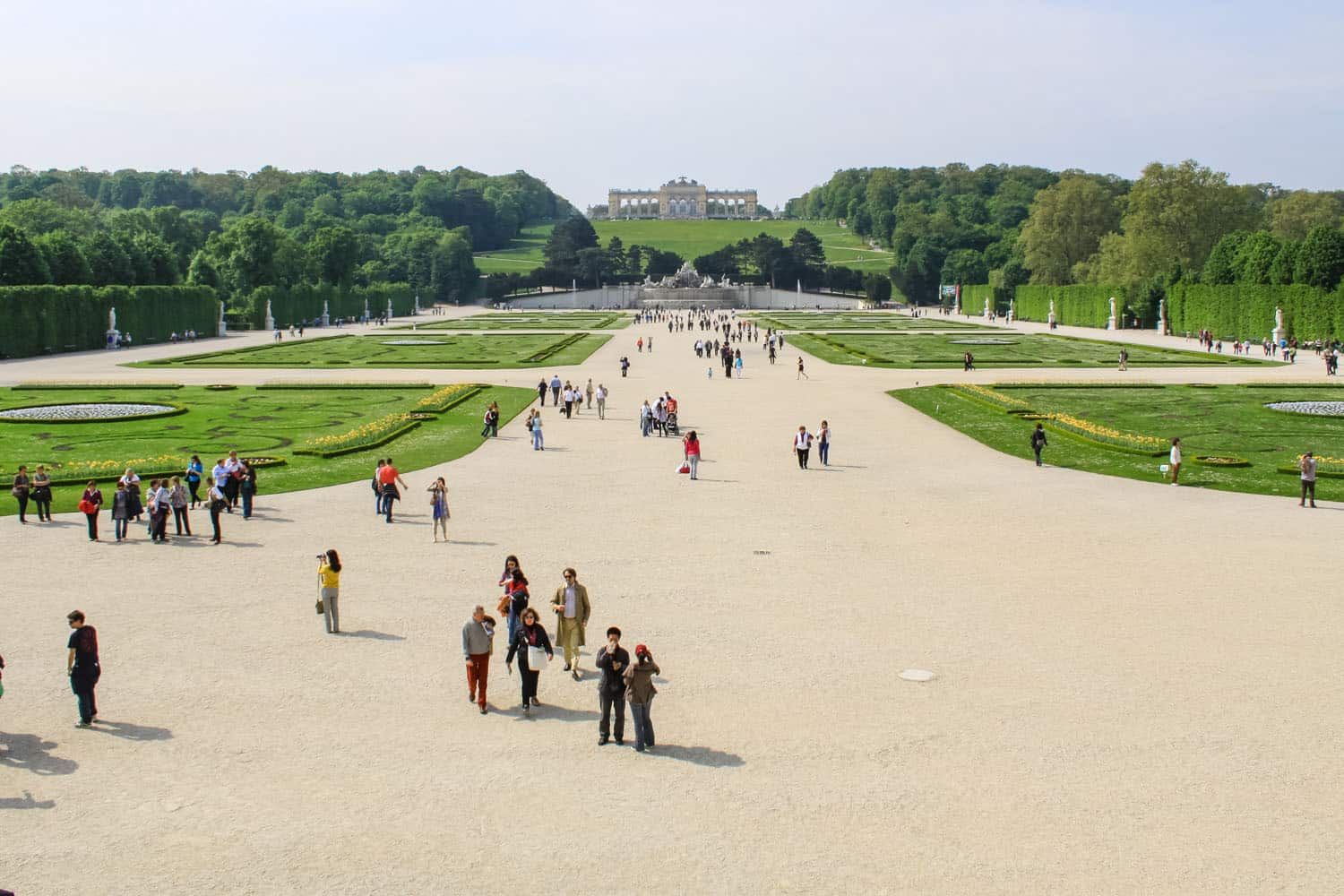
Schönbrunn Palace Gardens
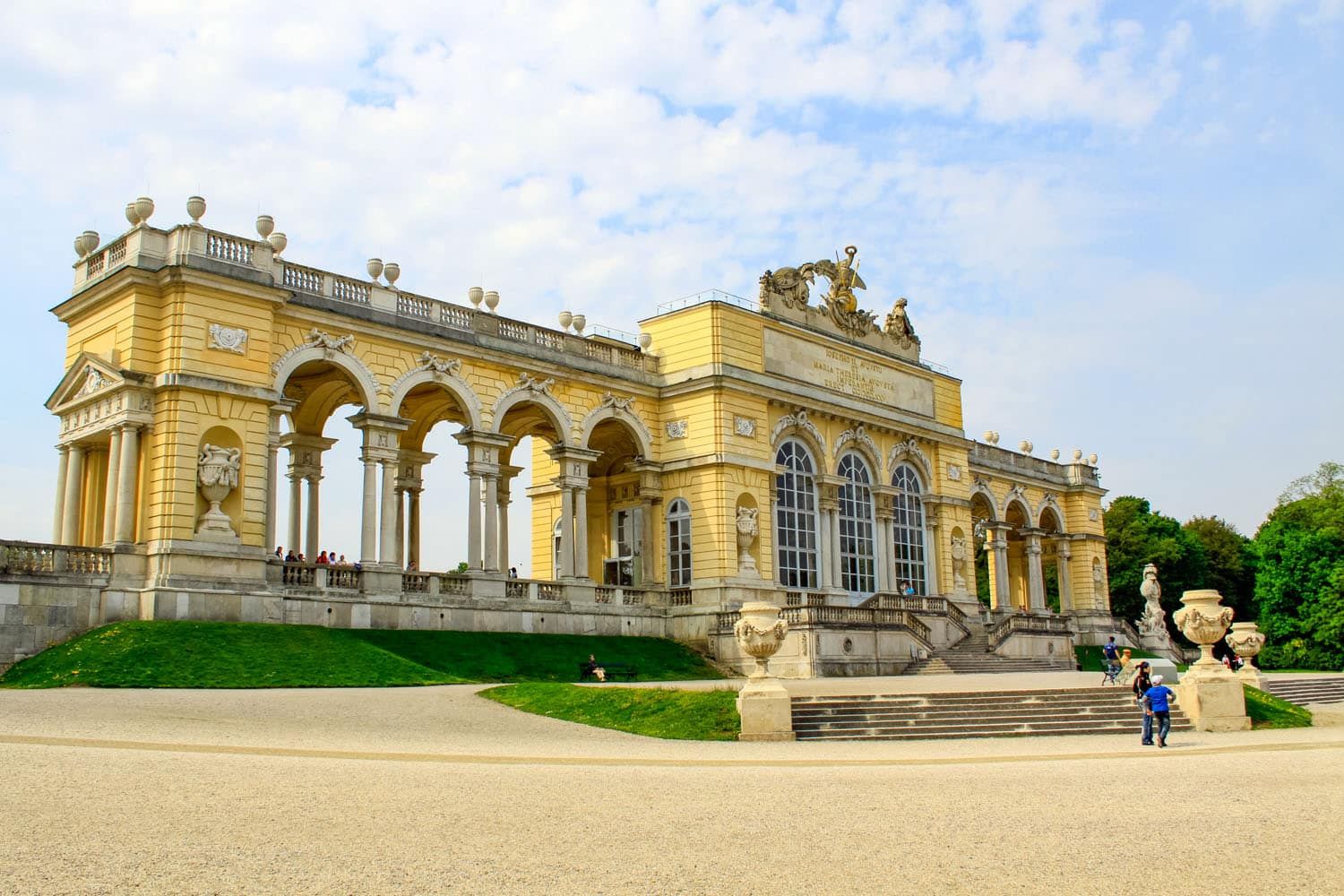
The Gloriette
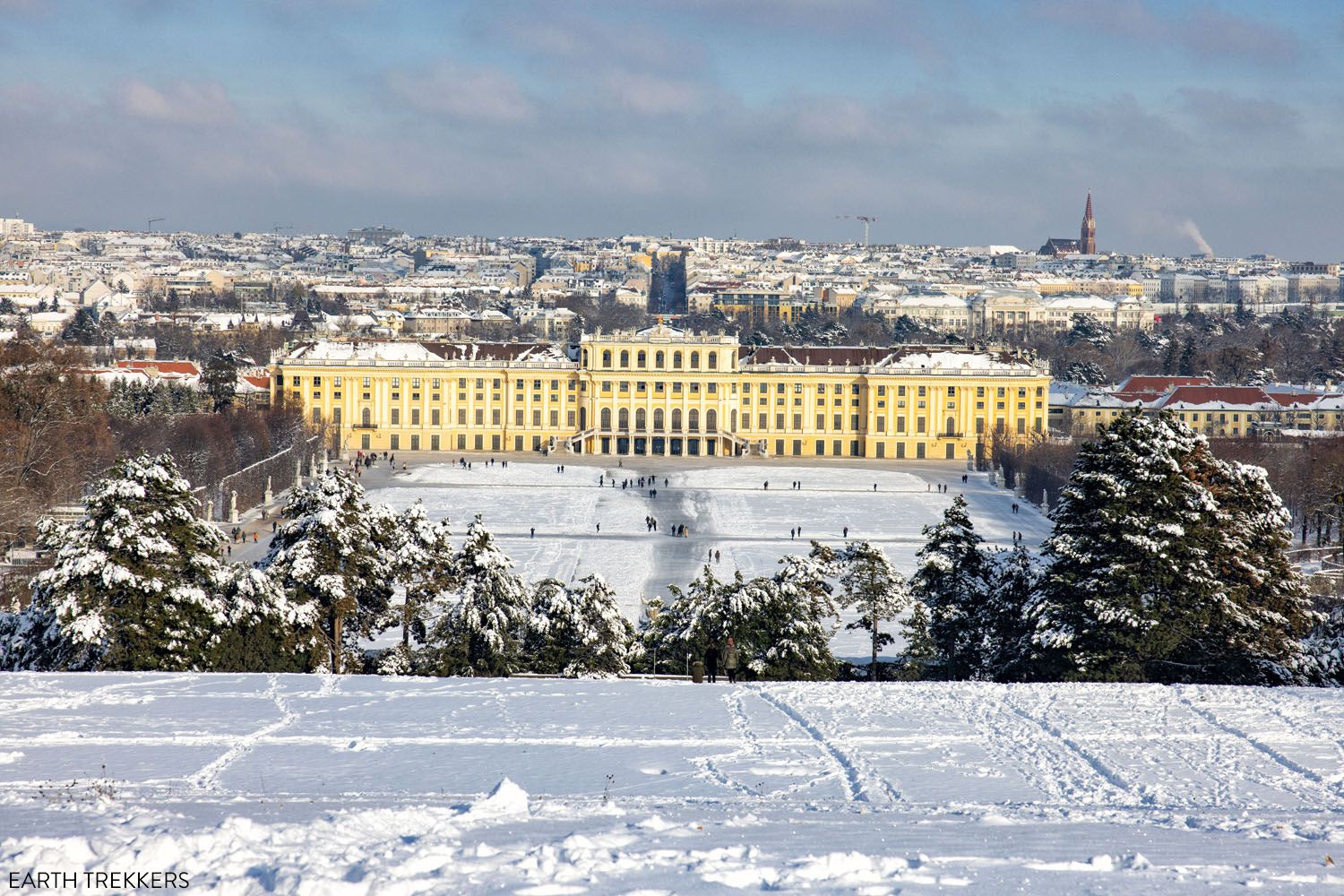
Schönbrunn Palace in December (view from near the Trianon)
GETTING HERE: From Vienna, take the U4 line, getting off at Schonbrunn. It is a 8 to 10-minute walk from the metro station to the entrance of Schönbrunn Palace.
5. Dine at a Viennese Café
Starting your day with pastries and coffee is a must-have experience in Vienna. This is such an important part of the city’s culture that the Viennese coffee house culture is listed on UNESCO’s Intangible Cultural Heritage list.
So, it should come as no surprise that Vienna is host to a long list of coffee shops (I read from one source that there are 600 coffee houses in Vienna). Many serve breakfast, lunch, and dinner.
We have a guide to the best cafes in Vienna, but here are a few of the top coffee houses:
Café Central. This coffee house was visited by many famous people, including Sigmund Freud. Café Central is a very popular coffee house so expect long lines here throughout the day. Make your reservation in advance on the official website.
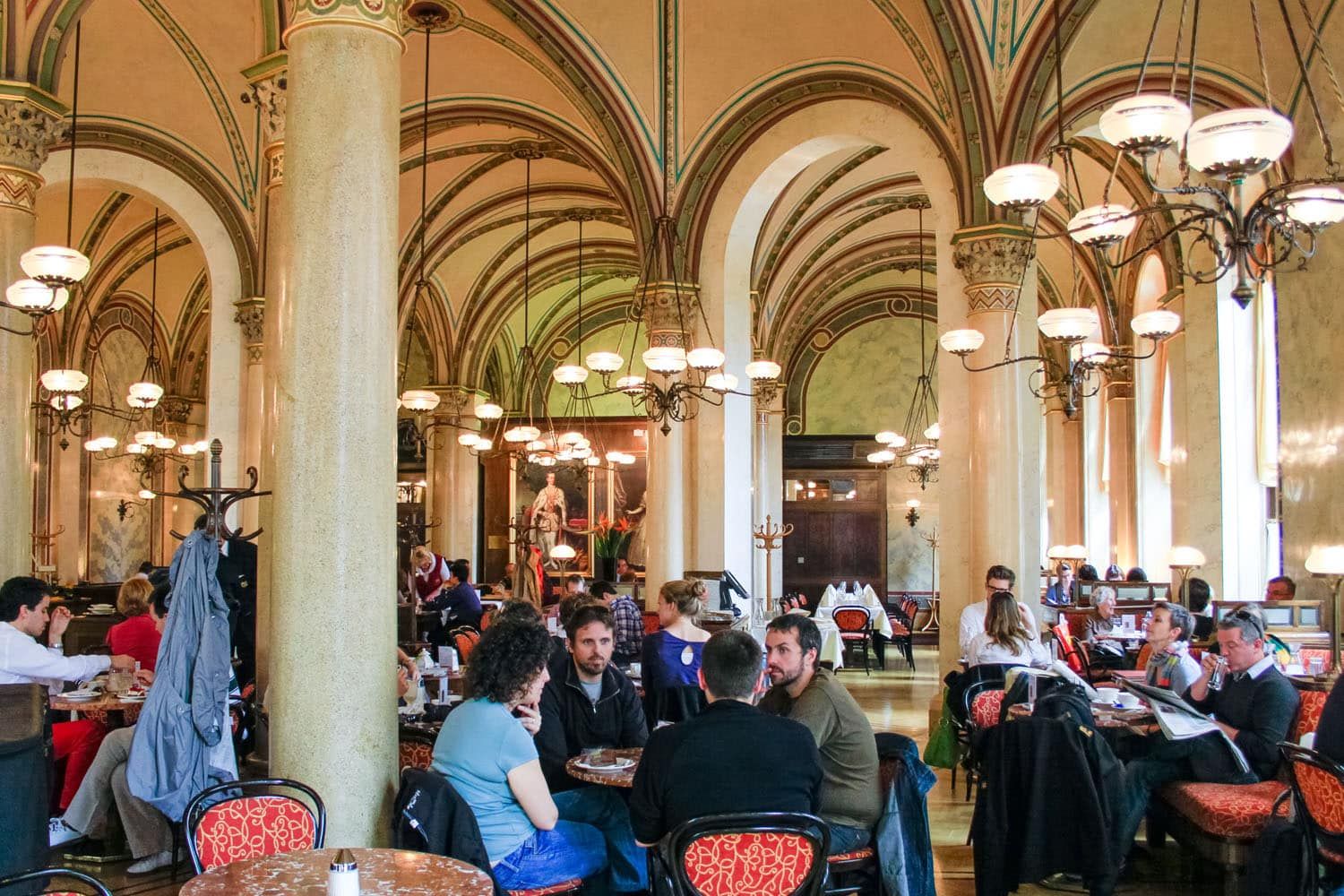
Cafe Central
Demel. Opening in 1786, this is one of the oldest cafes in Vienna. Step inside its elegant interior and dine on Sachertorte, apfelstrudels, and savory treats. It is located on Kohlmarkt.
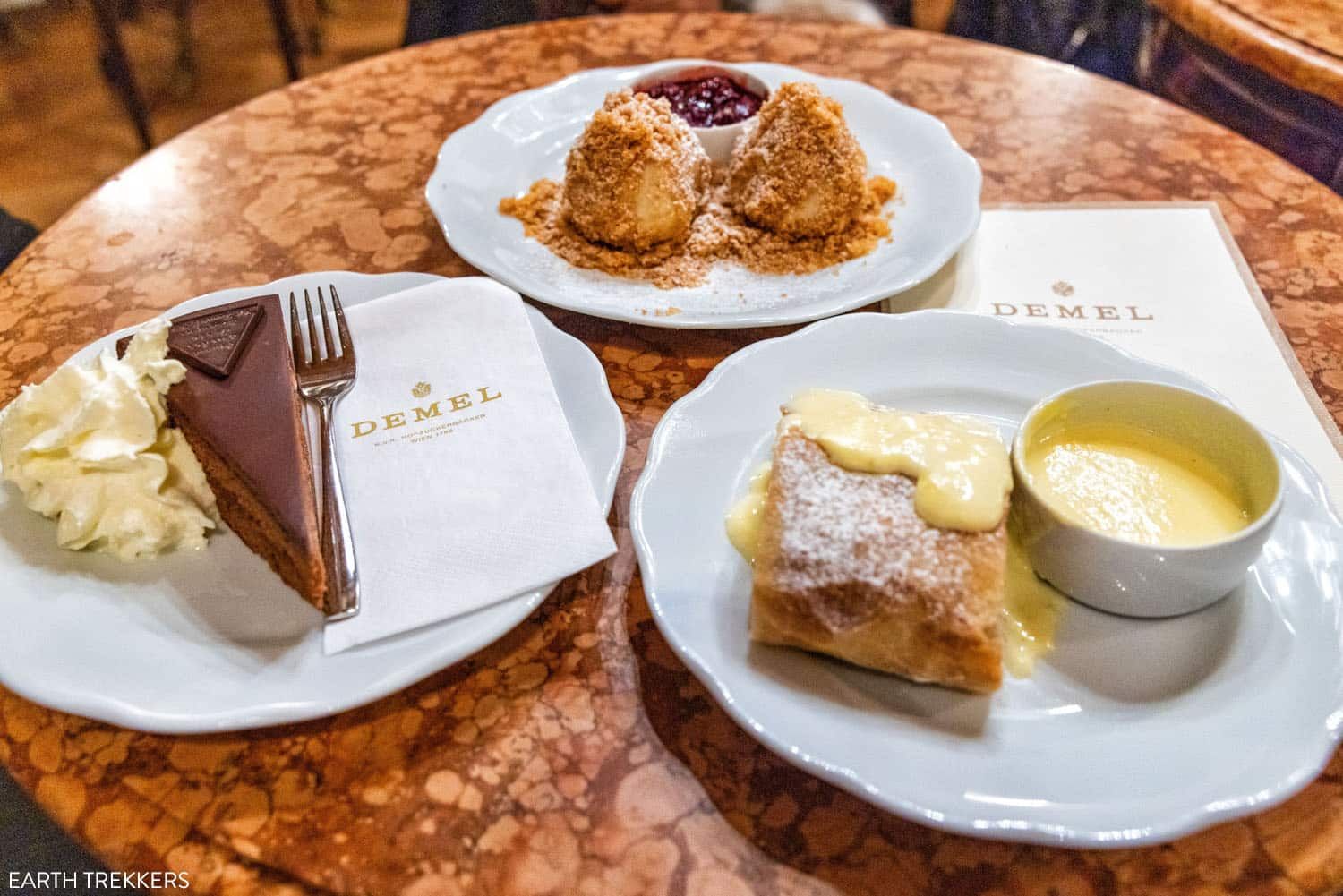
Pastries and sachertorte at Demel
Café im Kunsthistorischen Museum. Located inside the dome hall of the Kunsthistorisches Museum, this gorgeous café is the perfect place to take a break and have cup of coffee, pastry, or lunch. This is another popular spot so be sure to make a reservation in advance.
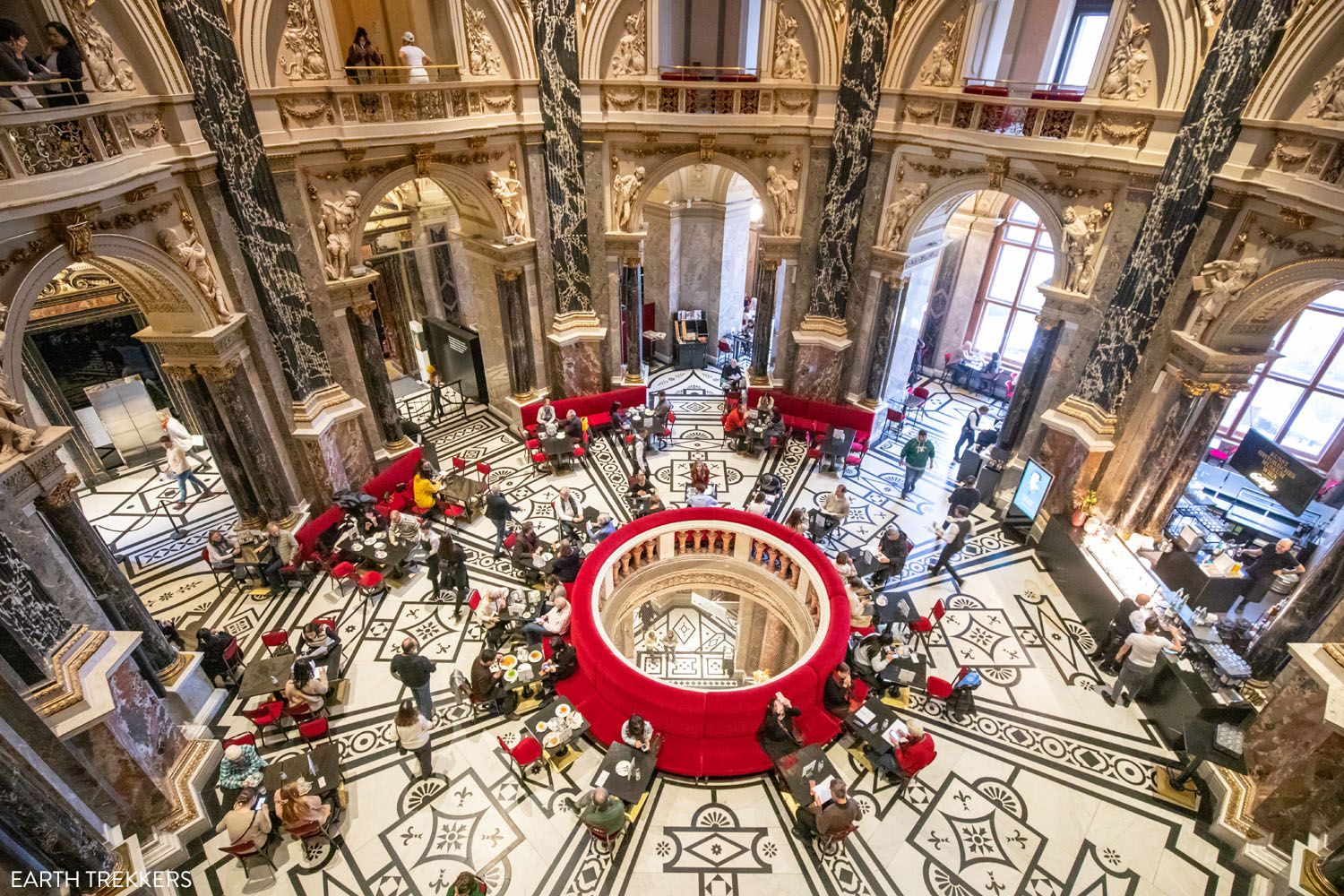
Kunsthistorisches Museum cafe
Café Schwarzenberg. Café Schwarzenberg gets a nice mix of locals and tourists. It is located on the Ringstrasse amongst several 5-star hotels. We ate breakfast here, opting for omelets and espressos and ending with a Klimt torte, but they also serve Viennese breakfast and have a case of decadent pastries to choose from.
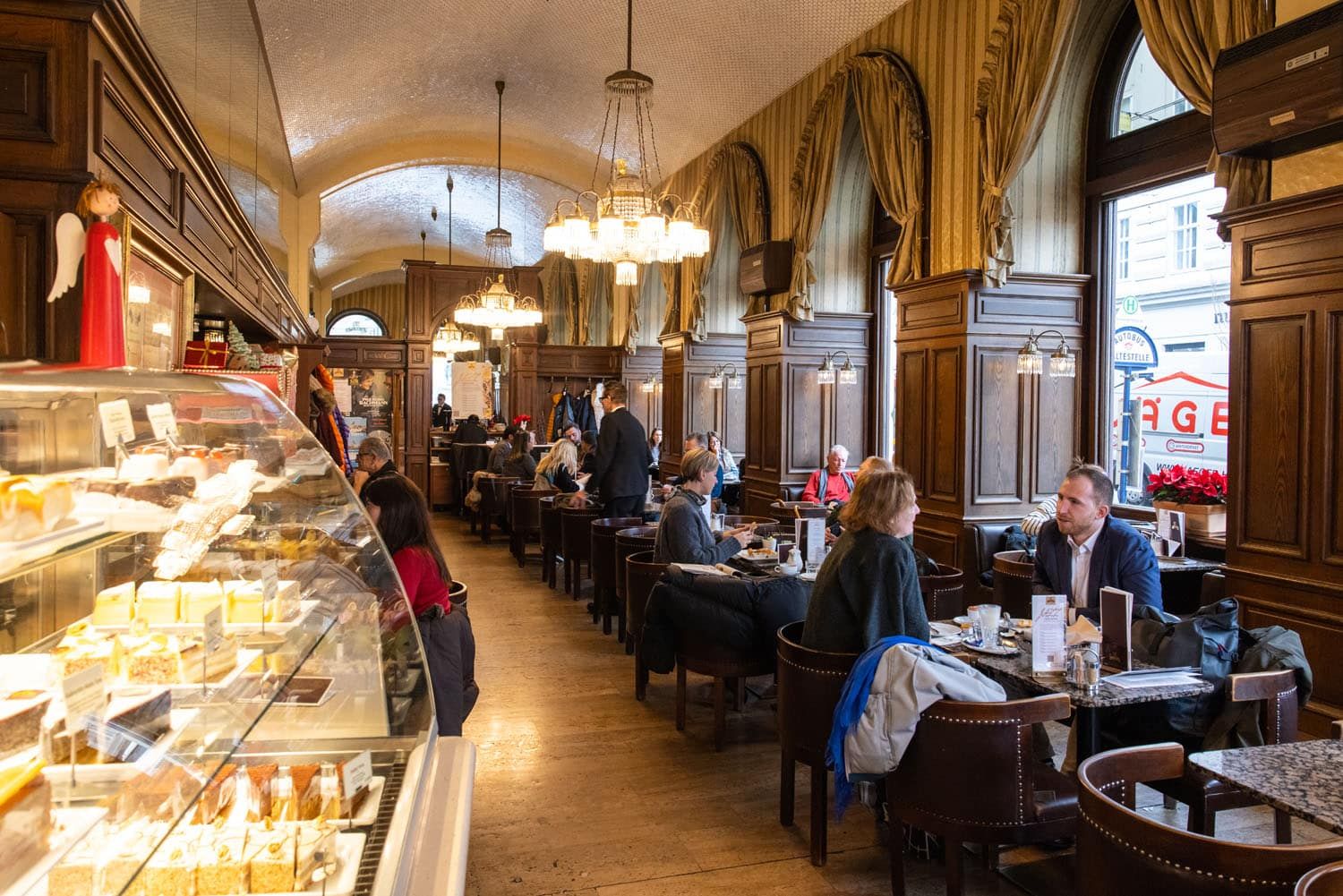
Café Schwarzenberg
6. Tour the Hofburg Palace
The Hofburg Palace, also called the Imperial Palace, has been the seat of government since the 13th century and the Habsburg’s winter residence. It is a massive complex of buildings and to see and do everything, it takes a half to a full day of your time.
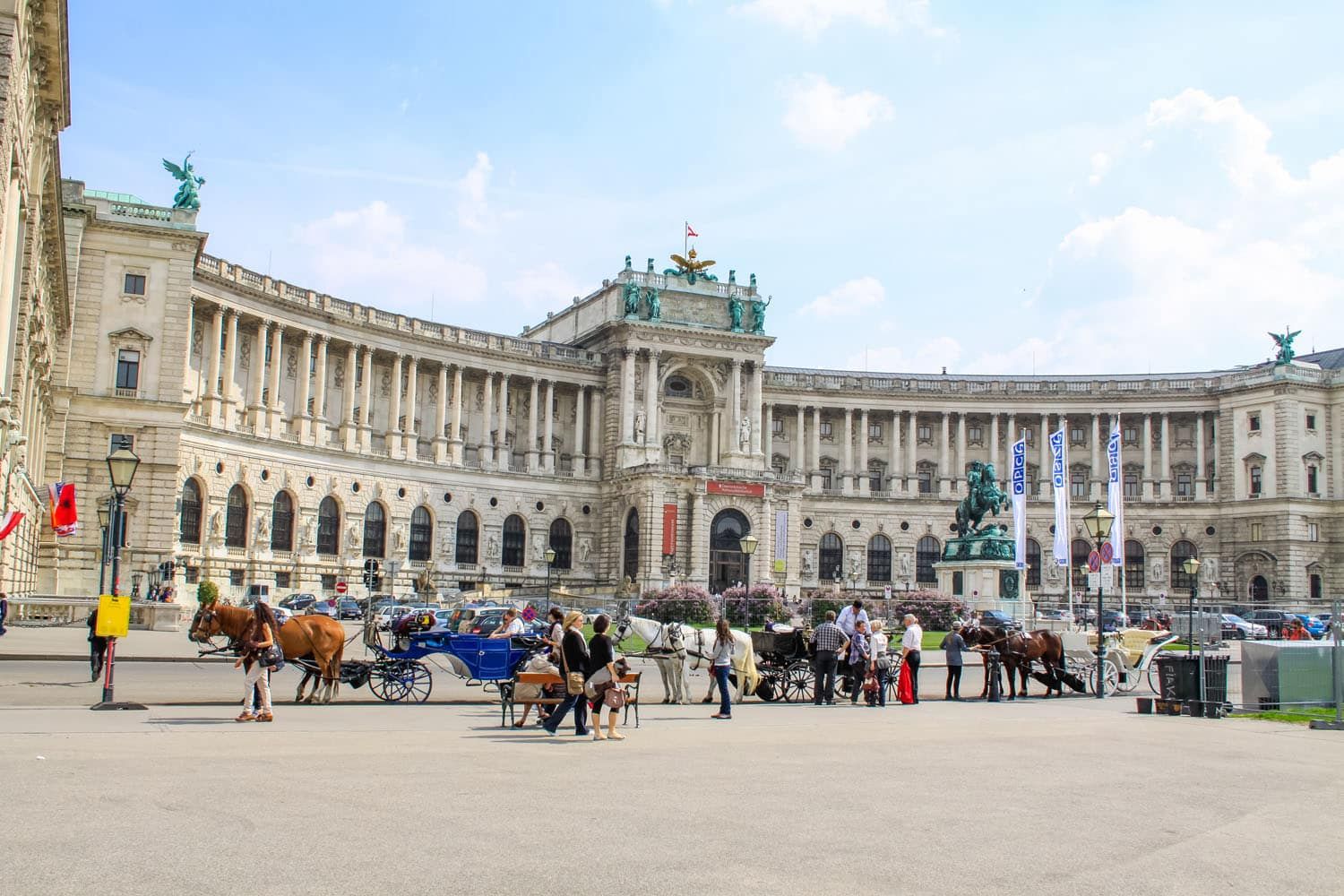
Hofburg Palace
Here is a list of the main sights in the Hofburg Palace.
The Spanish Riding School
This is one of the most prestigious riding academies in the world. The Spanish Riding School preserves classical dressage and the training of Lipizzaner horses.
There are two ways to visit the Spanish Riding School. In the morning, 1-hour exercises are held, which are training sessions of the Lipizzaners. This is typically held at 10 am and costs €17. Purchase your ticket in advance because this is a popular activity and call sell out.
You can also attend a performance, the Ballet of the White Stallions, where you see fully trained Lipizzans. This is a more expensive option, with tickets starting at €26 and is held about once a week. Get hours, pricing, and make your reservation in advance on the official website.
Note: Photography and video are not allowed in the Spanish Riding School.
We chose to watch the training session, because it worked into our schedule better and had a lower price tag. You don’t get the full experience, seeing the Lipizzans putting on the full show, but you do get to see some stallions practicing the movements. Plus, an announcer during the training provides lots of interesting facts about the Lipizzaner horses.
There are multiple entrances into the Spanish Riding School, so arrive 15 minutes early, to give yourself enough time to get to your seat.
The Sisi Museum & Imperial Apartments
The Sisi Museum was founded in 2004. On display are over 300 personal objects of Empress Elizabeth (Sisi), the wife of Emperor Franz Joseph. In this museum, learn about her life and tragic death by assassination in 1898.
On a visit to the Sisi Museum, you will also tour the Imperial Apartments, where Emperor Franz Joseph and Empress Elizabeth lived. Tour the 24 opulent rooms of one of Austria’s most famous imperial couples.
To visit the Sisi Museum and Imperial Apartments, purchase a timed entry ticket in advance on the official website. The entrance fee includes an audio guide and it takes about 75 minutes to tour the museum and apartments. If those tickets are sold out, you can also purchase them on GetYourGuide.
The Imperial Treasury
The Imperial Treasury, also called the Kaiserliche Schatzkammer Wien, has on display the Imperial Crown (which served as the crown for the kings and emperors of the Holy Roman Empire), one of the largest emeralds in the world, an agate bowl which is considered to be the Holy Grail, and a giant narwhal tooth thought to be the horn of a unicorn.
A visit here lasts about 30 minutes. It’s only worthwhile for those with an interest in seeing the crown jewels. Get hours and pricing on the official website.
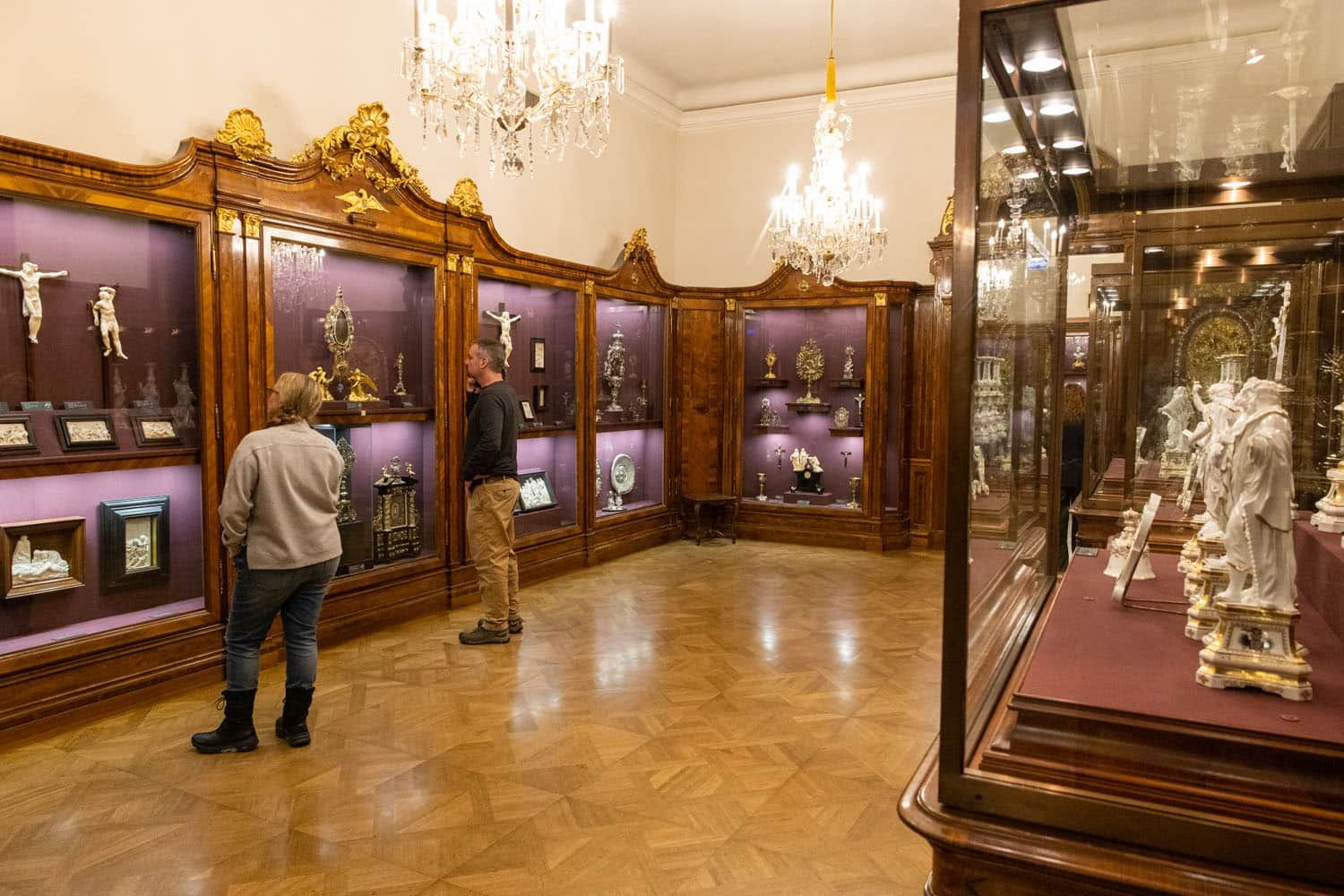
Imperial Treasury
The Swiss Gate
The Swiss Gate (Schweizertor) is the original entrance into the Hofburg Palace. It was built between 1552 and 1553 and bears the insignia of Emperor Ferdinand I and the Order of the Golden Fleece. The gate gets its name from the Swiss Guard, who guarded the palace in the 18th century. The Swiss Gate is located near the Imperial Treasury.
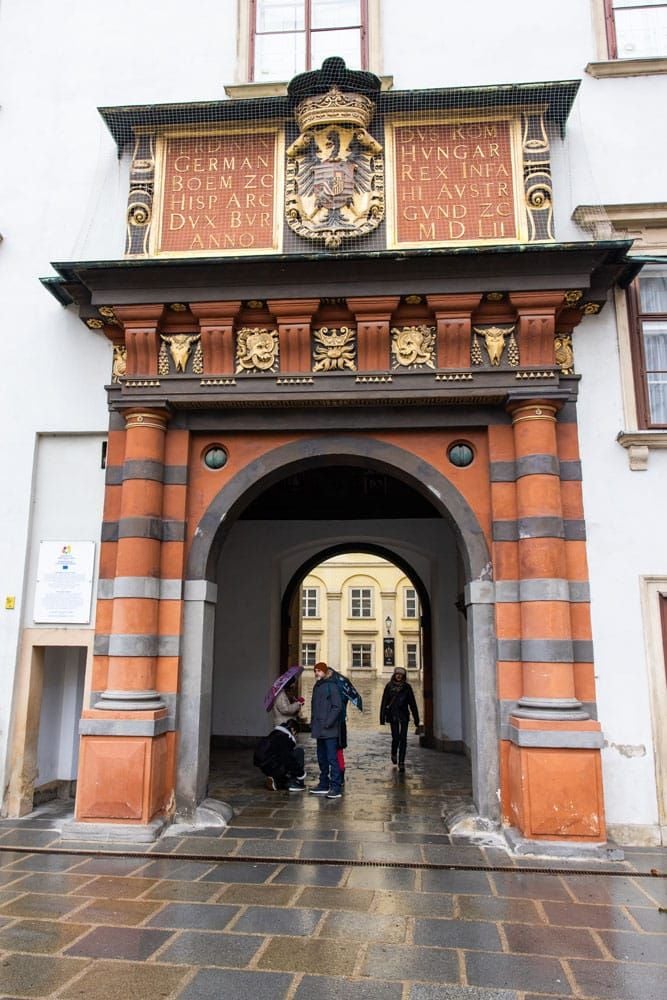
Swiss Gate
The House of Habsburgs Tour
We did this and loved it. With just a few other visitors, several interesting exhibits, and great views of the interior of the Hofburg Palace, this was our favorite experience at the Hofburg Palace. This “tour” is done self-guided at your own pace, so you can spend as little or as long as you like, visiting the various exhibits.
On one ticket, visit the Armory Chamber (3,800 artifacts, including armor and weapons), the Collection of Historical Musical Instruments (Renaissance and Baroque instruments, some of which were used by famous composers), and the Weltmuseum (an ethnographic museum). For us, one of the highlights was seeing the Hall of Columns, a gorgeous hallway in the Hofburg Palace.
These exhibits are located inside the Neue Hofburg. Get hours and pricing on the official website.
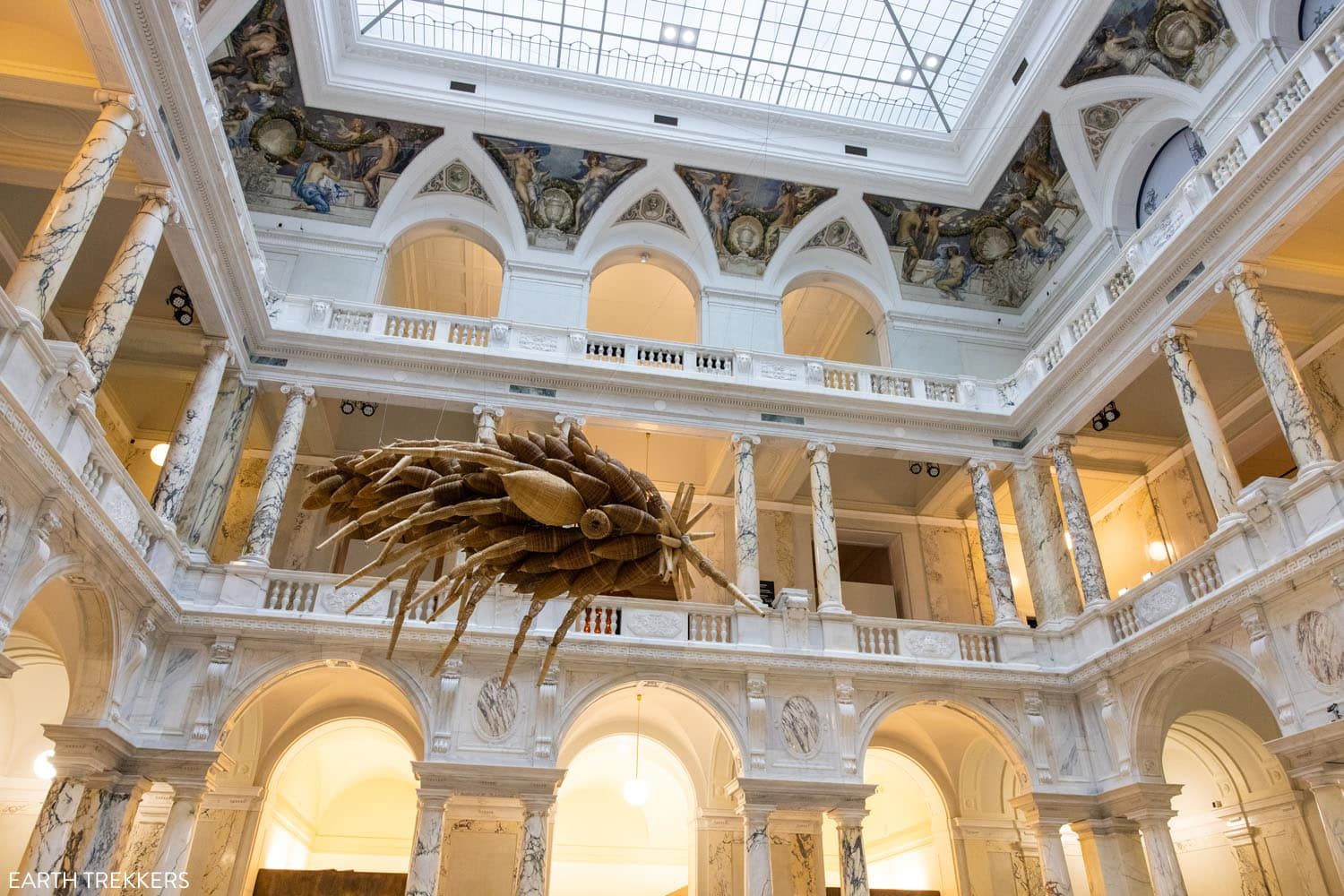
Atrium of the Neue Hofburg Palace
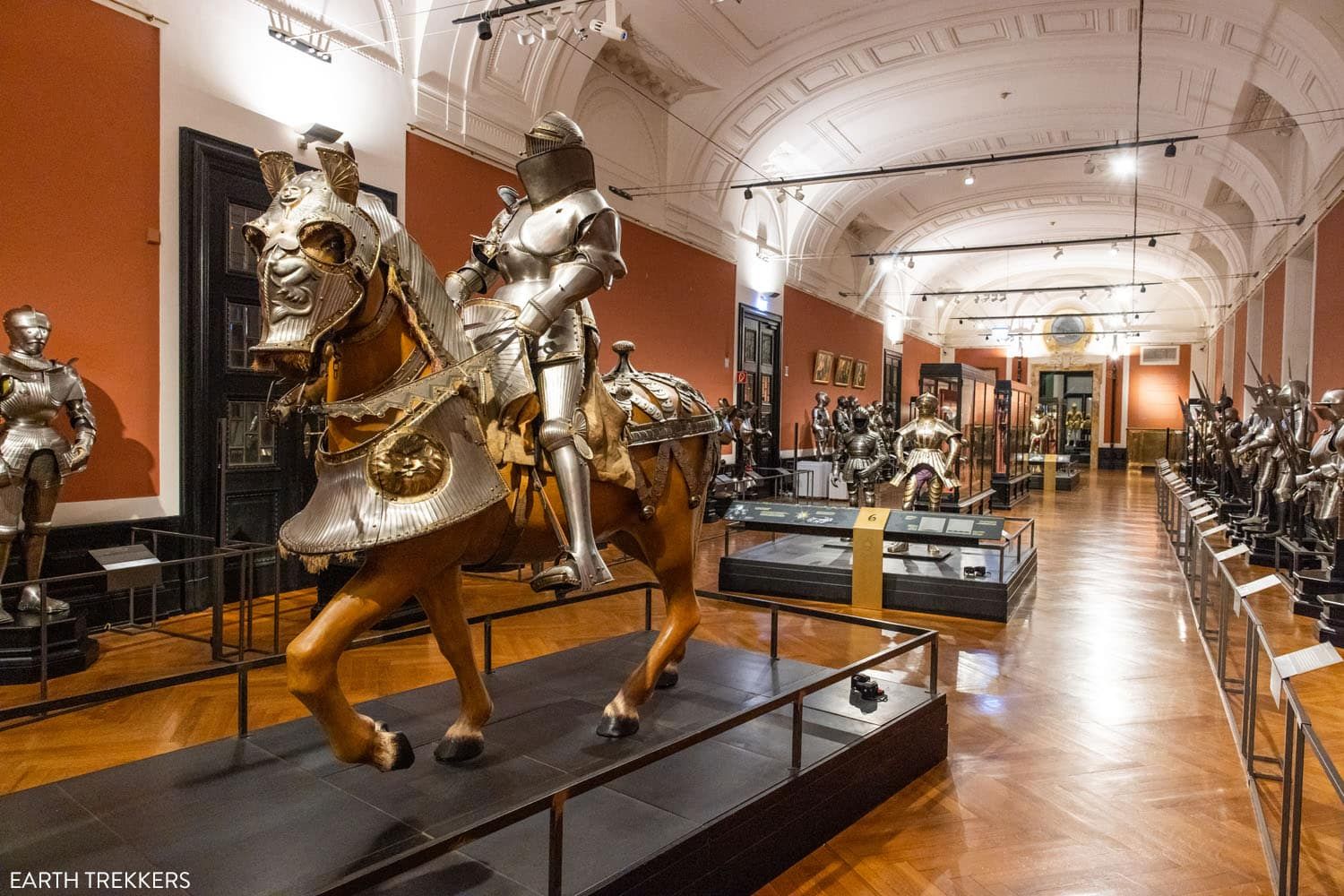
Armory Chamber
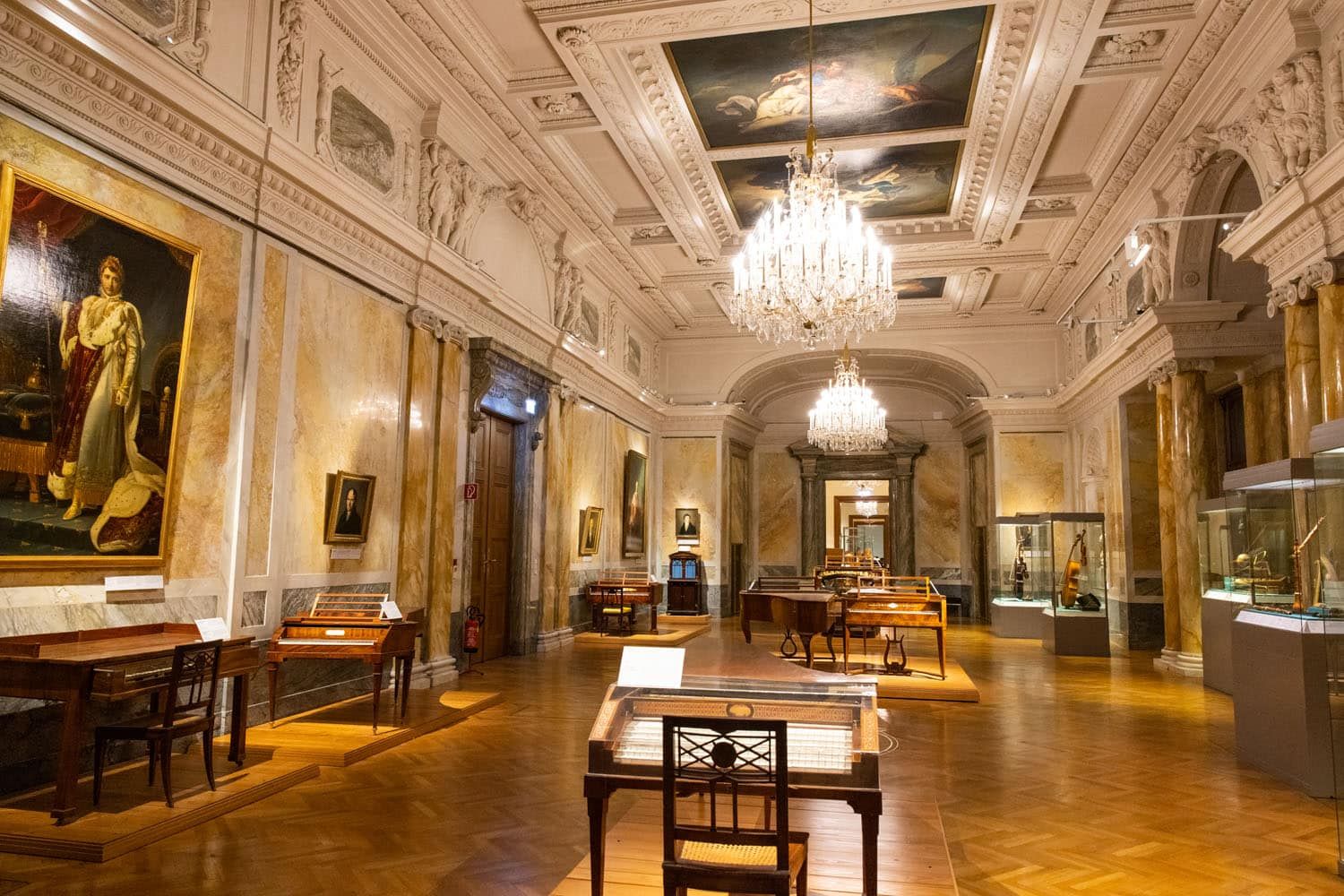
Musical Instruments Collection
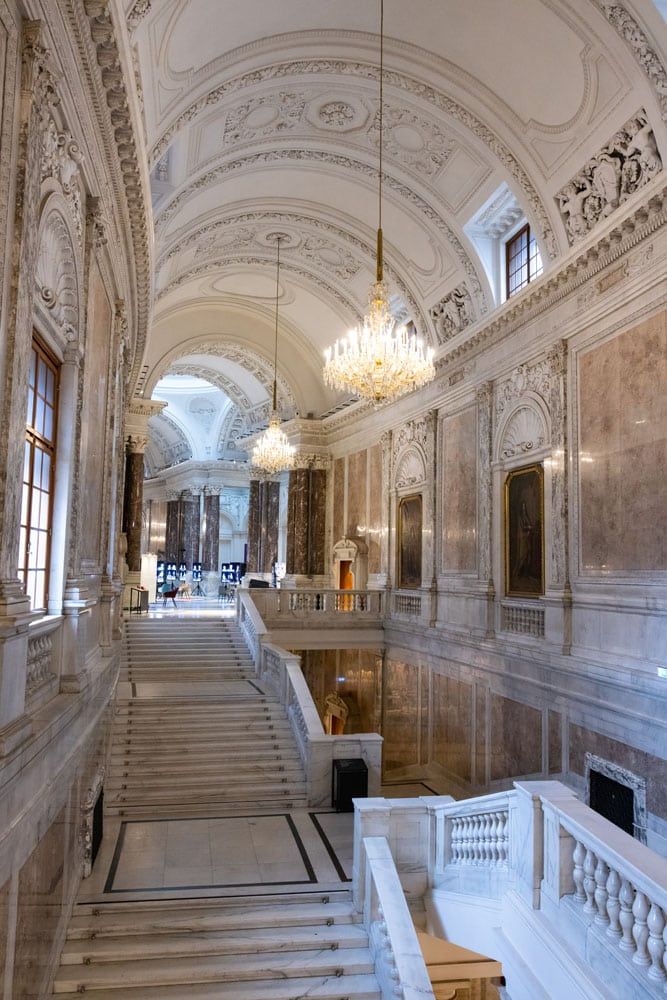
Hall of Columns
The Hofburg Chapel & Vienna Boys’ Choir
At the Hofburg Chapel (Hofburgkapelle), you can attend a performance by the Vienna Boys’ Choir or a concert performance. Get the schedule here.
7. Have a Slice of Sacher Torte
The Sacher Torte is a famous chocolate cake: two layers of cake separated by apricot jam and covered in chocolate icing. The cake was “invented” by Franz Sacher at the request of Prince Wenzel von Metternich for some of his special guests.
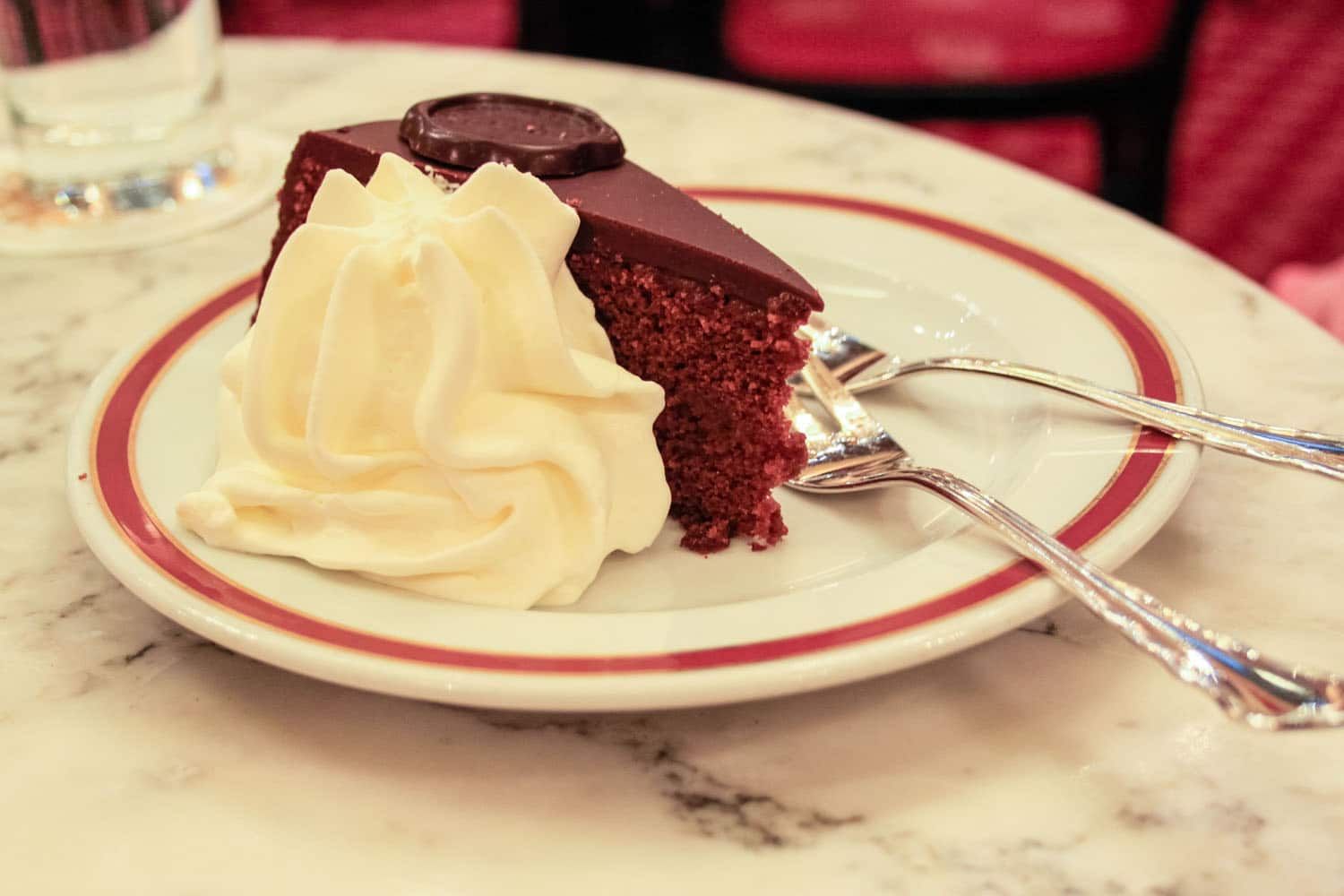
At Café Sacher Vienna, inside of Hotel Sacher, dine on the original Sacher Torte. Lines to get in can be huge, so get here early or make a reservation in advance.
You can also have a Sacher Torte at Demel (the Eduard-Sacher-Torte) which only has one layer of apricot jam, rather than two.
Or, try them both and have fun picking your favorite!
8. Visit the Kunsthistorisches Museum
This is an amazing museum. The interior, with its grand staircases, marble floors and walls, and intricately painted ceilings, is a sight to see.
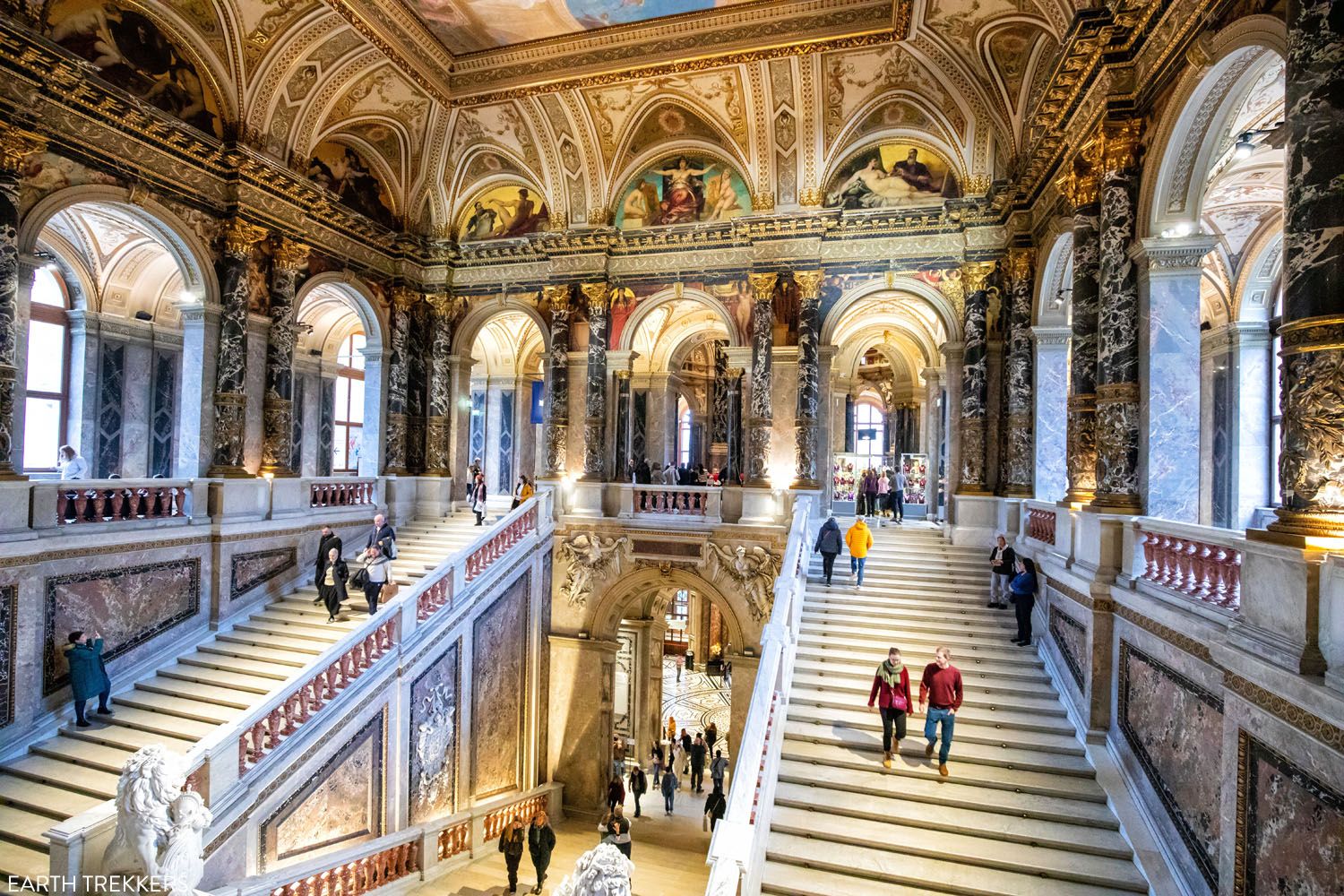
Kunsthistorisches Museum
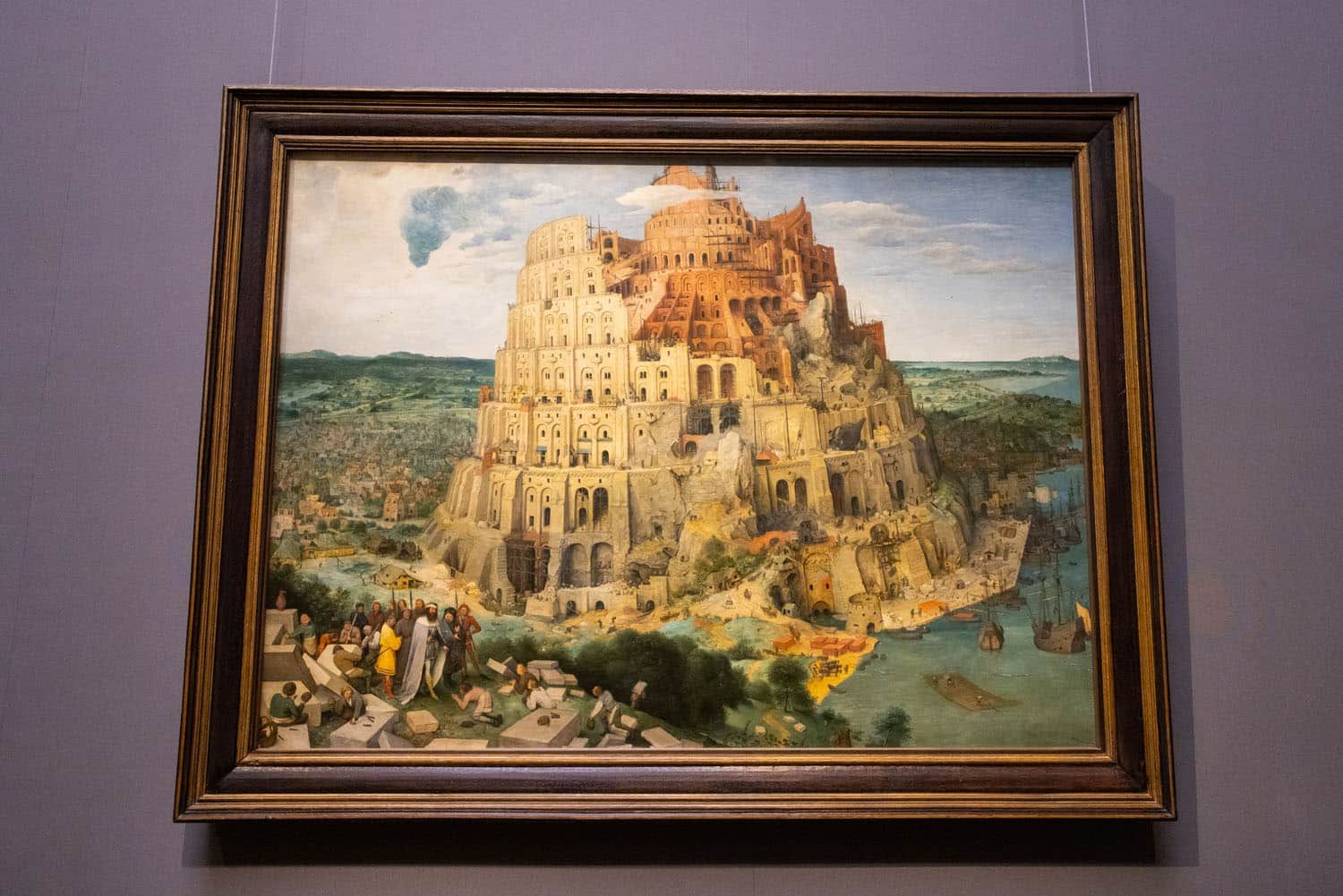
Tower of Babel by Pieter Brugel
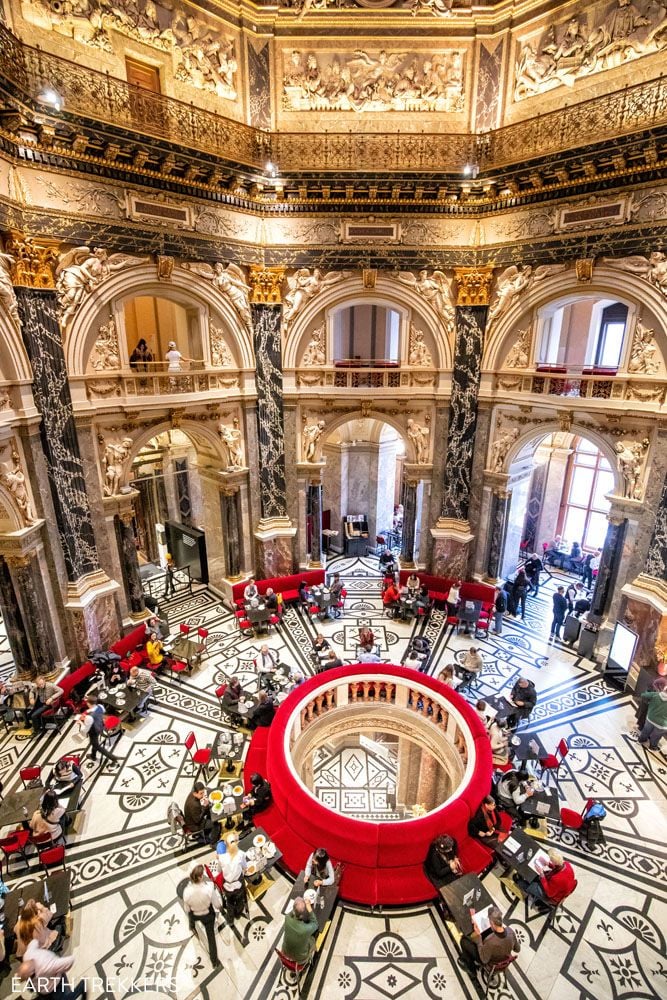
Café im Kunsthistorischen Museum
On display is an enormous amount of art which was collected by the Habsburg family. Paintings by Gustav Klimt, Titian, Michelangelo, Vermeer, Rubens, and Rembrandt grace the walls. Don’t miss the Tower of Babel by Pieter Bruegel, one of the most famous paintings in the museum. Also on the display are Greek, Roman, and Egyptian antiquities.
One of the most elegant cafes in Vienna is located in the dome hall. It has a beautiful setting and windows from the café look out over Maria Theresien Platz. If you take the stairs to the top floor, there are small balconies that overlook the café.
Get hours and pricing on the official website. And if you want to dine in the café, make your reservation in advance.
9. Belvedere Palace
The Belvedere is a complex of historic buildings. The Upper Belvedere Palace is a Baroque palace that is now an art museum. Inside sits over 800 years of art history, with Gustav Klimt’s The Kiss being its most famous work of art. There is also art by Monet, Jacques Louis David (Napoleon at the Great St. Bernard), and Van Gogh.
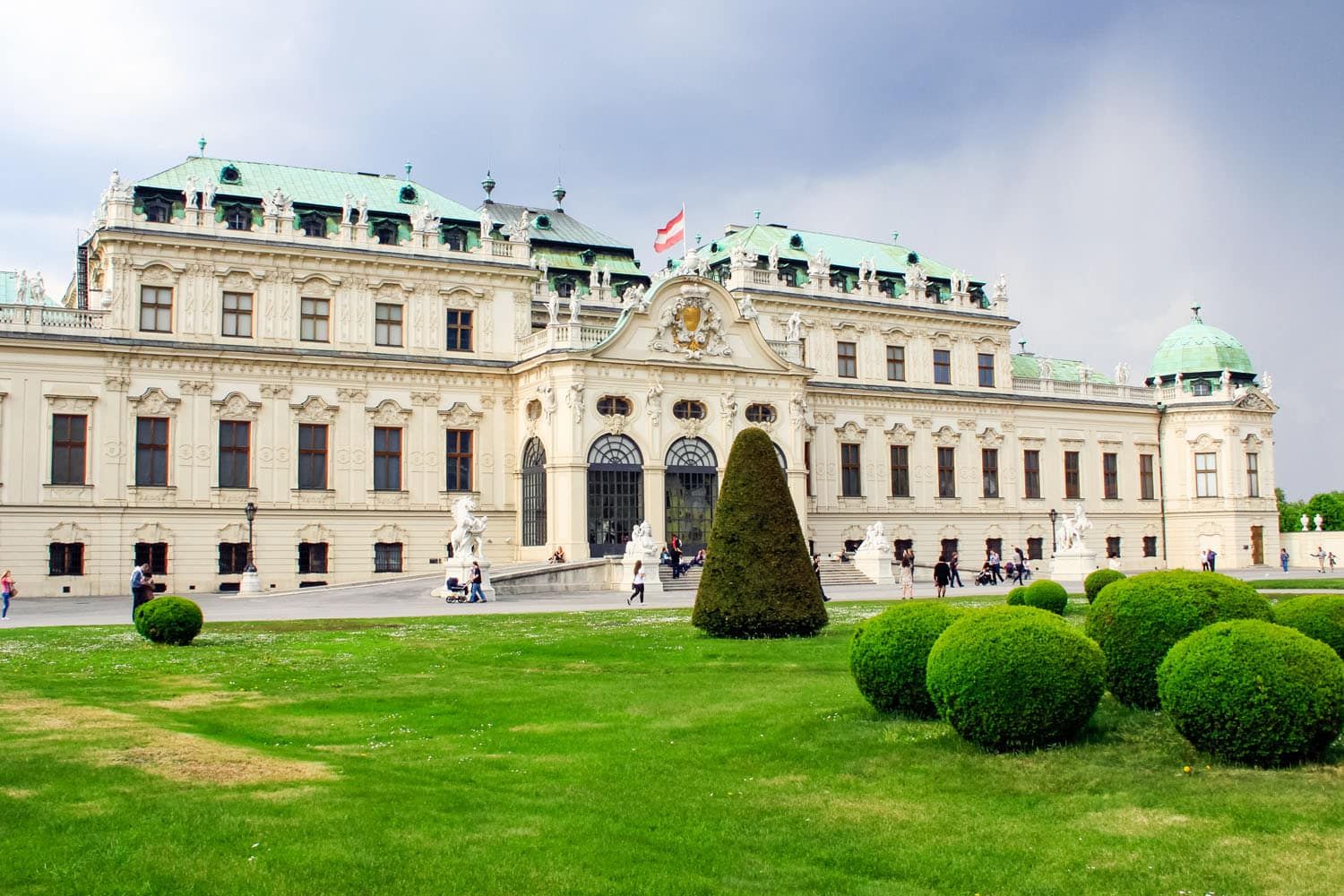
Belvedere Palace
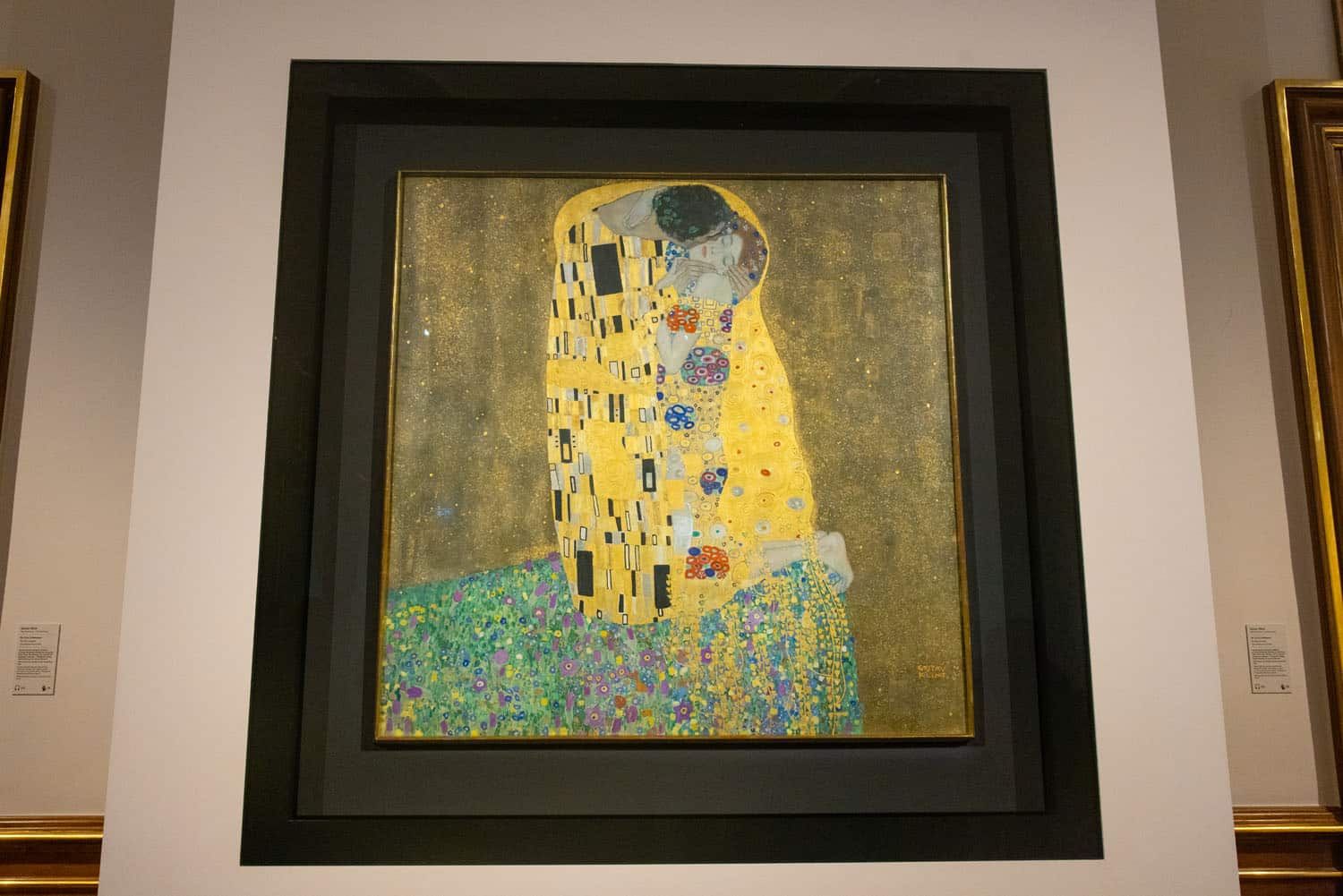
The Kiss by Gustav Klimt
Before leaving the area, step out into the gardens that surround the palace for a very nice view of Vienna.
Belvedere Palace is located outside of the city center. To get here, take Tram D. If you use the Underground, get off at Sudtiroler Platz/Hauptbahnhof and it is a 15-minute walk to the palace.
Get pricing and hours on the official website. You will make a reservation for a time slot.
10. The Austrian National Library
I’m including this in our top 10 because this is one of my favorite places to visit in Vienna. It’s quick, it’s one of the cheaper attractions, and it is one of the prettiest interiors in Vienna.
The Austrian National Library (Österreichische Nationalbibliothek) is the largest library in Austria and one of the largest in Europe. It is located inside of the Neue Berg Wing of the Hofburg Palace.
This is not a room simply filled with books. The ceiling and upper walls are decorated with colorful frescos. Marble statues carved by Peter Strudel and Paul Strudel are located along the long hall, as well as four globes created by Vincenzo Coronelli. It is one of the most beautiful libraries in the world.
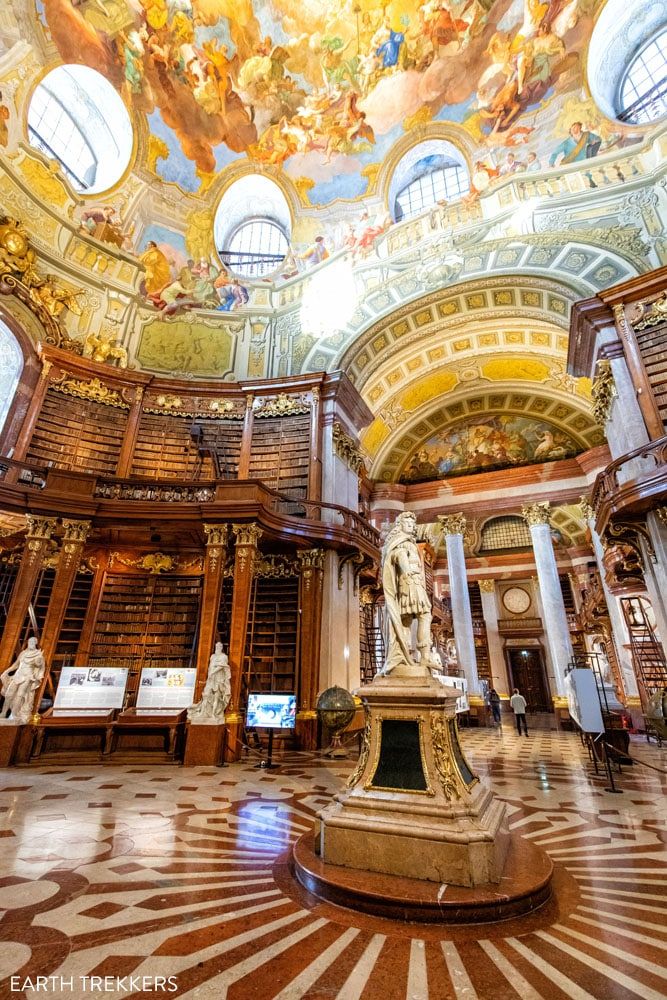
Austrian National Library
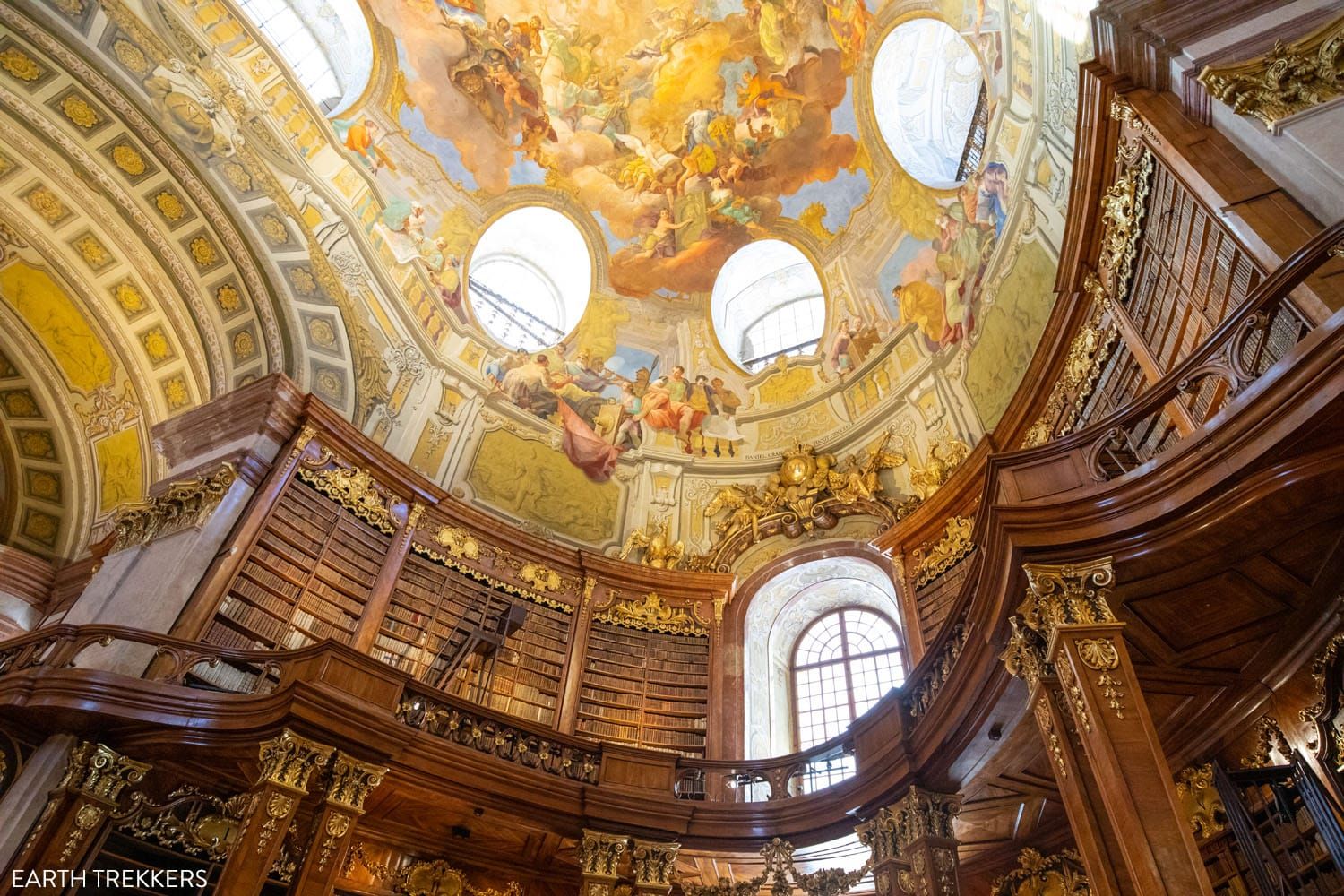
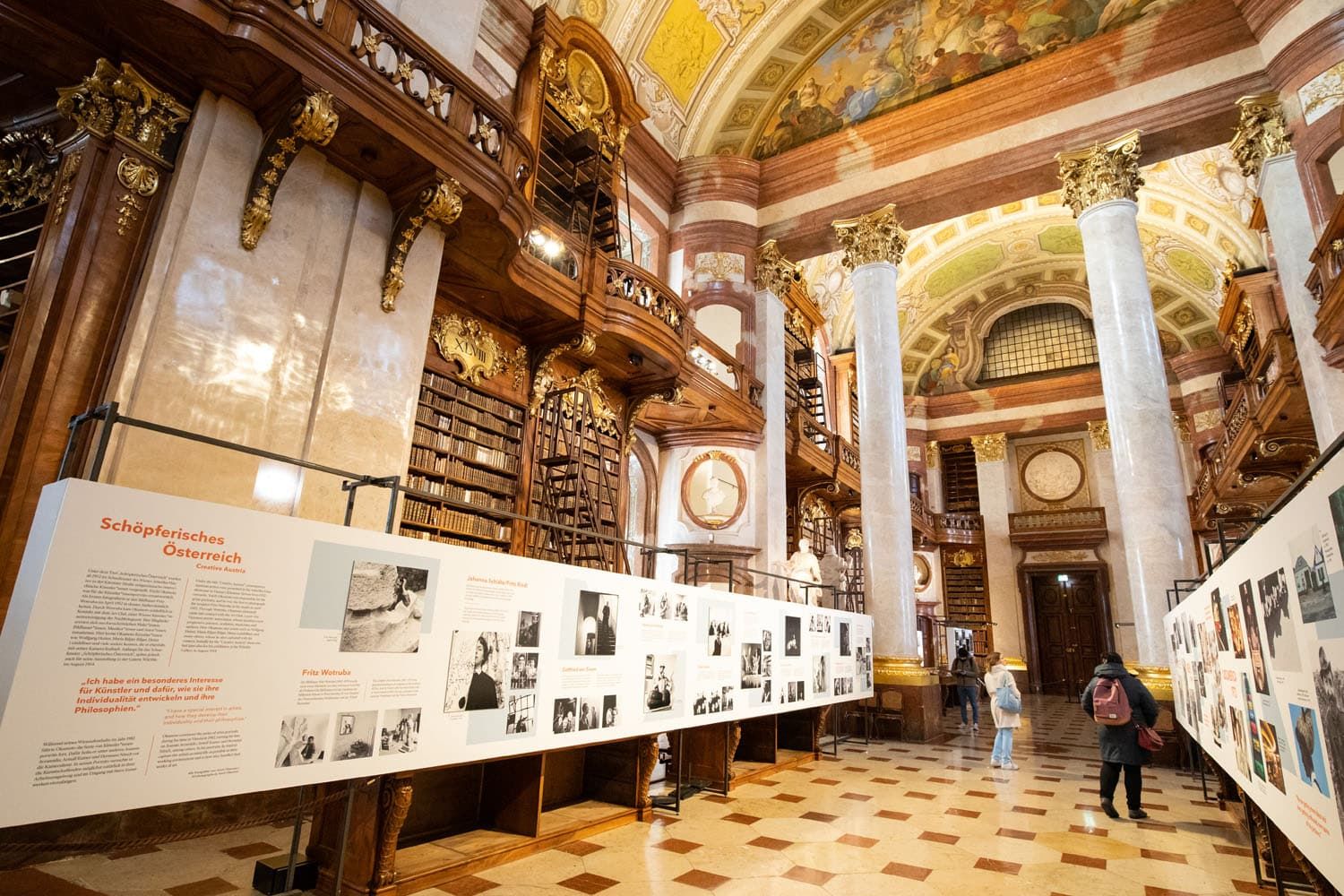
A visit here lasts about 15 to 20 minutes, a little longer if you want to take it all in.
On the official website, purchase your tickets in advance and get pricing and hours of operation. There are several branches of the library so make sure you are purchasing a ticket for the State Hall.
Go Deeper: More Things to Do in Vienna
1. The Albertina
The Albertina is an art museum that has on display an amazing collection of Impressionist art. On the first floor are works of art by Da Vinci, Michelangelo (this exhibit is focused on his study of anatomy), and Raphael. On the second floor are pieces by Degas, Cezanne, Gaugin, Monet, Renoir, Picasso, and Miro, all within three rooms.
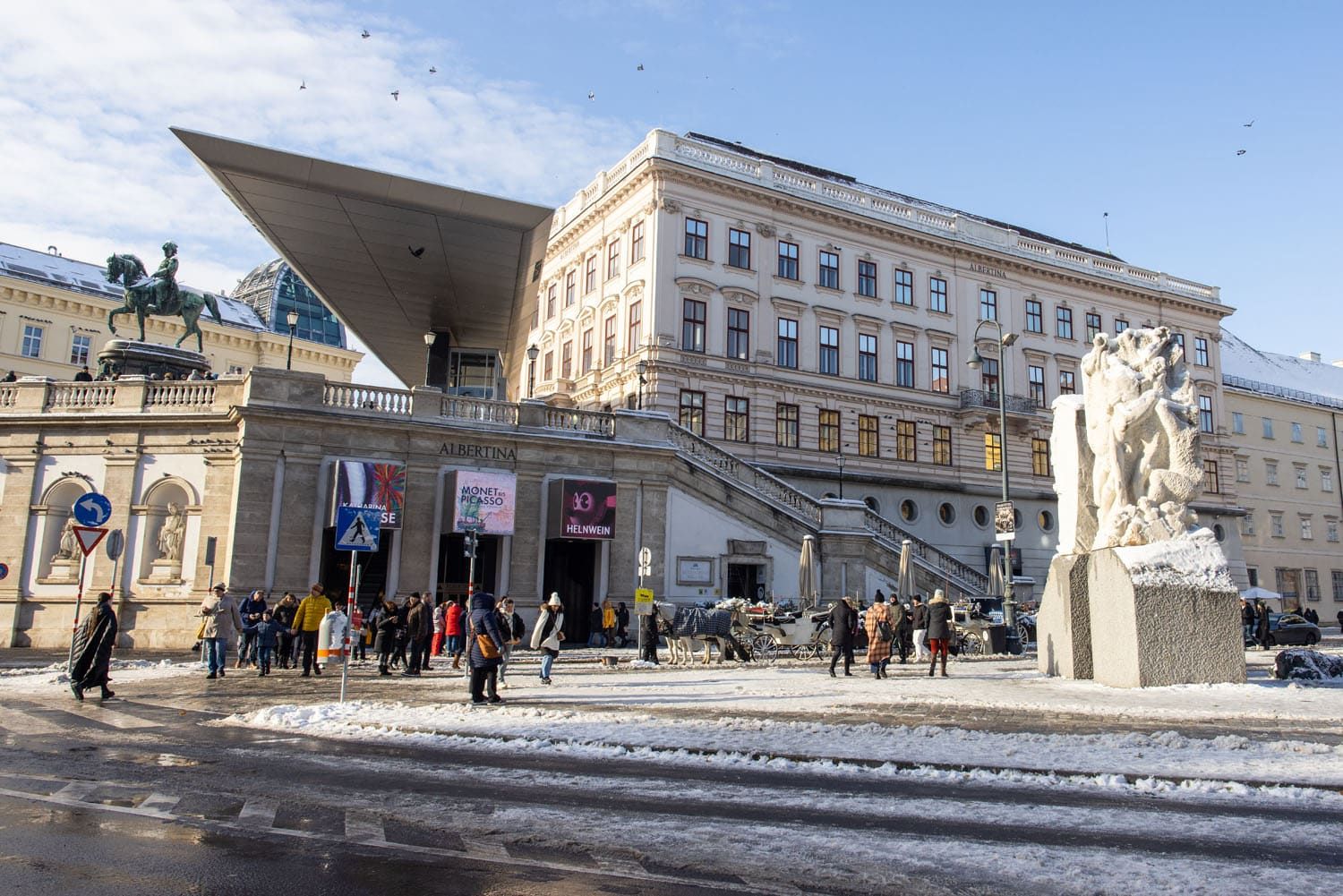
The Albertina
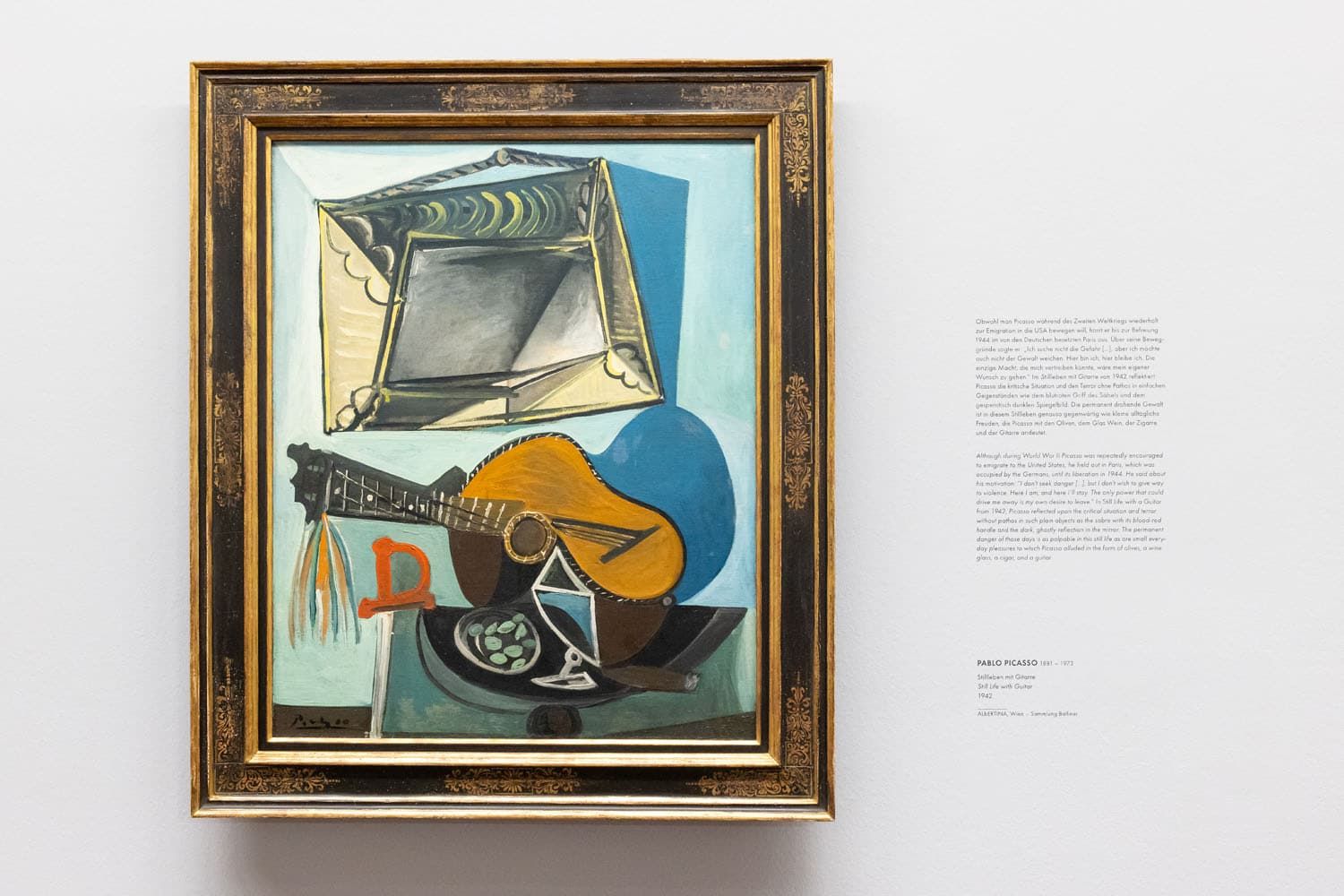
You can easily spend an hour or more here but for those who want to see works of art by famous artists by visiting just a few rooms, this museum is well worth the visit.
The Albertina is located on Albertinaplatz, across the street from the Opera House. Get hours and pricing on the official website.
2. The Imperial Crypt (Kapuzinergruft)
The Imperial Crypt, also called the Capuchin Crypt, is where the members of the House of Habsburg are entombed. This relatively small space contains the bodies of 145 members of the family, some of them resting in metal sarcophagi and remains of others in urns.
A visit here lasts about 30 minutes. Get pricing and hours on the official website.
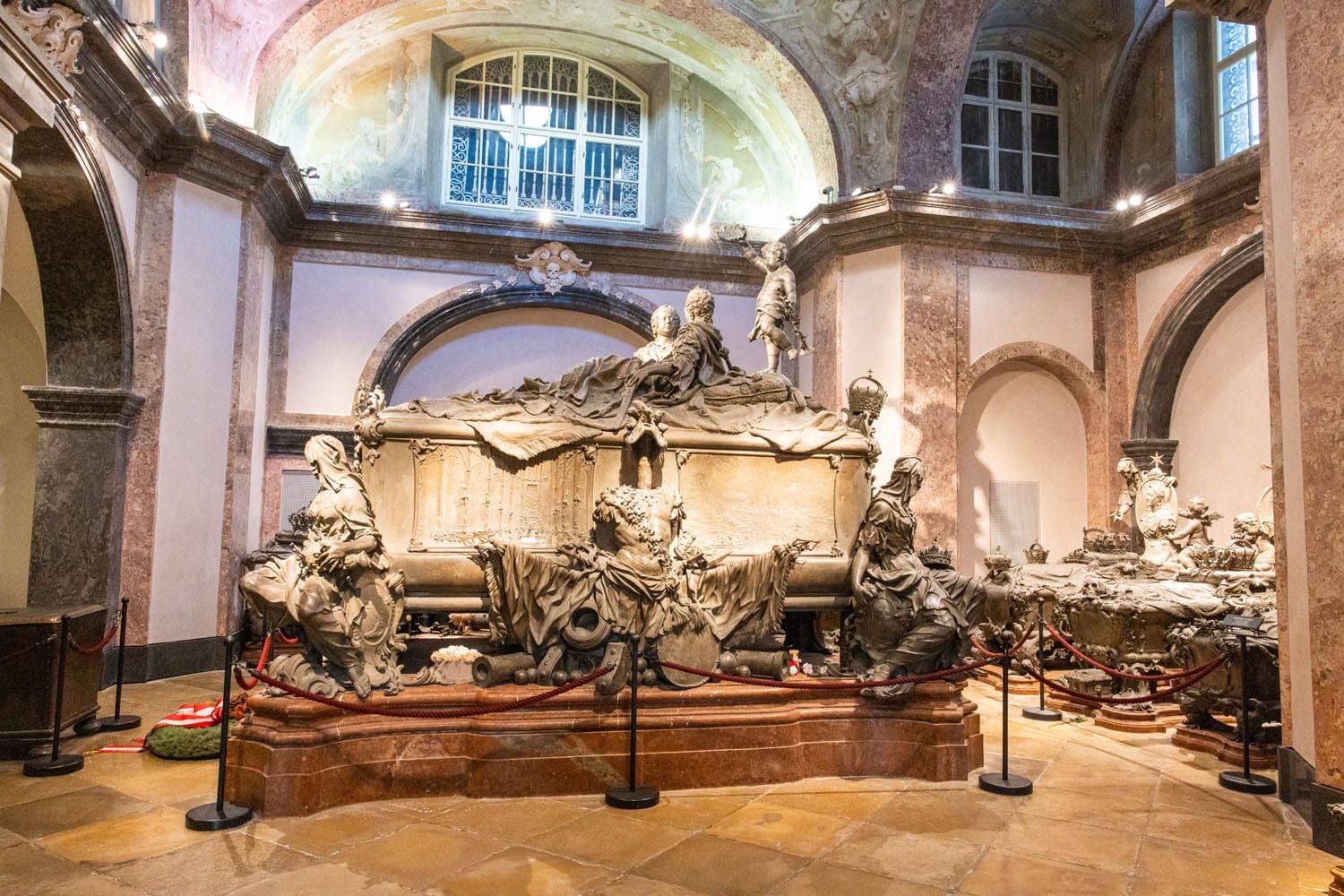
Imperial Crypt
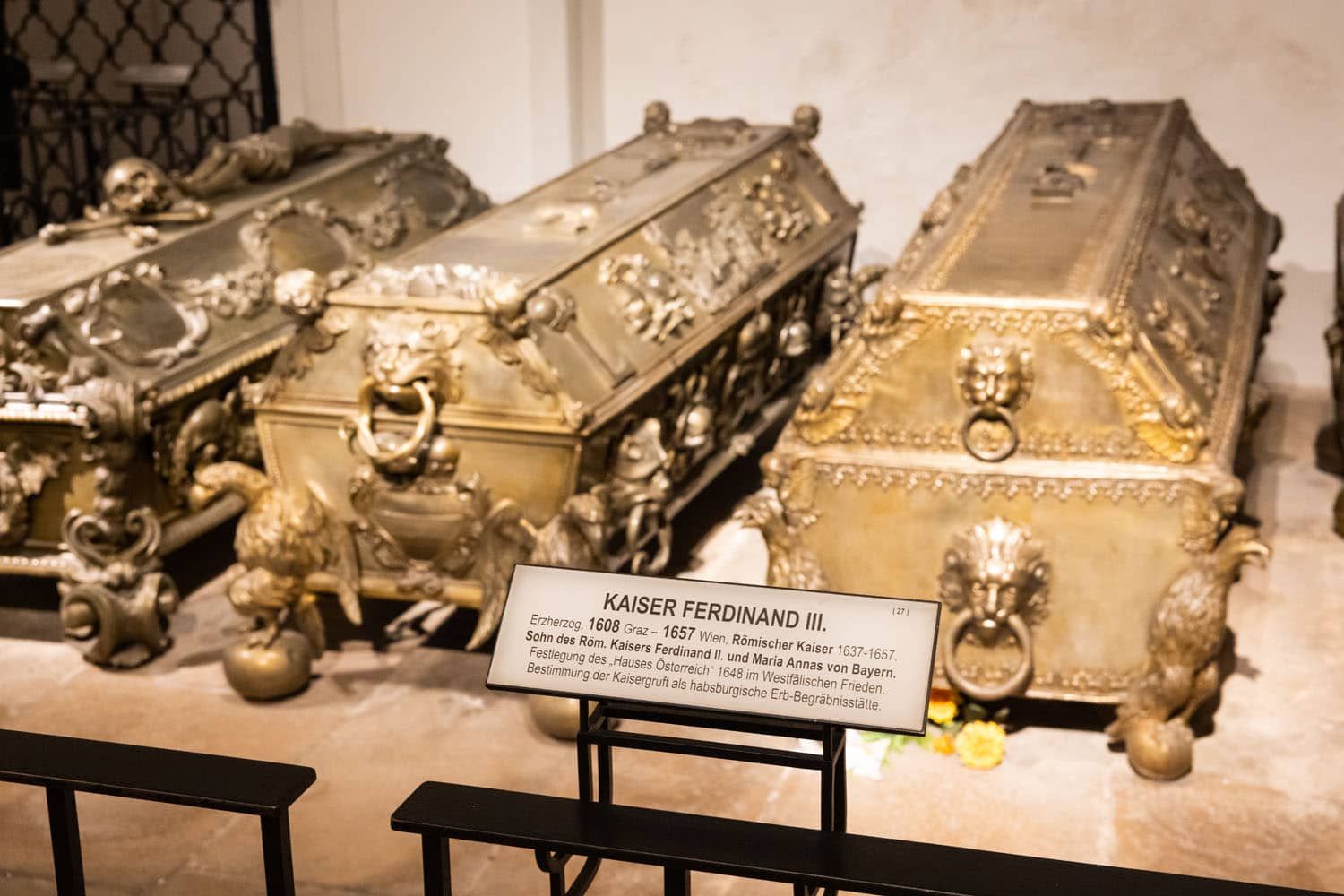
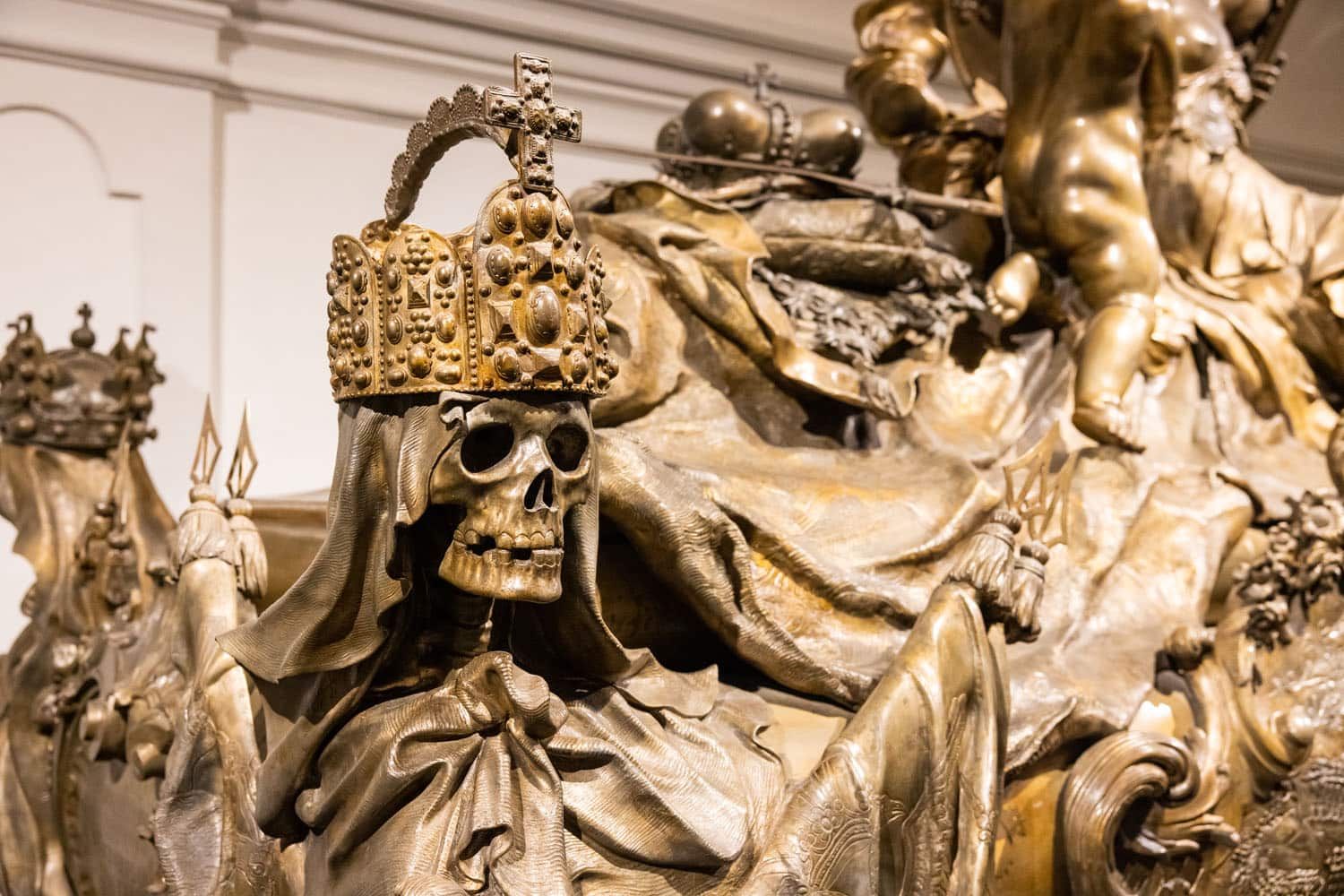
3. Museum of Natural History
The Naturhistorisches Museum Wien has on display over 300 million objects, making it one of the most important nature museums in the world. It sits across Maria Theresa Platz from the Kunsthistorisches Museum, so these can be visited together.
This is a massive museum and it would be easy to spend half of a day here. If you just want to see the top sights, see the life-sized woolly mammoth, the Dinosaur Hall, and the Venus of Willendorf (a stone carving that is approximately 29,500 years old). And, like the Kunsthistorisches Museum, the grand staircase and cafe are worth a photo or two.
Get hours and pricing on the official website.
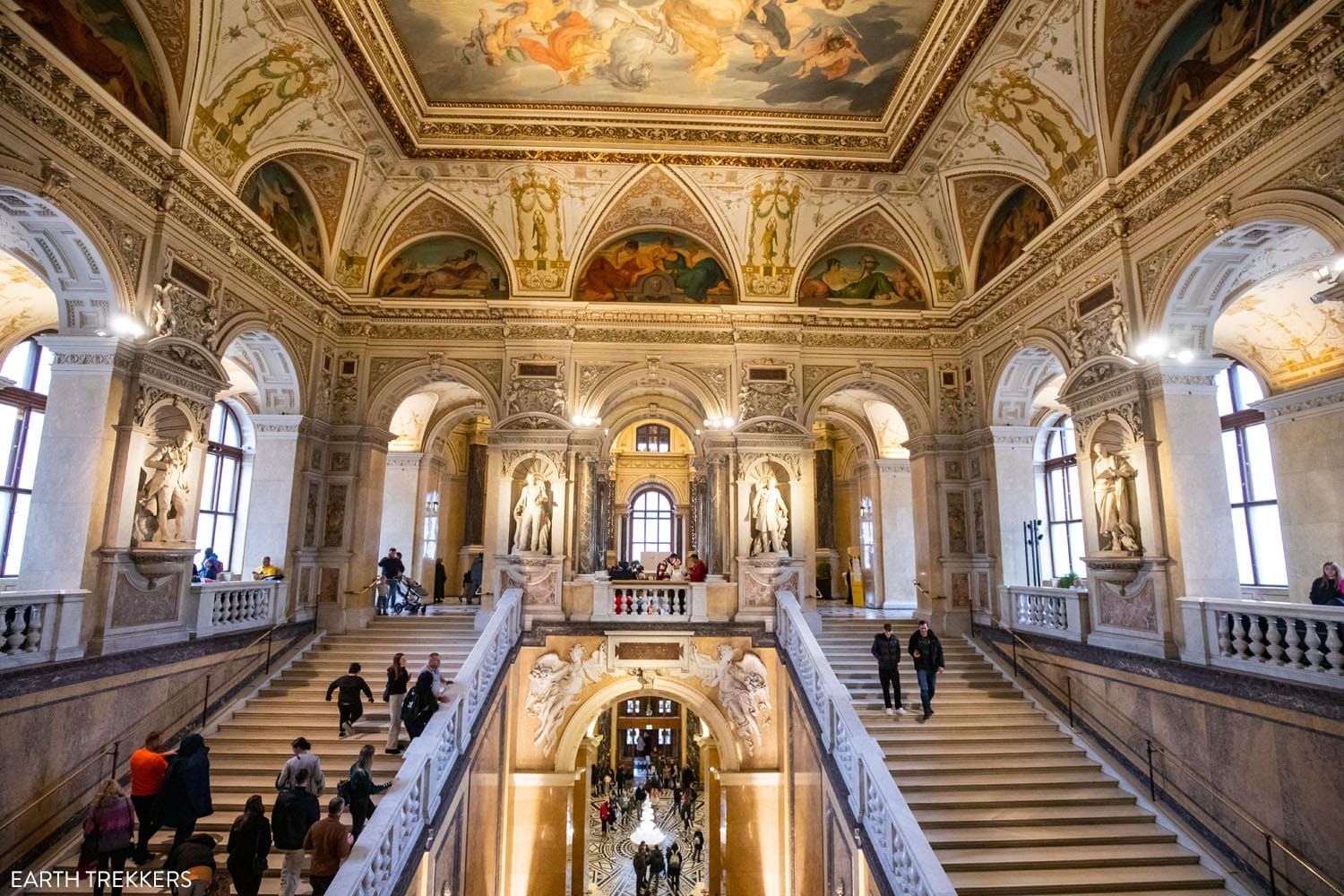
Naturhistorisches Museum Wien | Things to Do in Vienna
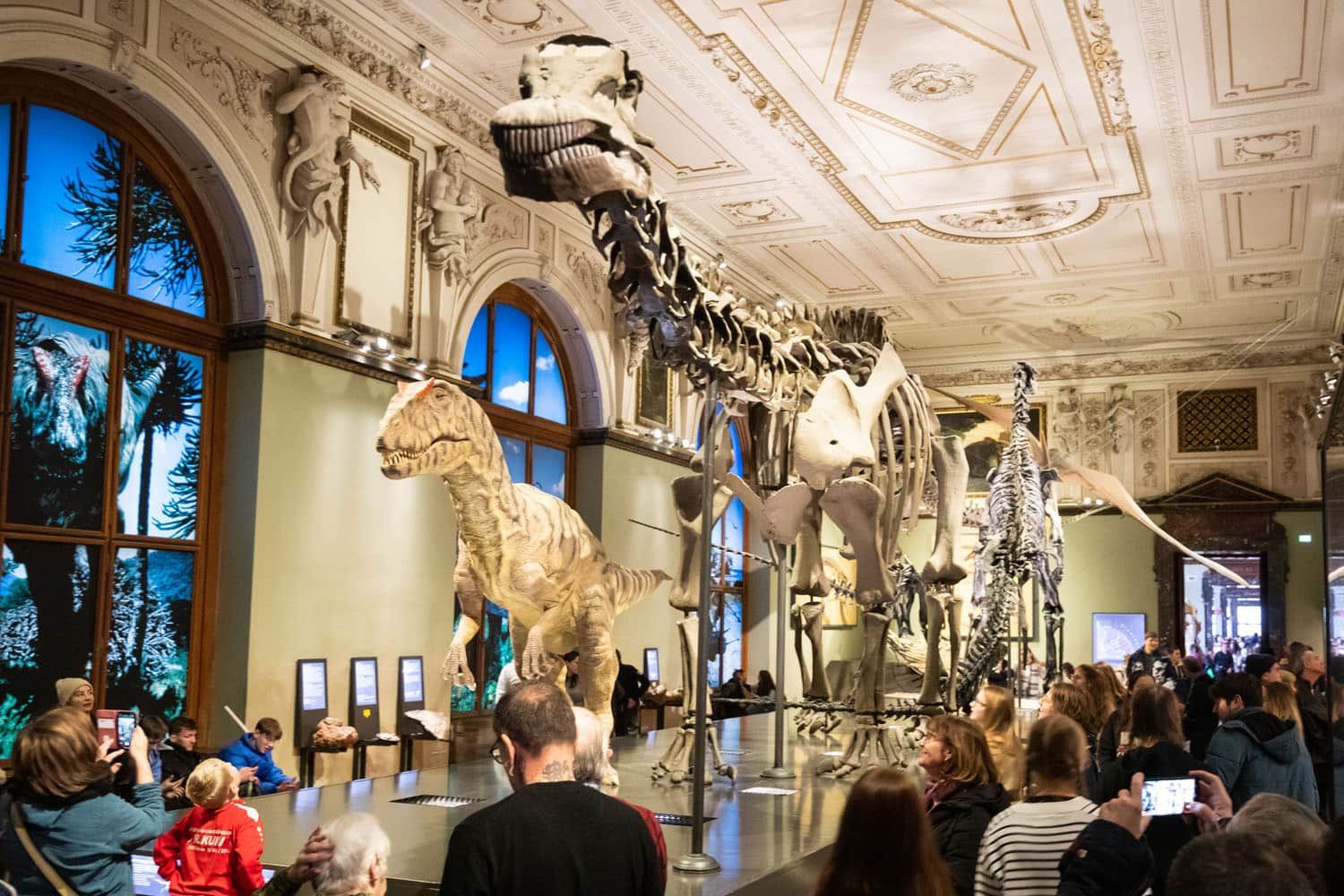
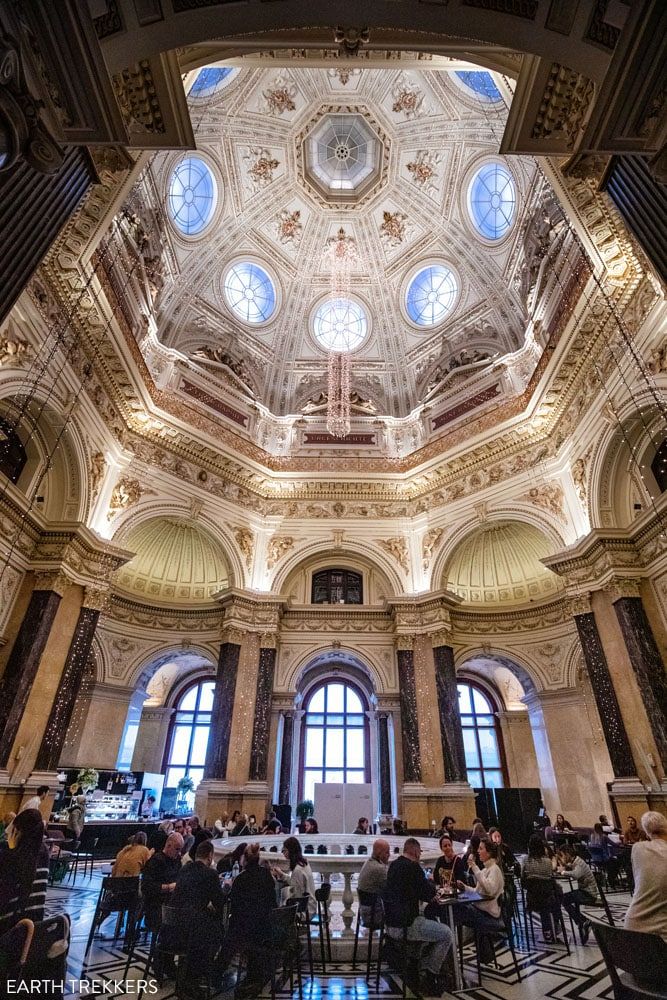
Natural History Museum Dome Hall
4. MuseumsQuartier
By now, you are learning that Vienna is packed with museums. In the MuseumsQuartier, or simply MQ, there are a few more to visit.
Sitting on one square is a collection of Baroque and Modern buildings.
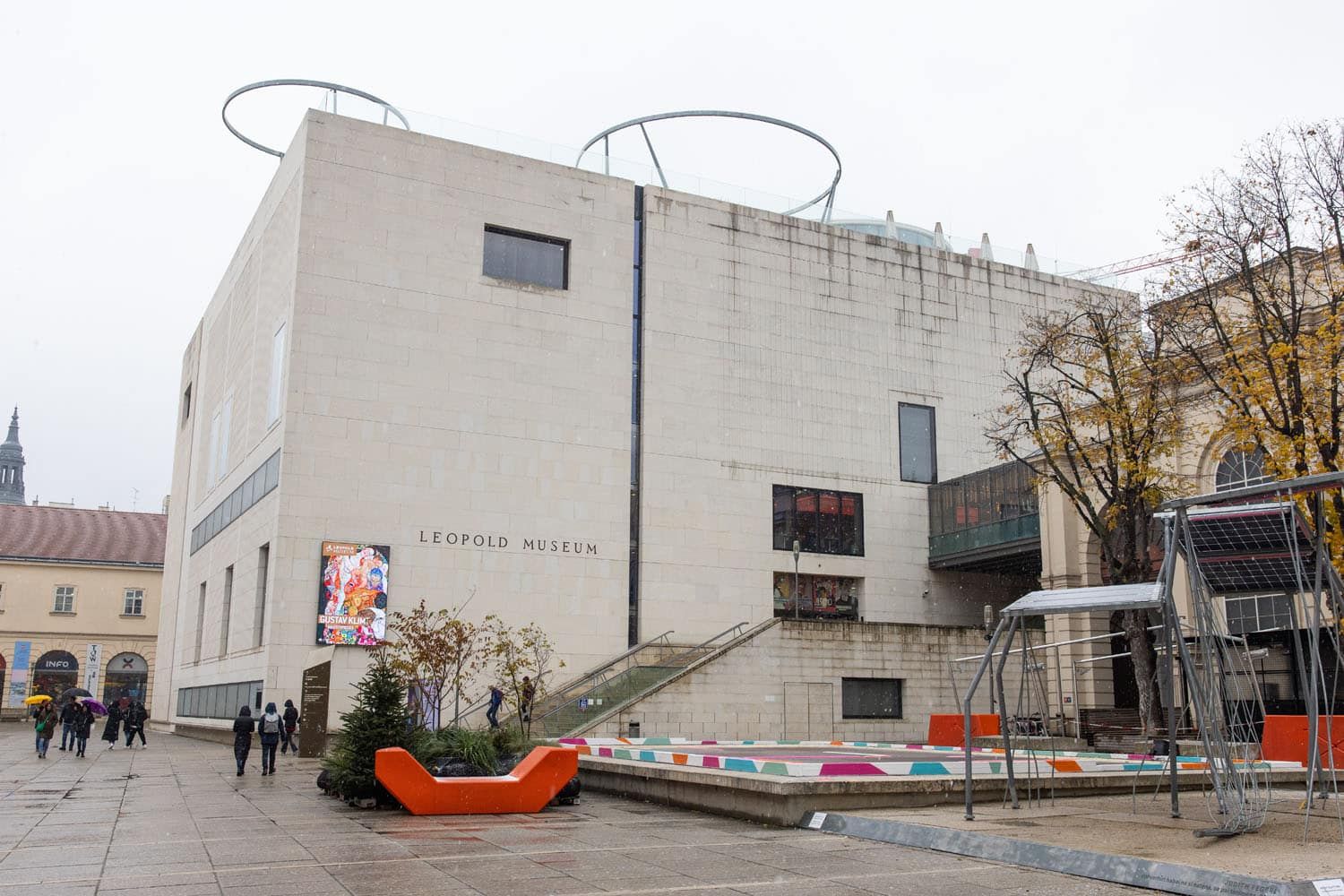
Leopold Museum
The Leopold Museum contains one of the largest collections of Austrian art, including works of art by Egon Schiele, Gustav Klimt, and Oskar Kokoschka. From the Libelle viewing platform, on top of the museum, you get a nice view of Vienna.
The MUMOK (Museum of Modern Art, Ludwig Foundation, Vienna) is a modern and contemporary art museum, with works of art by Picasso, Andy Warhol, and many more artists.
MuseumsQuartier is also home to the Tanzquartier, a center for dance, and Kunsthalle Wien, an exhibition space. This is also the location for the Viennale film festival and other festivals throughout the year.
Learn more about the MuseumsQuartier on the official website, including upcoming events and tour options.
5. Palace of Justice
This hidden gem is one of the best free things to do in Vienna.
The Palace of Justice (Justizplatz) is the Supreme Court of Vienna. It also has a very photogenic interior, so for those with an interest in photography and architecture, this is worth putting on your list.
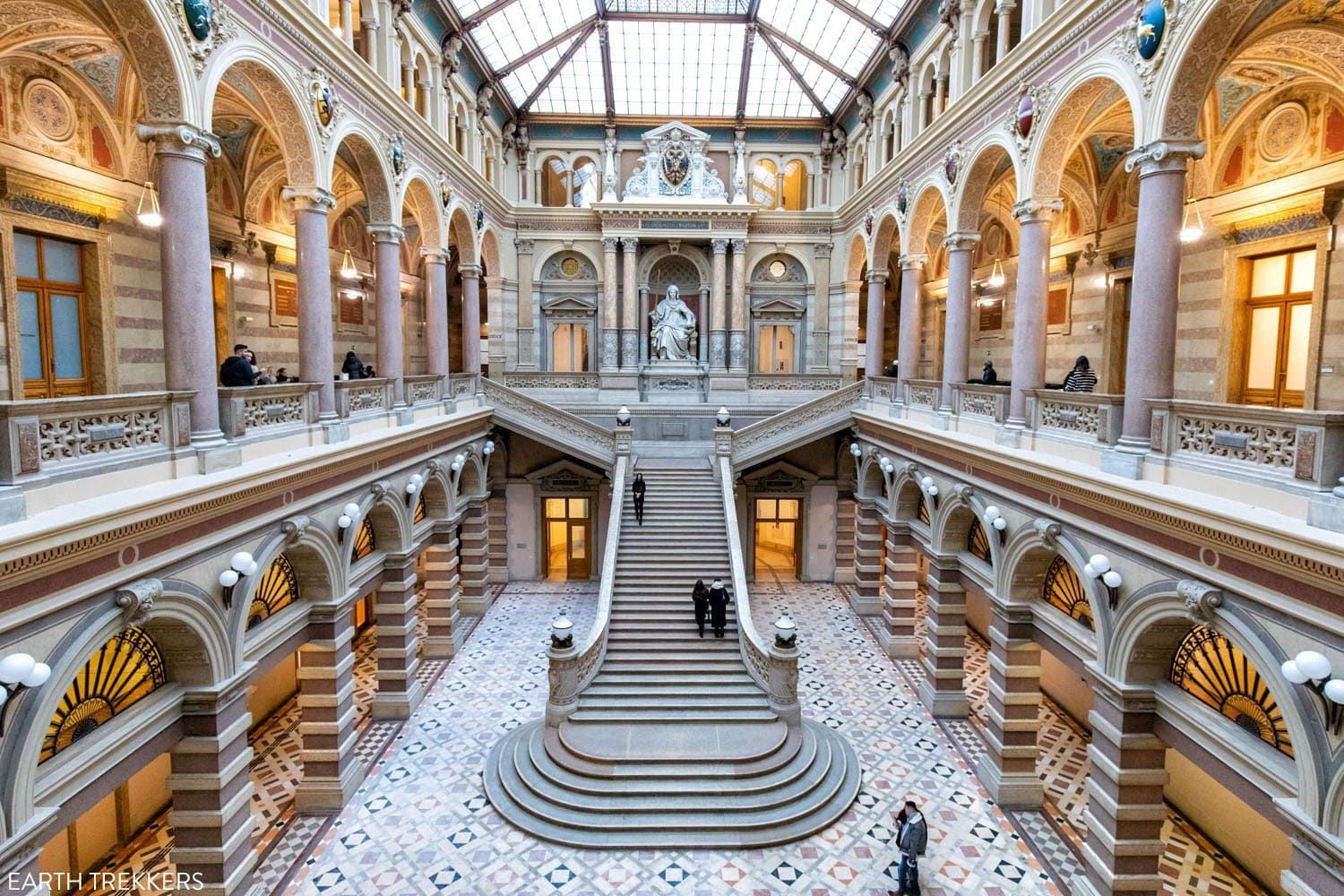
Palace of Justice
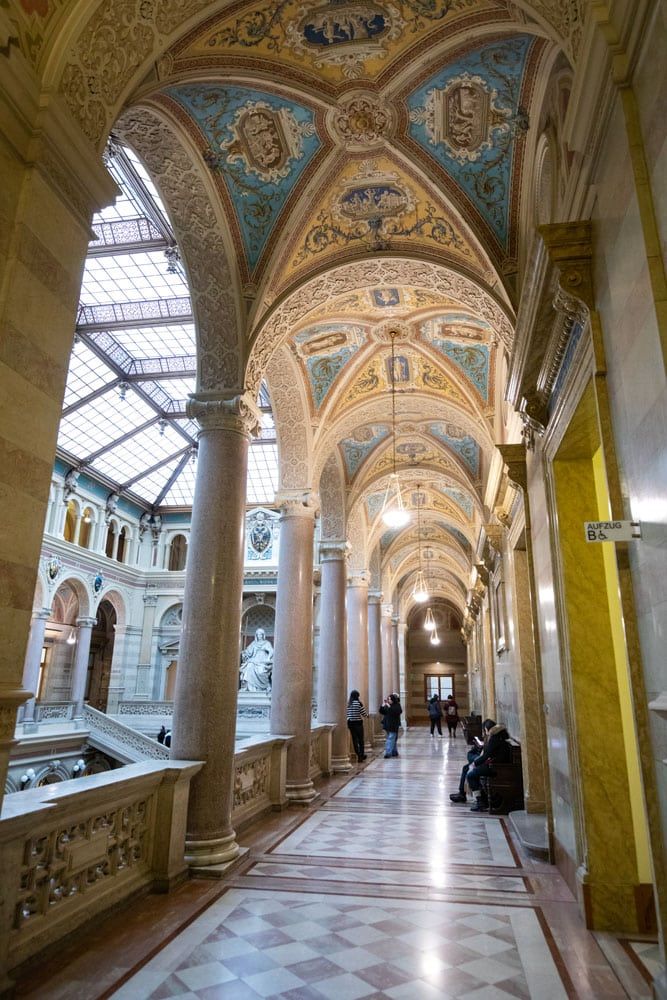
The palace is open to the public and no ticket or entrance fee is necessary. To enter, you will have to go through security and backpacks and large bags are not allowed. A visit here lasts about 15 minutes, to photograph the atrium. There is also a rooftop café with views of Vienna.
It is open Monday through Friday from 8 am to 3:30 pm.
6. Prater and Wiener Riesenrad
Prater is a park that sits just outside of the city center. Its centerpiece is the Wiener Riesenrad (the Vienna Giant Ferris Wheel), which was the world’s tallest Ferris wheel from 1920 until 1985.
From the highest point of the ride, you get a fantastic view of the Vienna city skyline. You can purchase a ticket online in advance or onsite. For an even more memorable experience, book a ticket for Platform 9, a compartment with a glass floor, or lunch or dinner in a Gourmet Wagon.
In Prater, you can also visit Madame Tussaud’s, ride a variety of other rides (Kara and I rode on the indoor roller coaster which is a lot of fun), and dine at the ROLLERCOASTERRESTAURANT (all food and drinks are served on conveyor belts, making this a great pick for families).
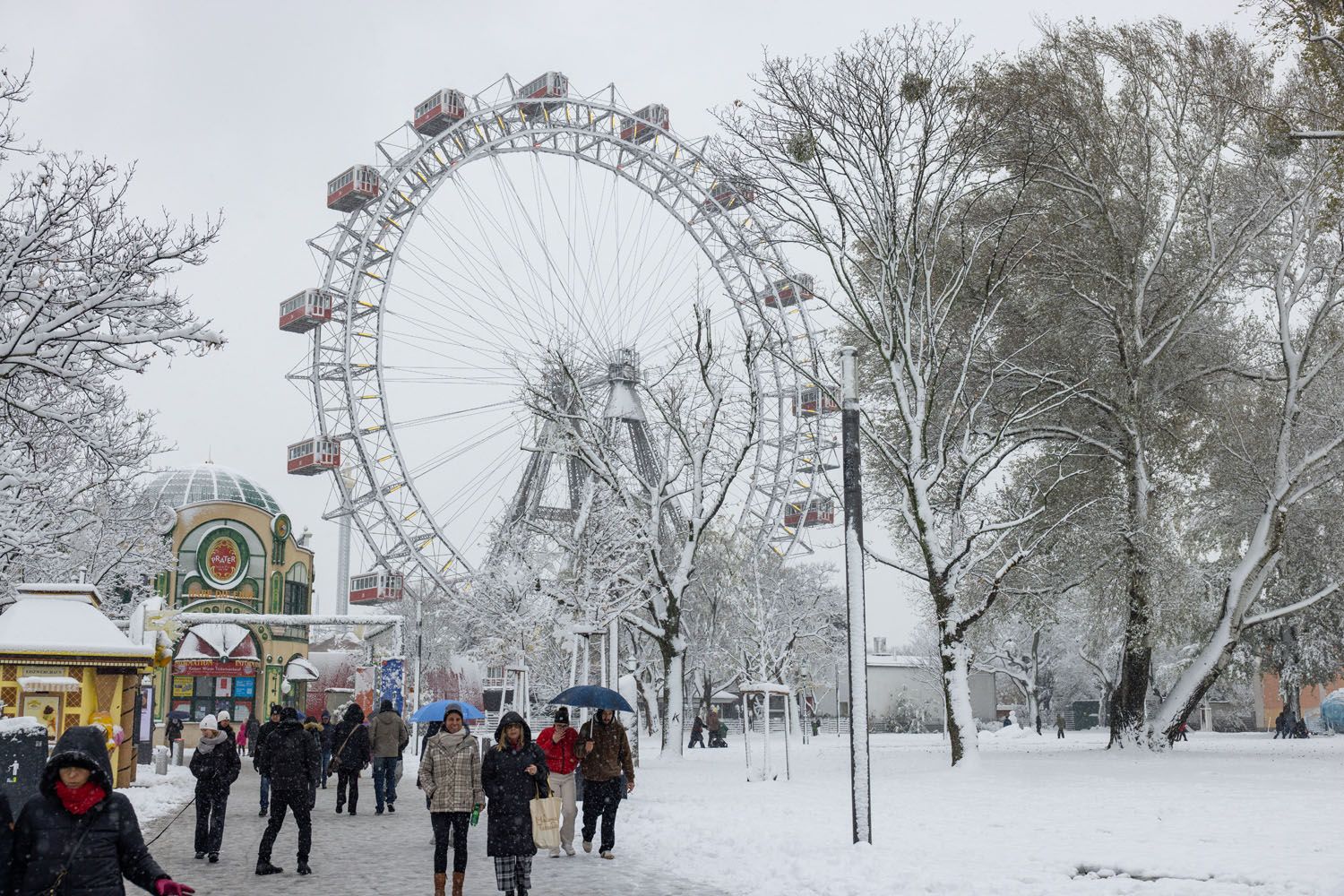
Prater and Wiener Riesenrad in December
7. Hundertwasserhaus
The Hundertwasserhaus is a unique architectural building in Vienna. Designed by Friedensreich Hundertwasser, this apartment house has a colorfully decorated façade, with trees and shrubs adorning the roof and terraces.
People live here, so you can only view the Hundertwasserhaus from the outside. It’s not worth going out of your way to see it, but if you are in the area, then it is worth a quick visit.
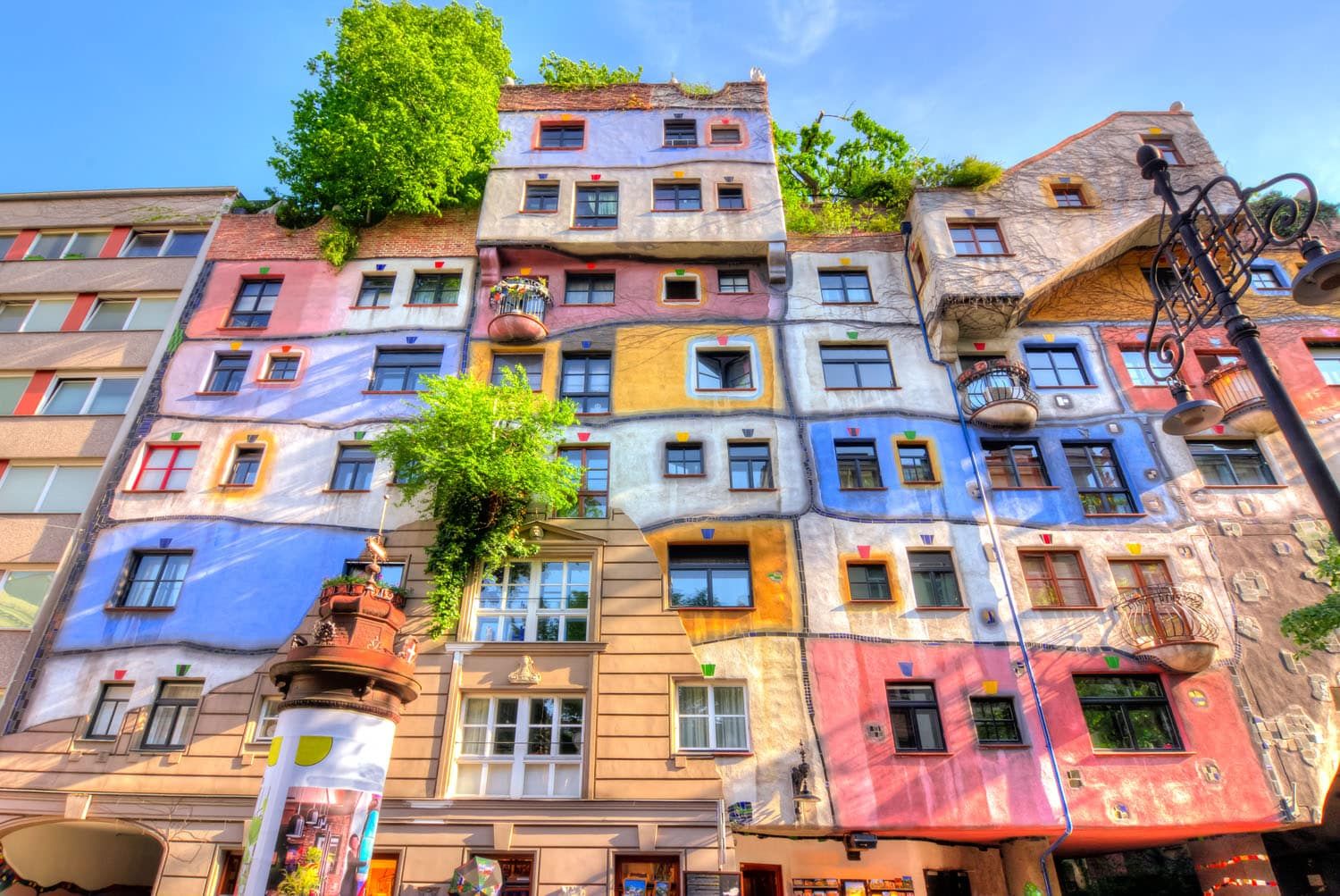
Hundertwasserhaus | mistervlad/shutterstock.com
8. Vienna City Hall
Vienna’s Rathaus (City Hall), is a Neo-Gothic building, one of the most beautiful buildings in Vienna. It sits on Rathausplatz and is the seat of the local government. In December, Rathausplatz is home to one of Vienna’s biggest and best Christmas markets.
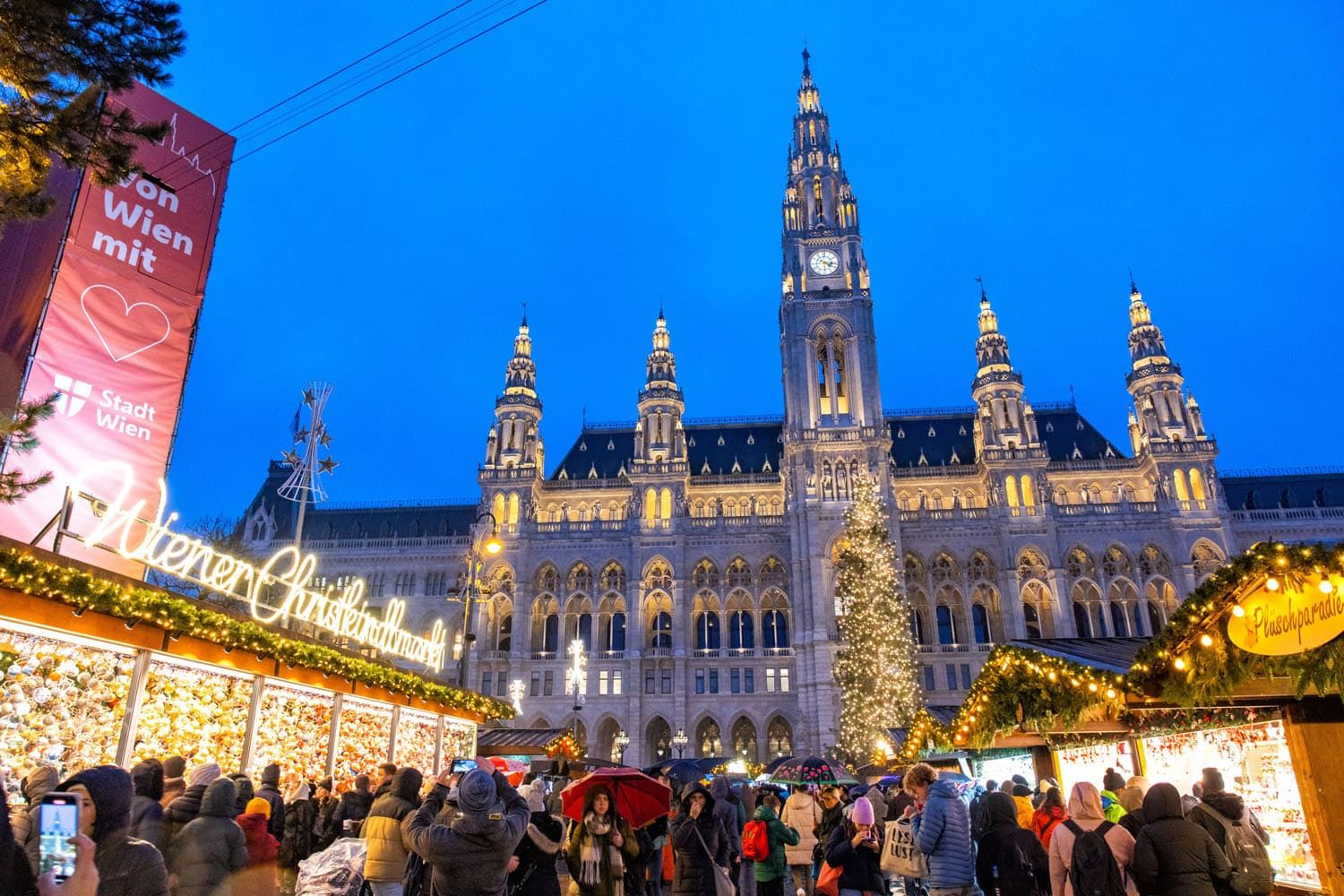
The Rathaus and a Christmas market
9. Ringstrasse
The Ringstrasse (Vienna Ring Road) is a wide boulevard the loops around the outside of the Innere Stadt (Inner Town or historic city center) of Vienna. This road sits where the medieval fortifications once stood. Now, instead of walls and ramparts, cars and trams cruise through Vienna.
Famous buildings that sit on Ringstrasse include the Vienna State Opera, Rathaus, Votivkirche, the Palace of Justice, Burgtheater, and the Austrian Parliament Building.
Taking an evening tram ride on the Ringstrasse is a cheap and easy way to see these buildings illuminated.
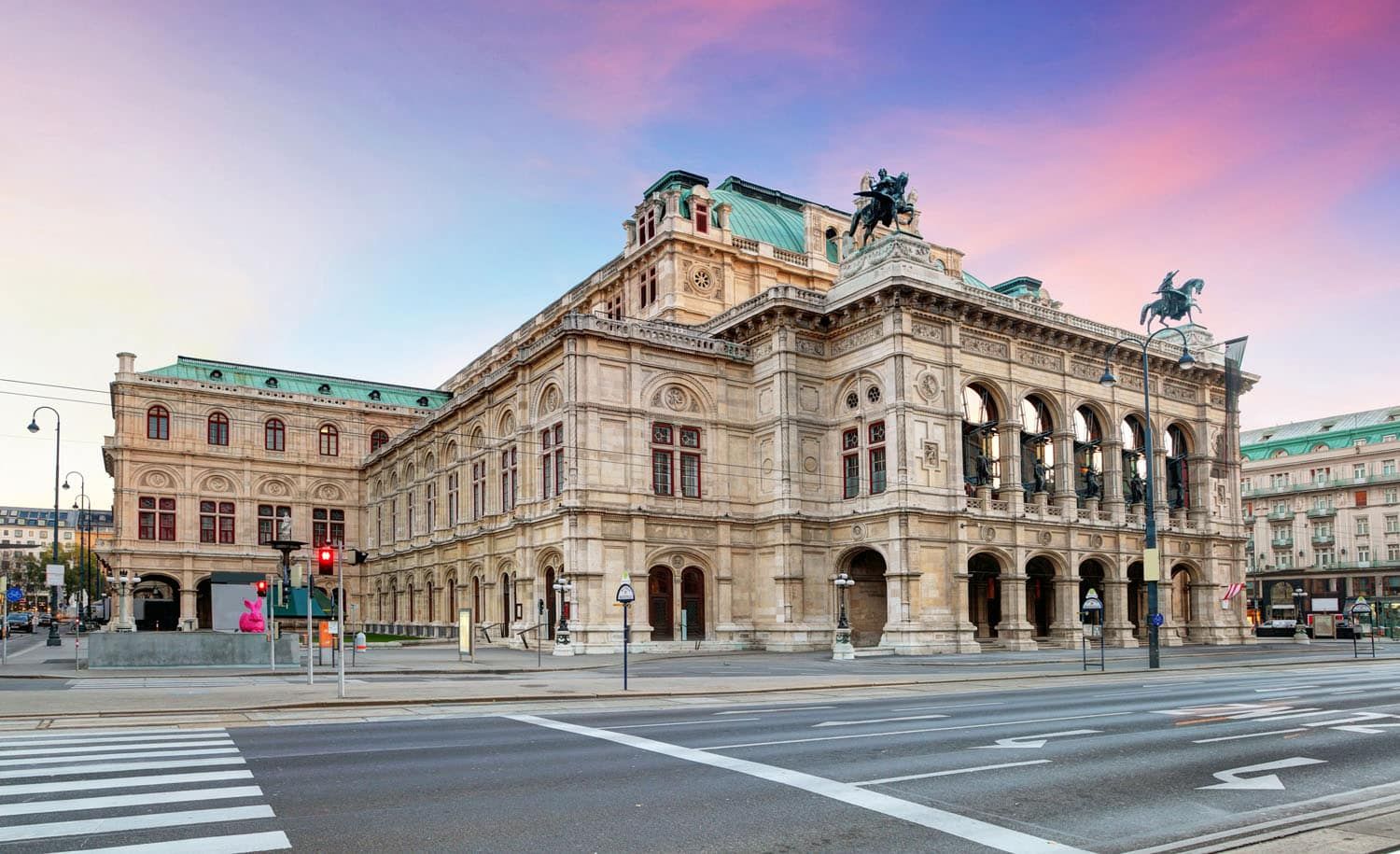
Vienna Opera House | TTstudio/shutterstock.com
10. Attend a Concert
With Vienna’s long, rich musical history, attending a concert, opera, or musical performance is one of the best things to do in Vienna. You can attend an opera at the Vienna State Opera, a theater performance at the Burgtheater, or a classical musical concert at one of many venues throughout Vienna.
At St. Peter’s Church, attend a classic ensemble, featuring music by Vivaldi, Beethoven, and Schubert.
In Karlskirche (St. Charles Church), listen to the Four Seasons by Vivaldi.
At the Orangerie in Schönbrunn Palace, attend a Mozart and Strauss Concert.
Listen to the Viennese String Ensemble perform music by Beethoven, Mozart, Haydn, or Schubert in St. Anne’s Church.
11. Votivkirche
This breathtaking Neo-Gothic church was constructed to thank God for saving Emperor Franz Joseph from a failed assassination attempt. It was completed in 1879 and sits on the Ringstrasse and is sometimes mistaken for St. Stephen’s Church, since they have a similar appearance.
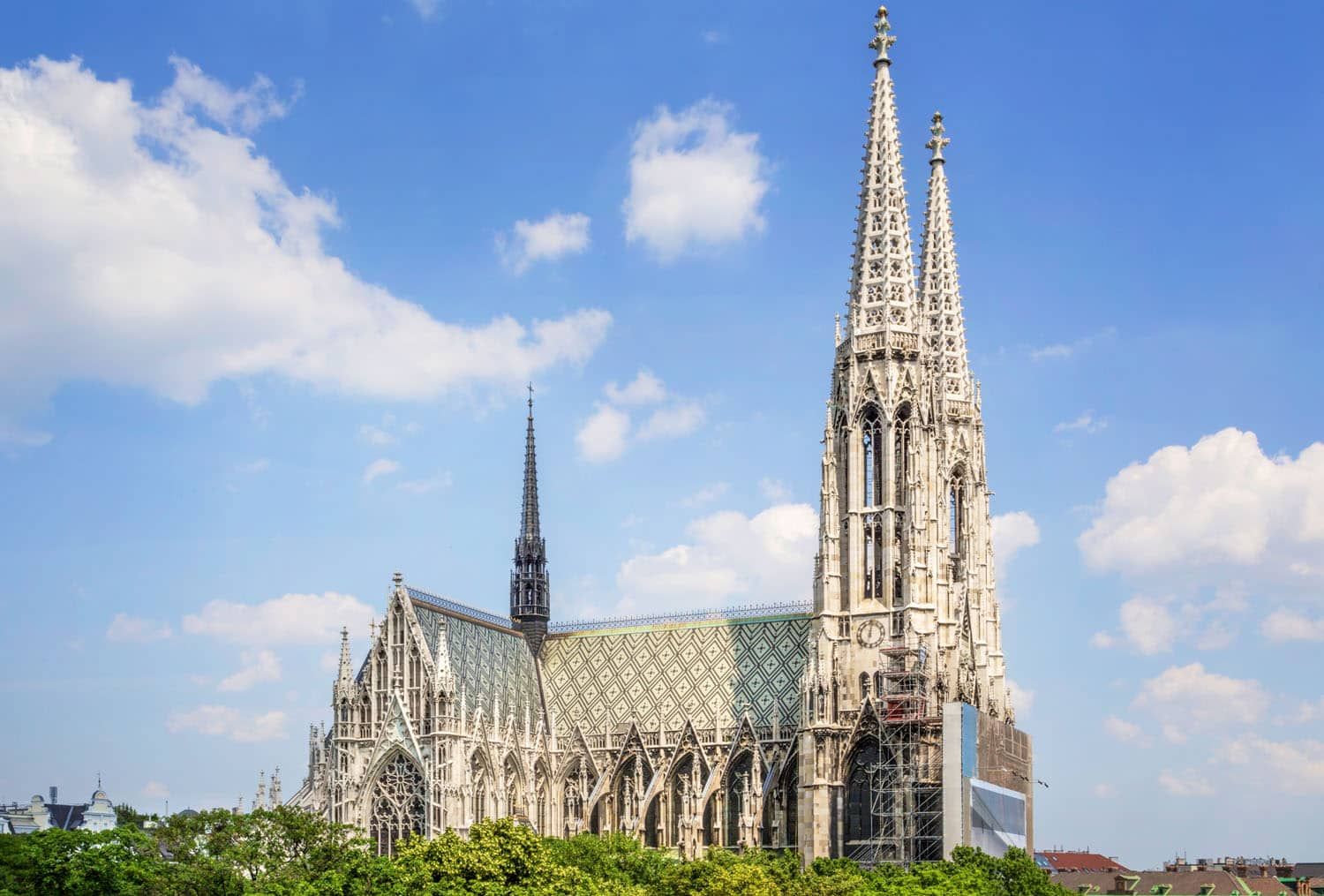
Votivkirche | mRGB/shutterstock.com
12. Jesuit Church
This church is getting a mention because the interior is magnificent. The ceiling is painted with a fresco that gives it the appearance that is has a massive dome. It is very well done and creates quite the illusion.
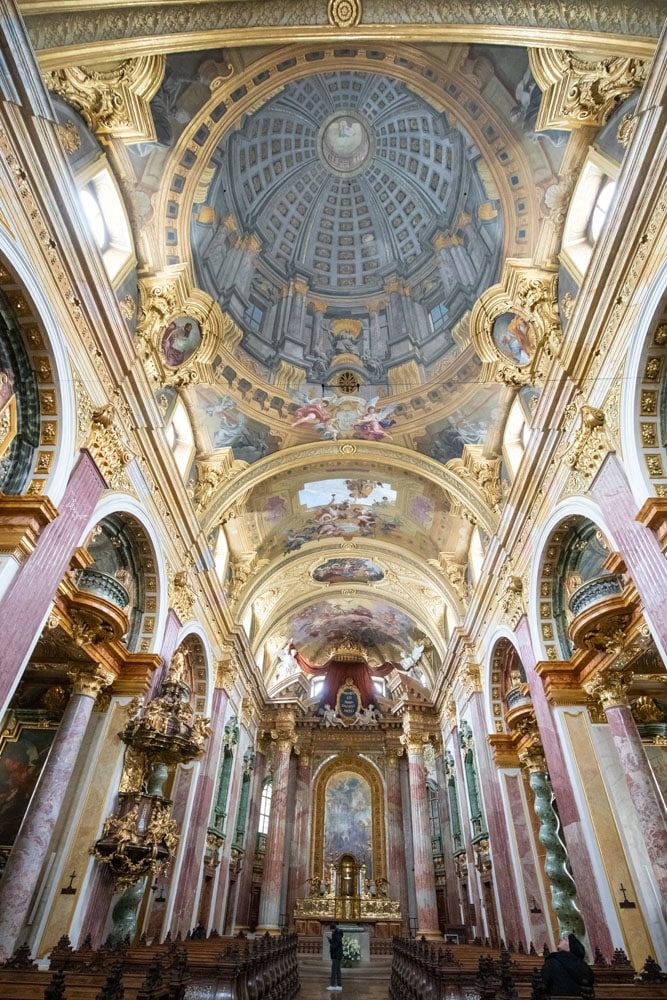
It is free and quick to visit. It’s worthwhile for those with several days in Vienna, but I don’t think it is worth going out of your way to see it. The Jesuit Church is located in the city center, a 5 to 10-minute walk from the heart of the city.
13. St. Charles Church
St. Charles Church (Karlskirche) is a beautiful Baroque church just outside of the Ringstrasse. It was built to give thanks for the end of the plague epidemic. It is dedicated to Saint Borromeo, who cared for plague victims.
One of the highlights of a visit here is climbing the 120 steps to the roof where you can look across the Vienna skyline. You can also attend a classical music concert in the church.
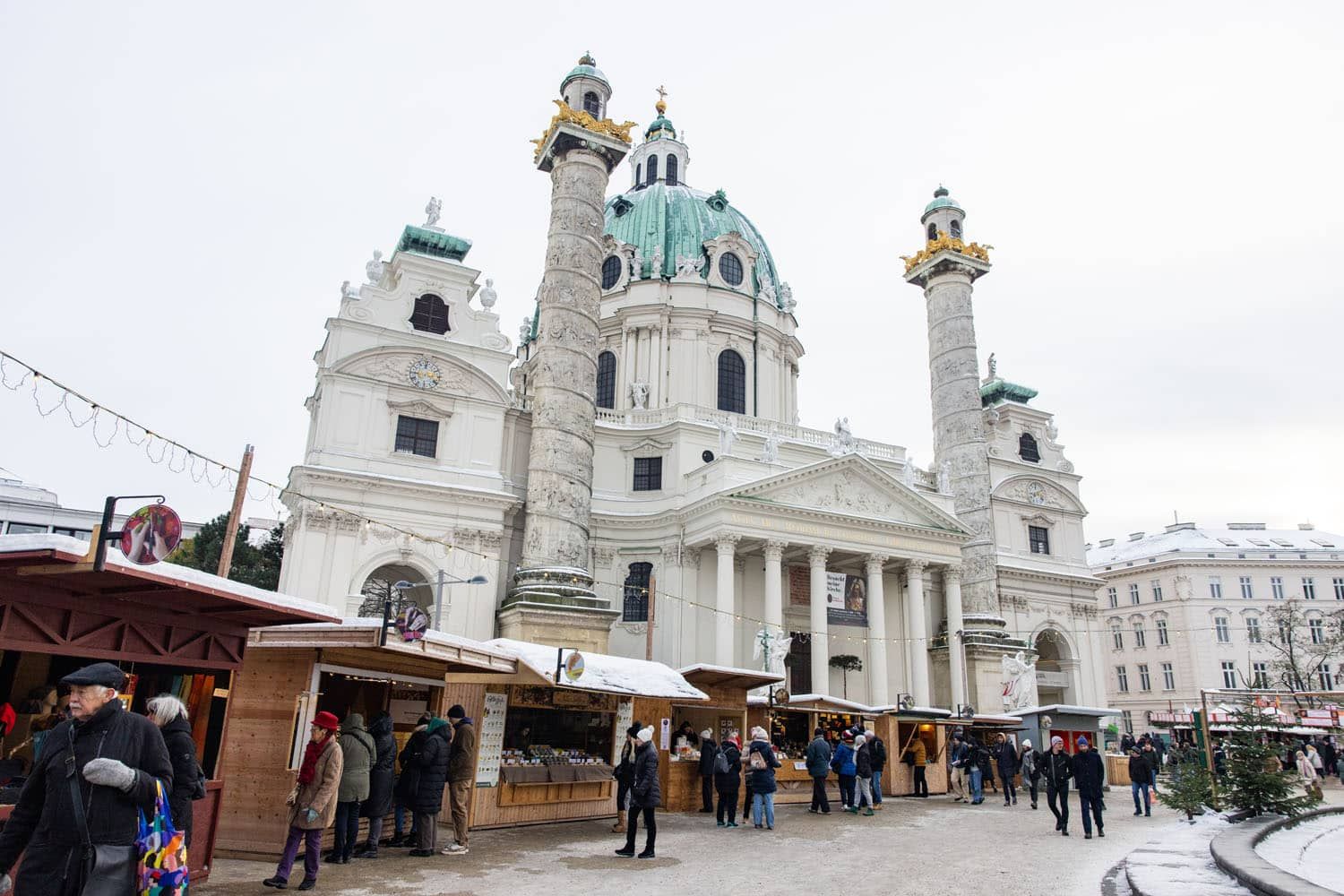
St. Charles Church (in December with a Vienna Christmas market)
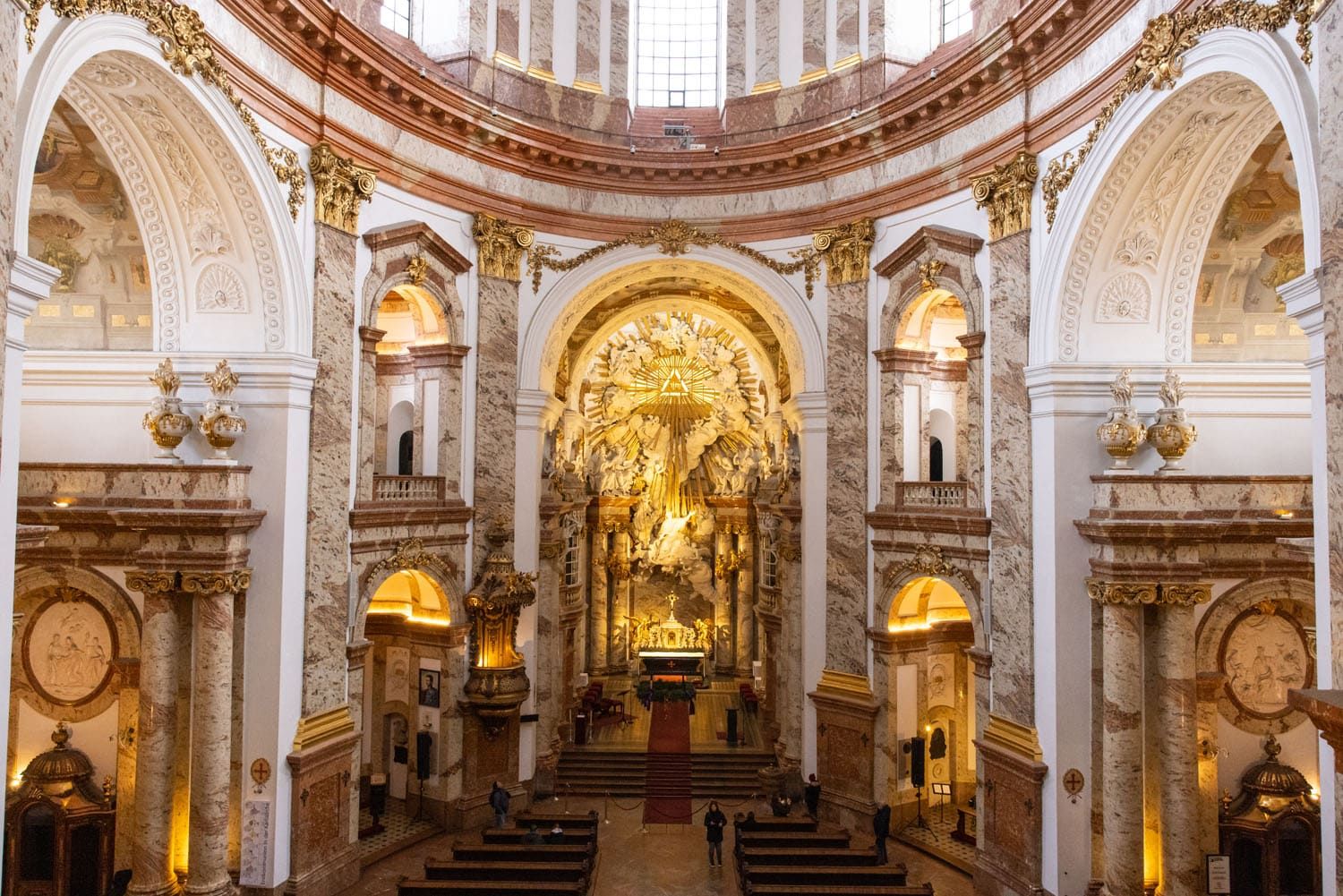
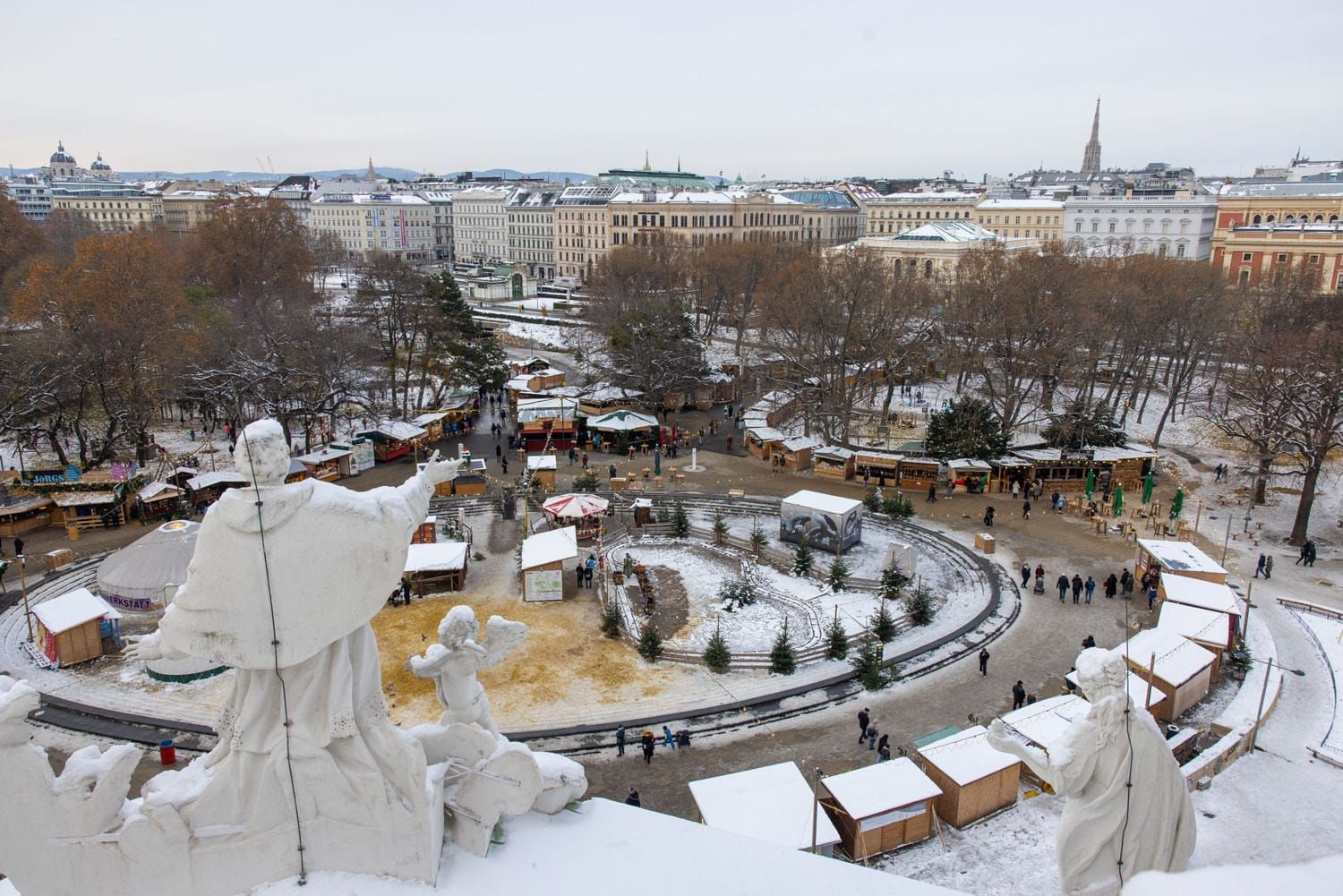
The view from roof of St. Charles Church
14. Ferstel Passage
This is another hidden gem in Vienna. Located inside of Palais Ferstel, this long covered hallway (also called the Freyung Passage) is lined with boutique shops and cafes, making it the perfect place to go shopping if the weather is bad. It is located just around the corner from Café Central.
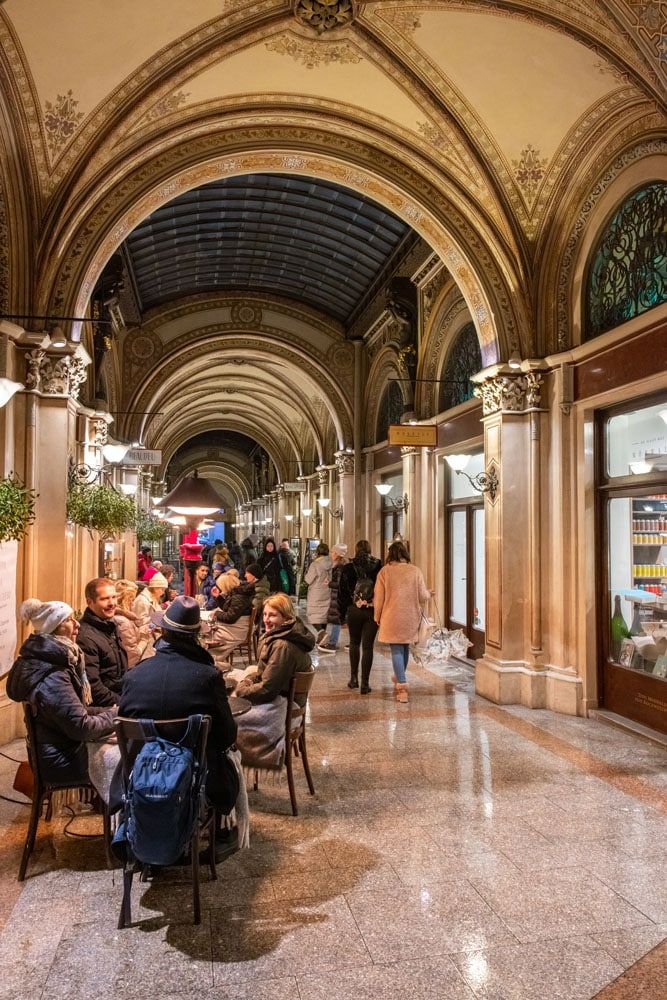
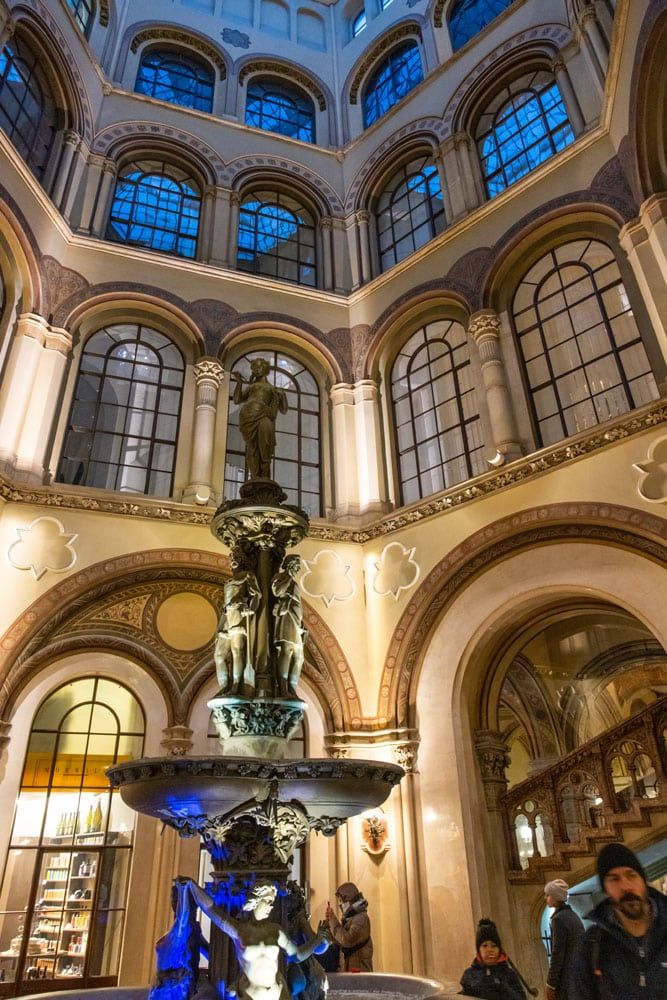
Ferstel Passage
15. Dine at a Wurstelstand
Würstelstands are street food stands that sell hot dogs and sausages. They date back to the time of the Austro-Hungarian Empire, when they were initially movable stands selling sausages in the city.
These make a great snack when exploring the sites in the historic area. Sausages are served sliced or on bread. You can top them with cabbage, peppers, pickles, horseradish, mustard, and ketchup.
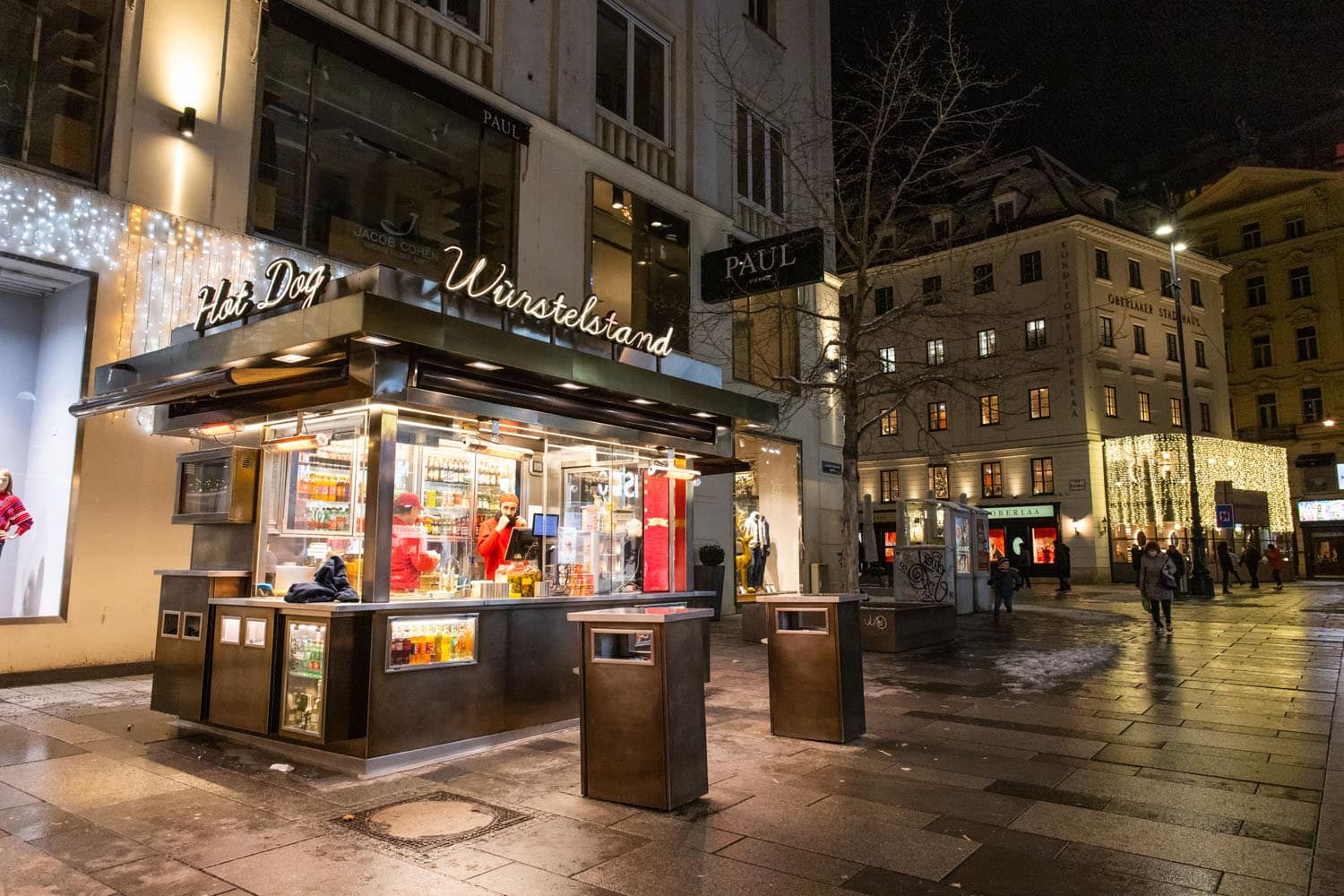
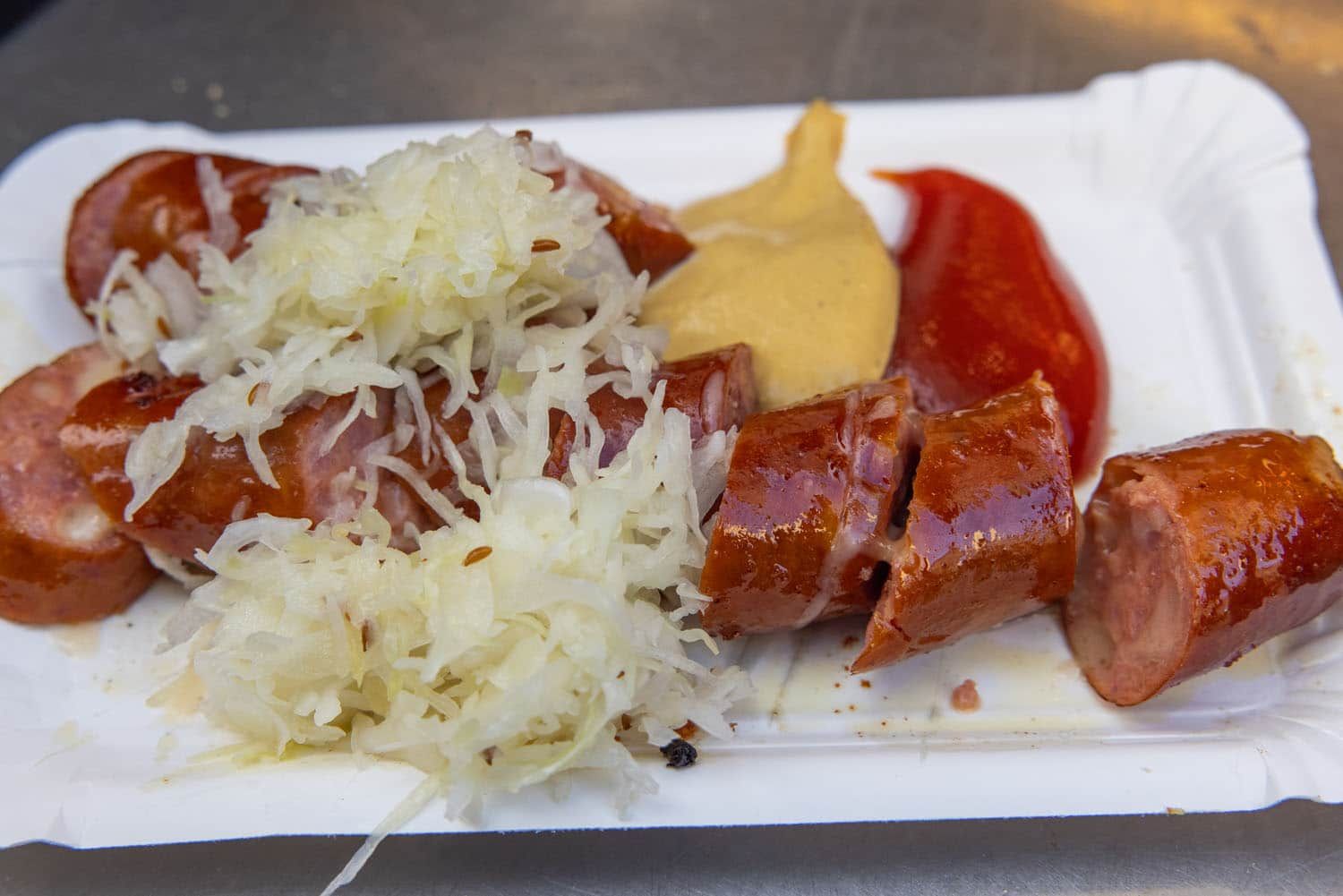
Vienna Bucket List: On a Map
How to Use This Map: Click the icons on the map to get more information about each point of interest. To take this map with you, click the star next to the title of the map which adds it to your Google account. Next, within your Google Maps app, select ‘Saved’ and then select ‘Maps’. This map title will now appear in your list.
Best Free Things to Do
Here are 8 great things to do in Vienna without spending a dime.
- See the inside of St. Stephen’s Cathedral
- Stroll along the pedestrian streets in the city center
- Visit the Palace of Justice
- Stroll through the gardens at Schönbrunn Palace
- Ferstel Passage
- Visit the Jesuit Church
- See the Hundertwasserhaus
- Photograph the exterior of the Votivkirche
Best Things to Do in Vienna with Kids
If you are visiting Vienna as a family, here are 8 great things to do with kids.
- Visit Prater, ride the Ferris Wheel, and dine at the ROLLERCOASTERRESTAURANT
- Visit the Spanish Riding School
- Get a snack at a Wurstelstand
- Visit the Natural History Museum
- Have a slice of Sacher Torte
- Visit Schönbrunn Palace
- Climb one or both towers of St. Stephen’s Cathedral
- Have breakfast at a Viennese Café
Frequently Asked Questions
What should you not miss in Vienna?
The top places to visit in Vienna include St. Stephen’s Cathedral, the Hofburg Palace, the Kunsthistorisches Museum, the Vienna State Opera, a stroll along Graben. Also not to be missed is breakfast or brunch at a Viennese café and a slice of Sacher Torte.
How many days do you need in Vienna?
With two very busy days, you can see the top sights in Vienna. Three days gives more time to visit hidden gems or day trip from Vienna to nearby places such as Salzburg, Hallstatt, and Bratislava.
When is the best time to visit Vienna?
Vienna makes a great destination all year. Spring and summer are the shoulder seasons, when the weather is pleasant and crowds are manageable. Summer is the warmest and busiest time to visit Vienna, so make your hotel and attrction reservations in advance. In winter, Vienna gets quite cold and snow is possible. This is the cheapest, least crowded time to visit Vienna. In December, Vienna is home to some of the best Christmas markets in Europe.
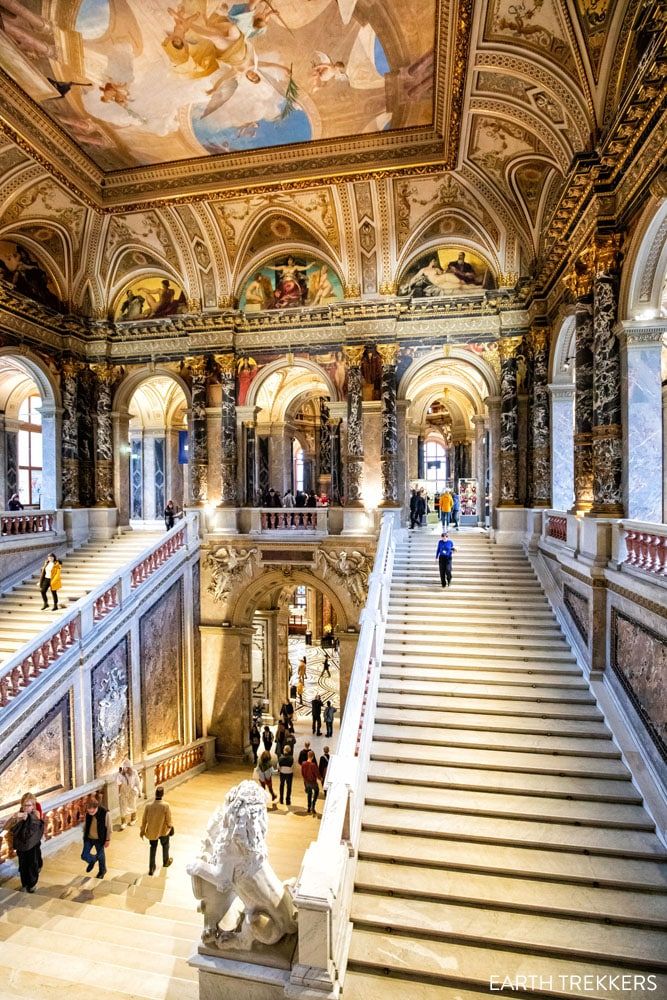
One more view of the grand staircase in the Kunsthistorisches Museum
If you have any questions about the best things to do in Vienna, let us know in the comment section below.
More Information for Your Trip to Austria
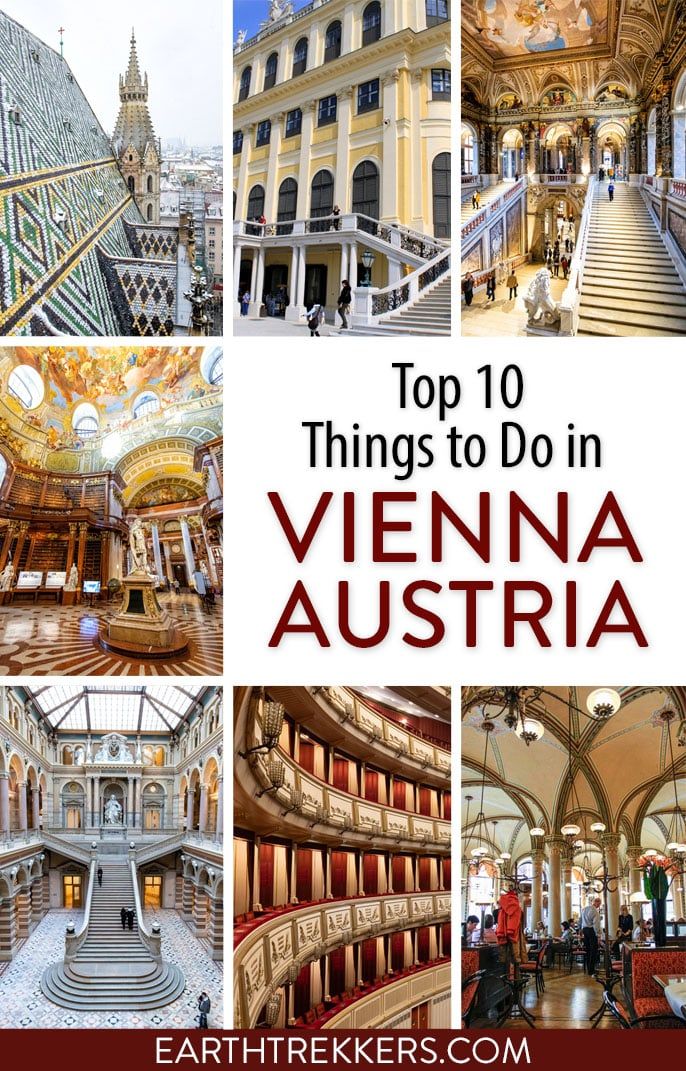
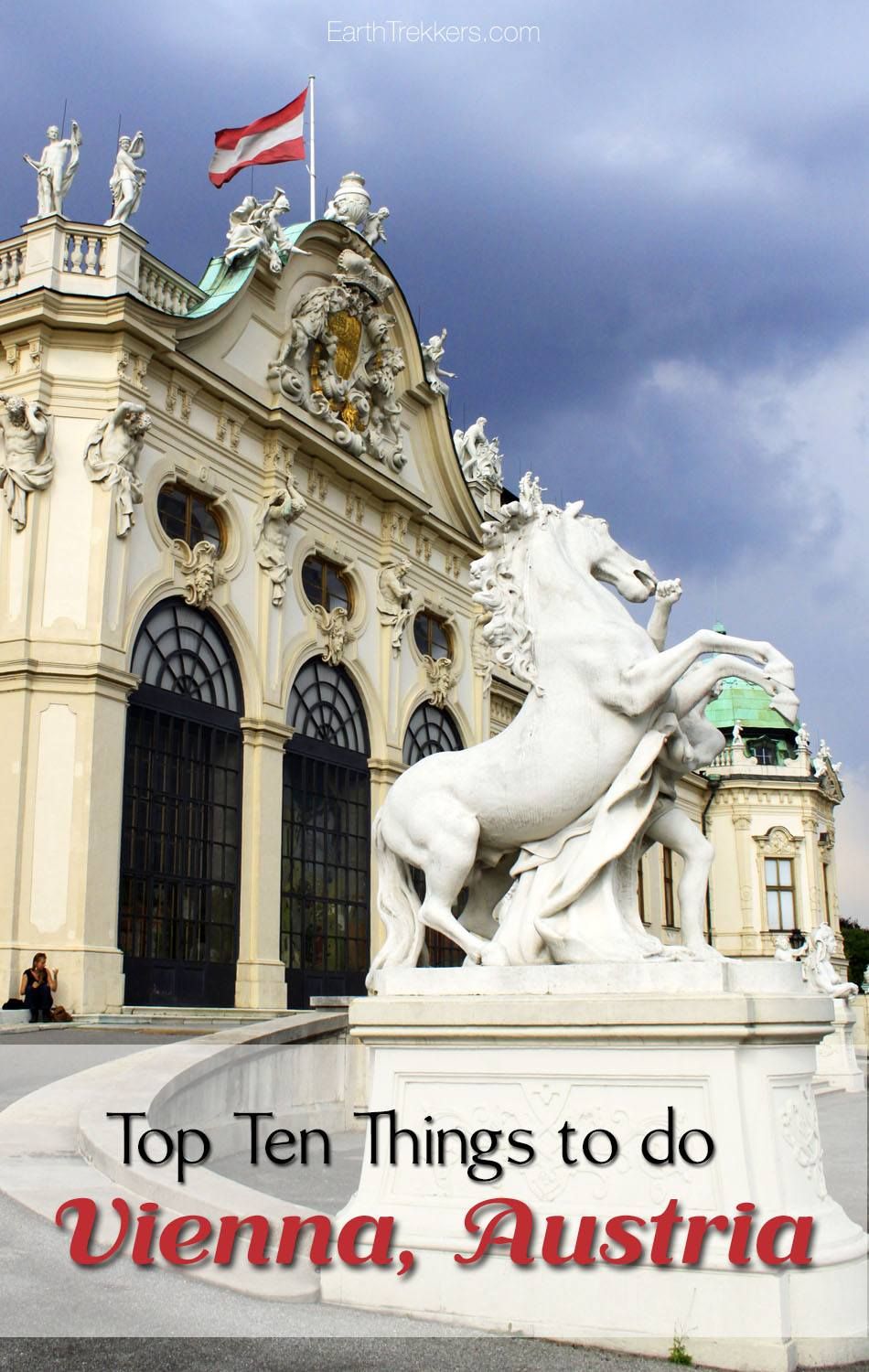
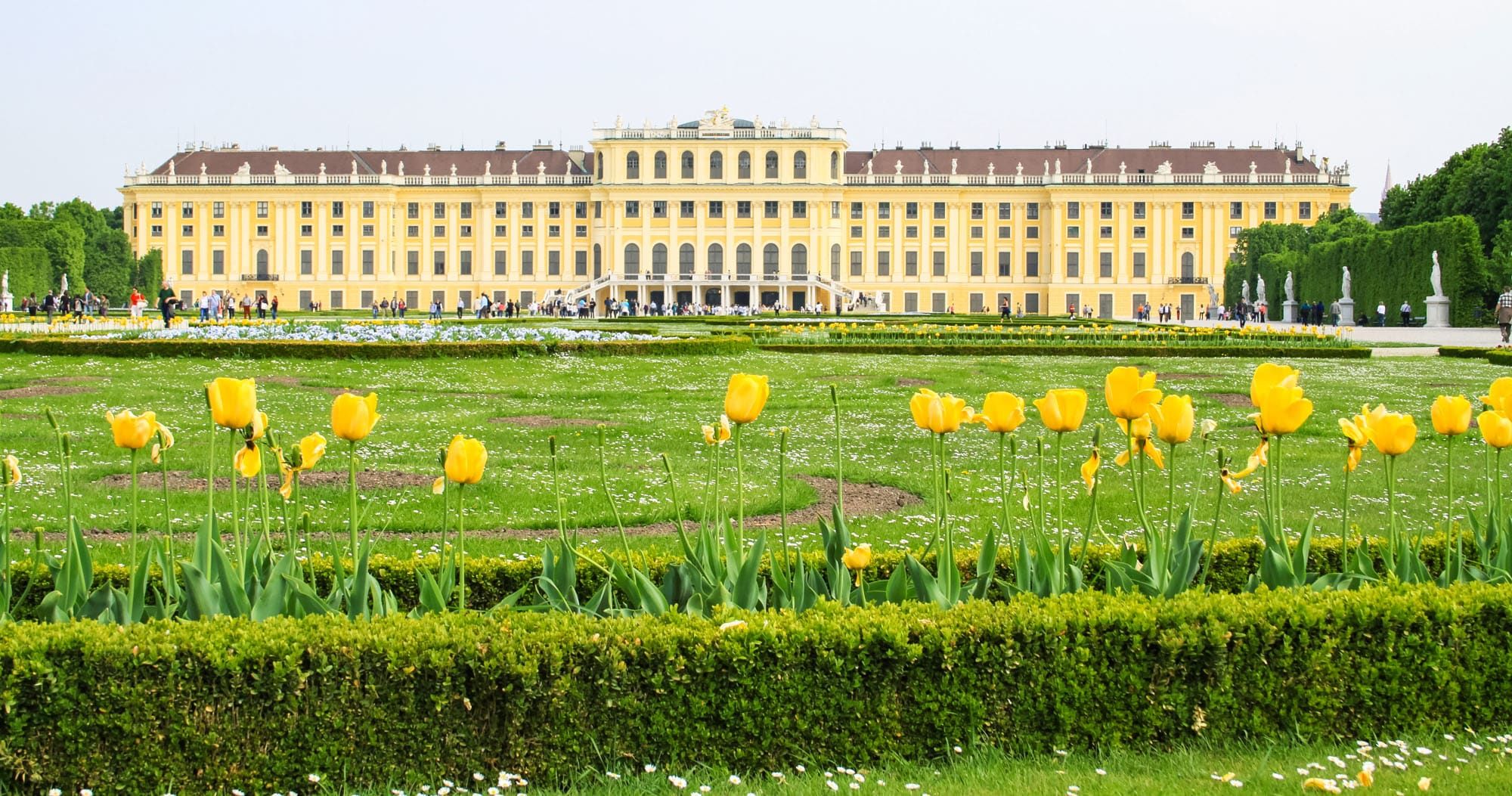
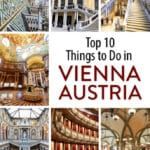
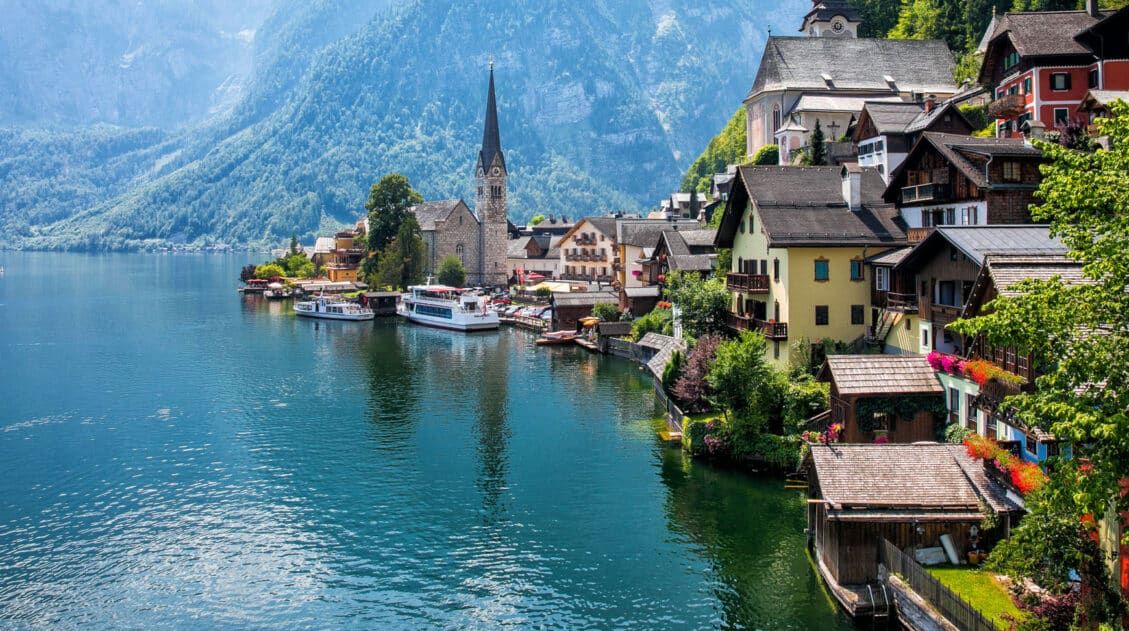
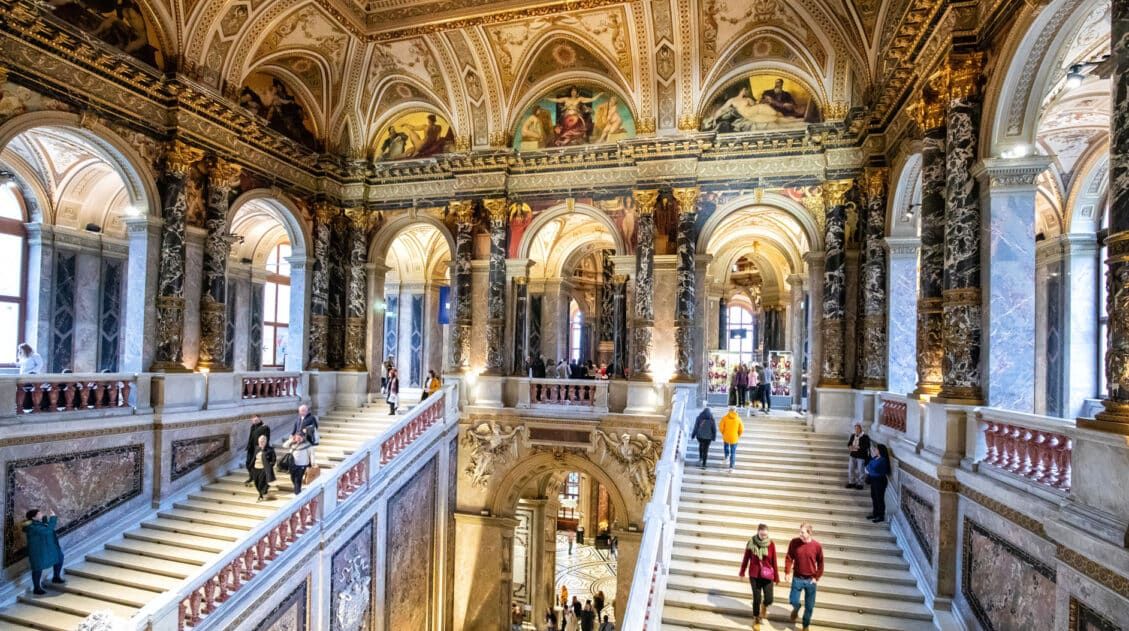
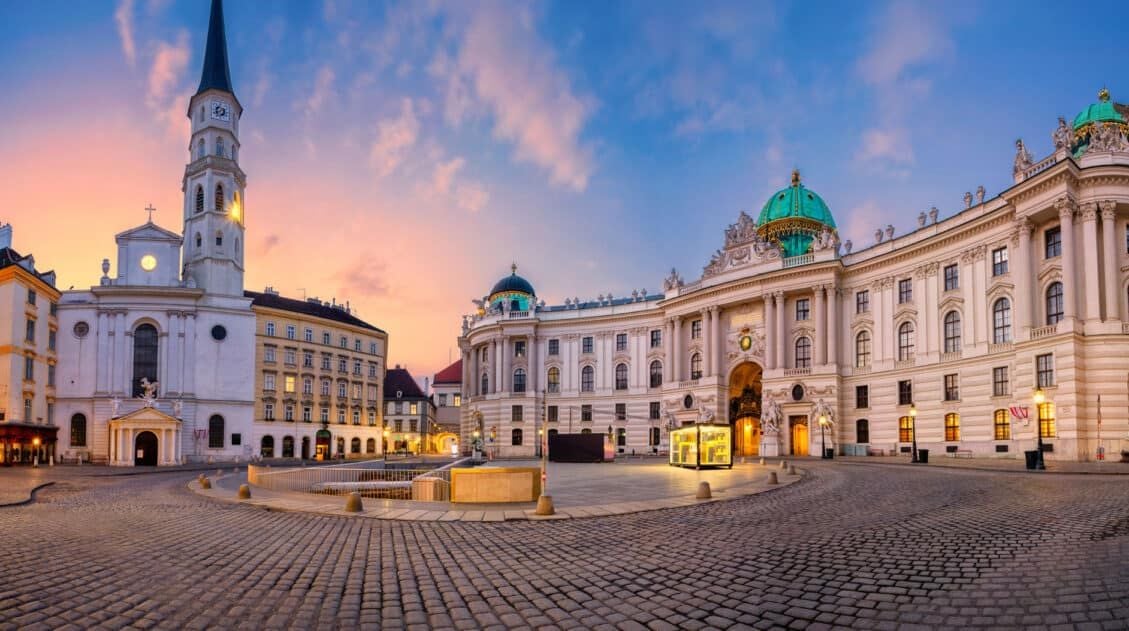
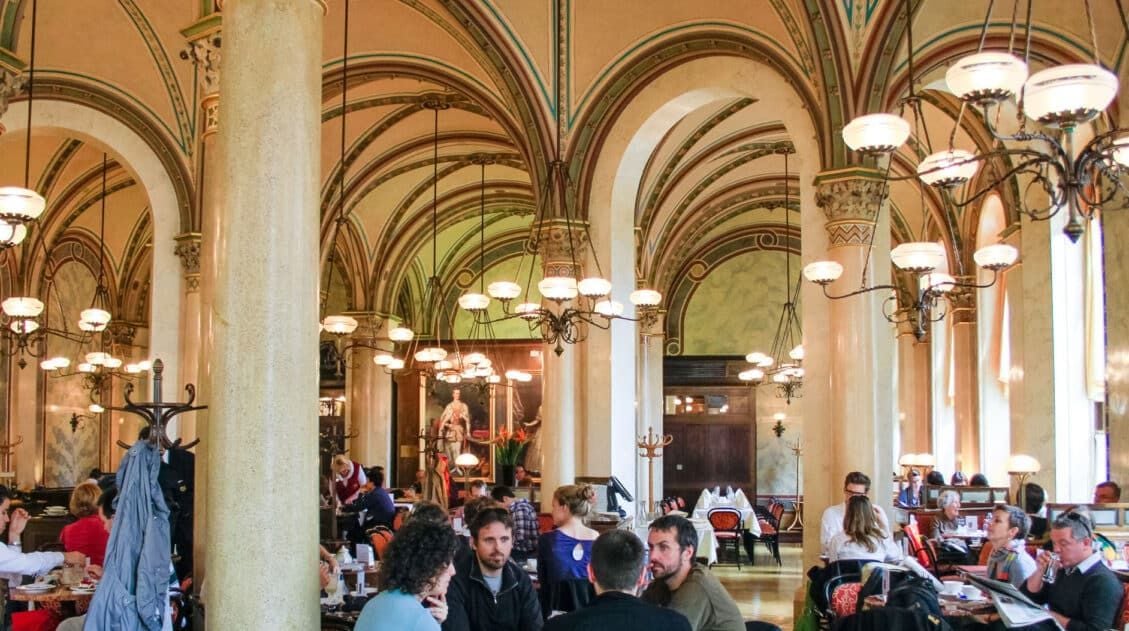
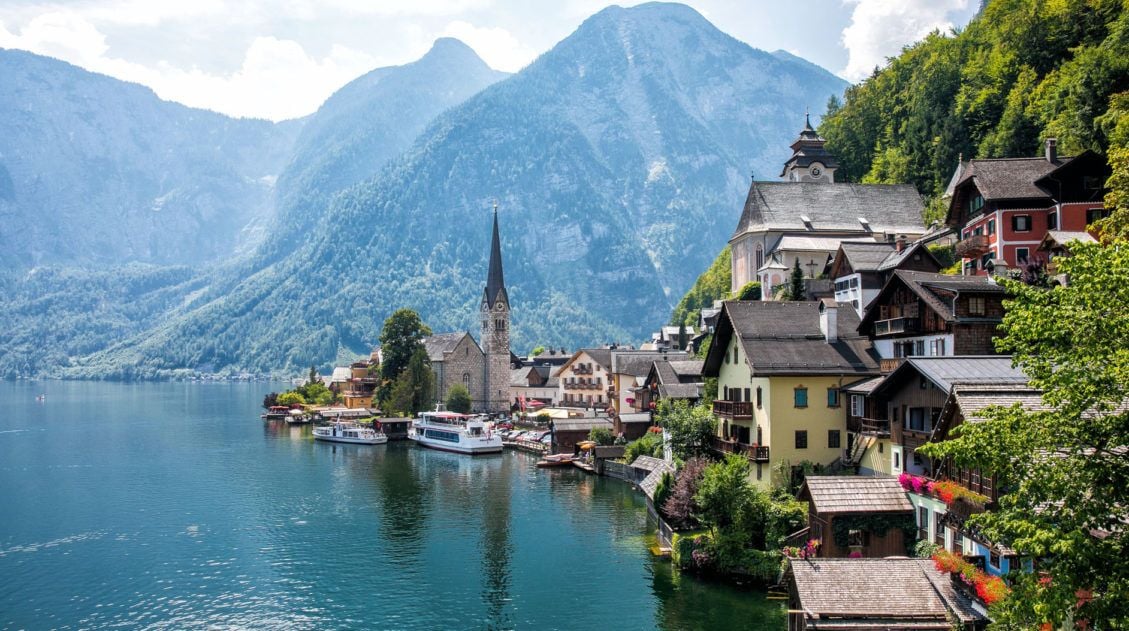
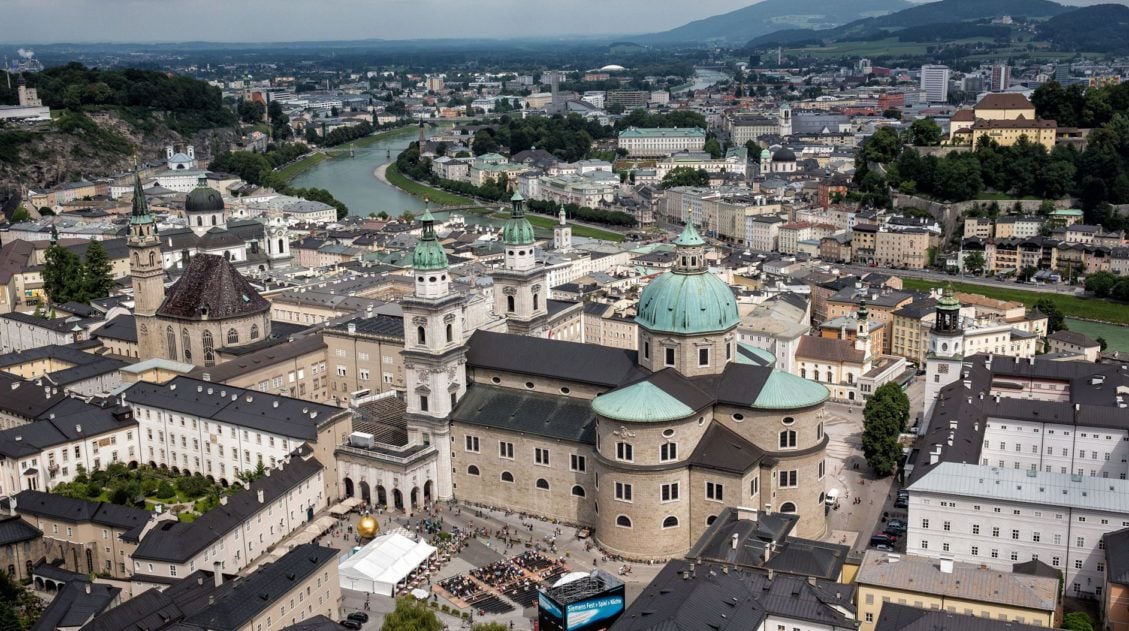
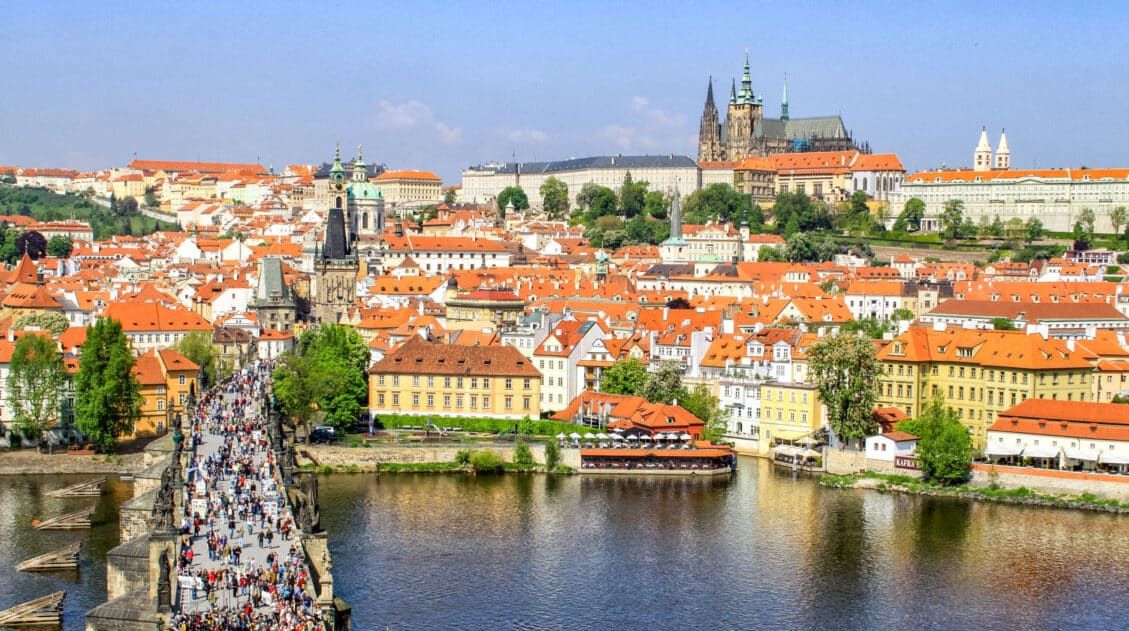
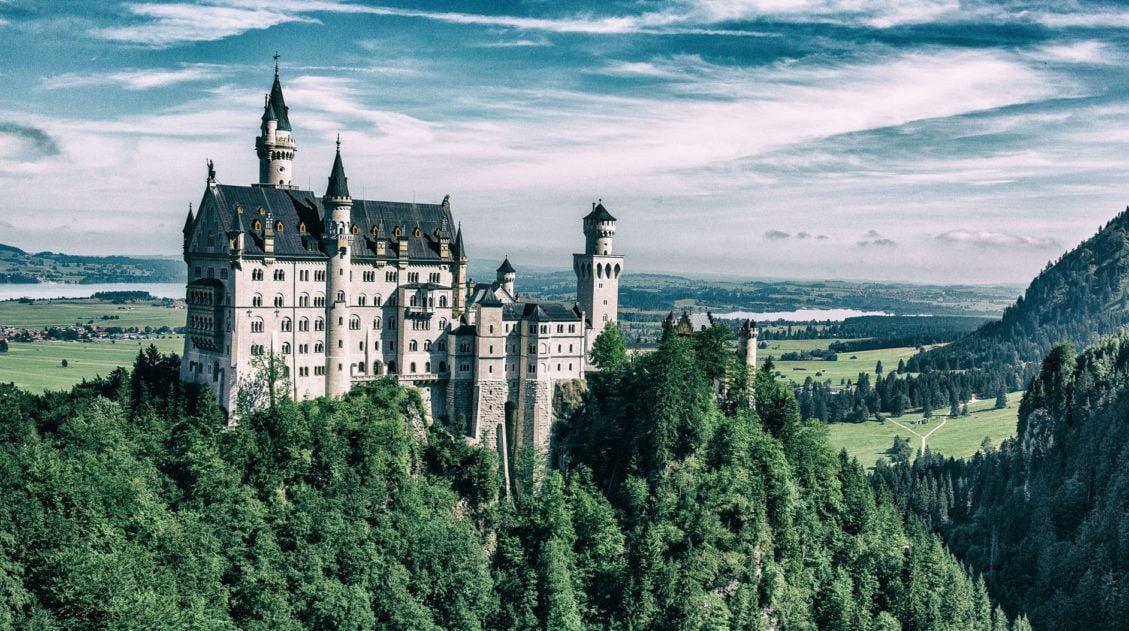
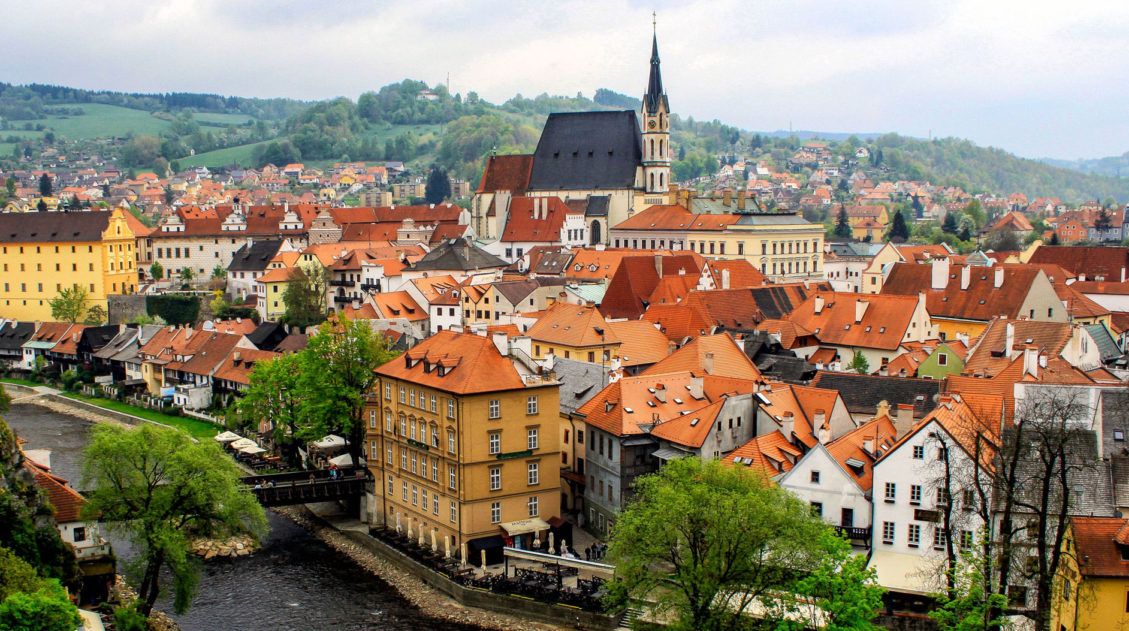
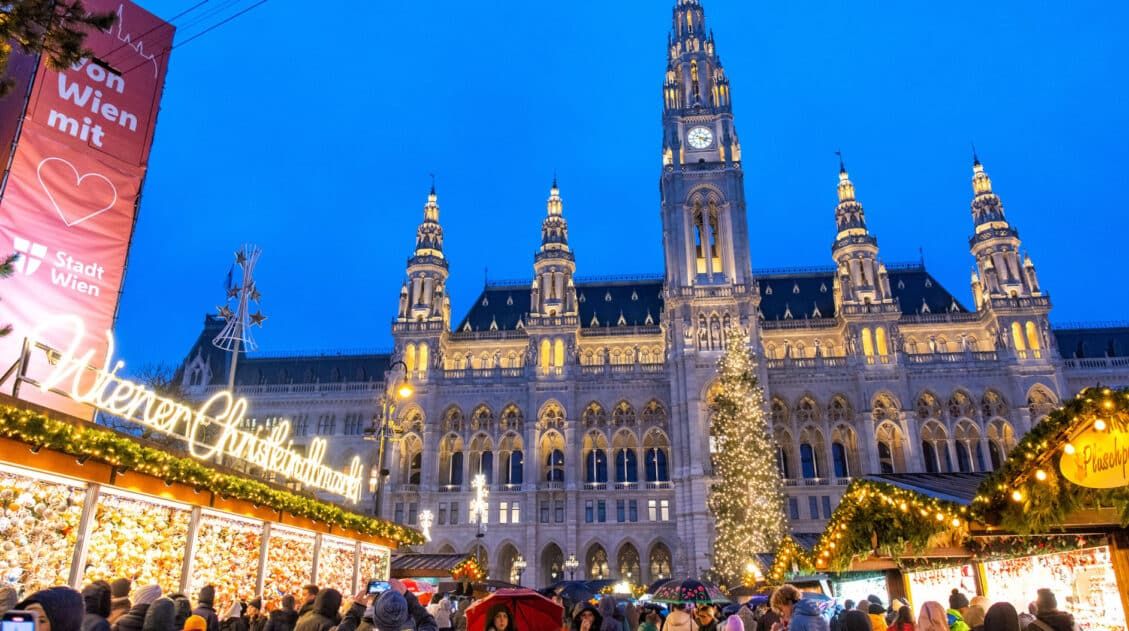
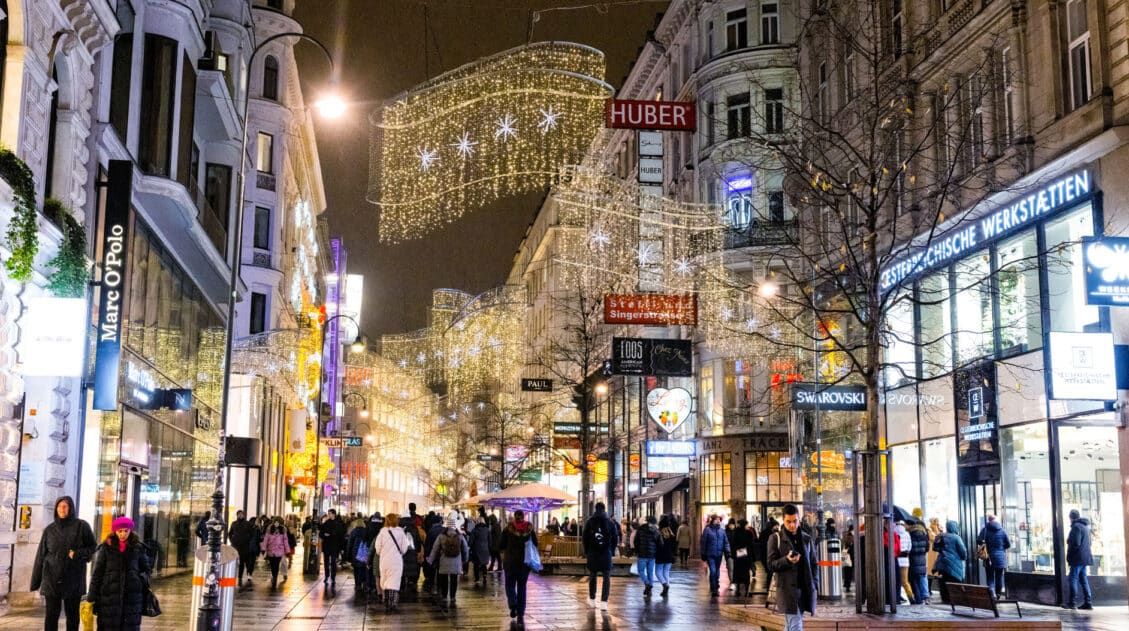
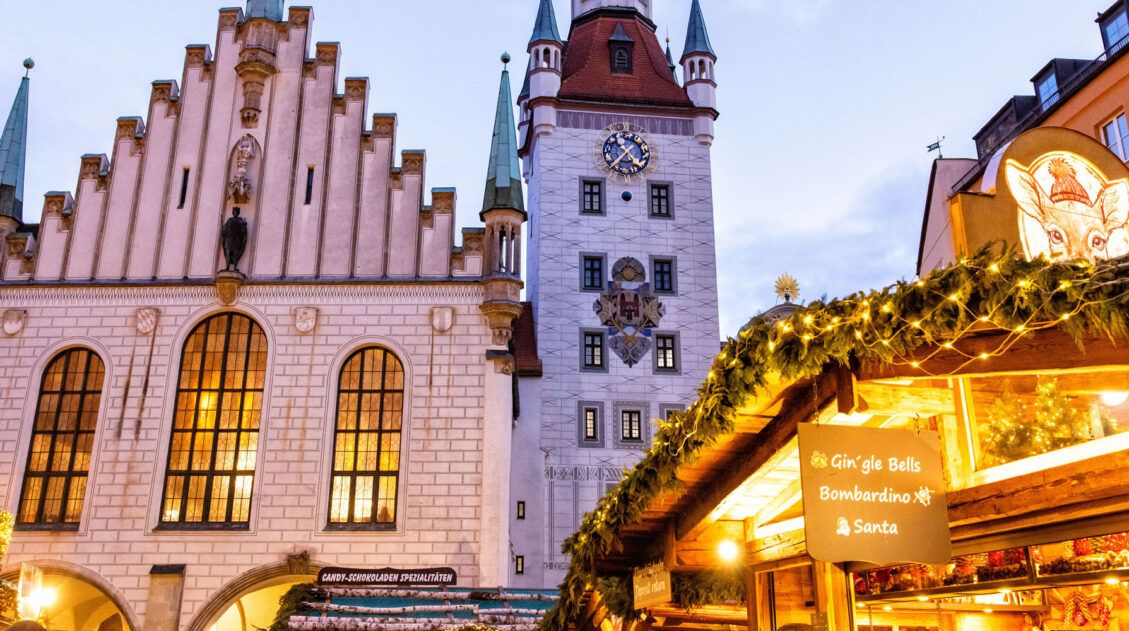
Comments 20